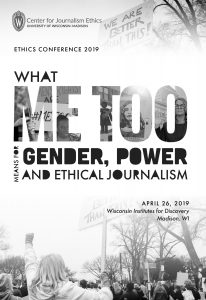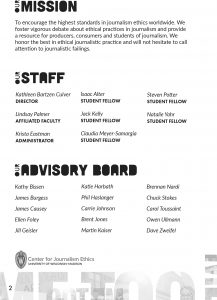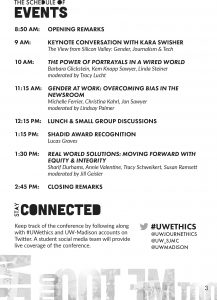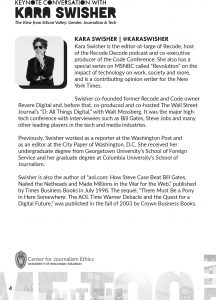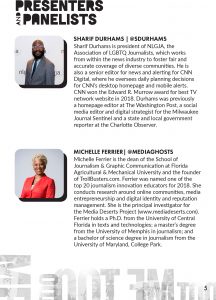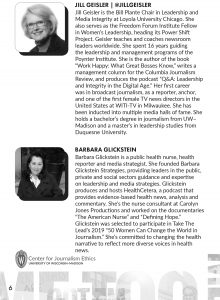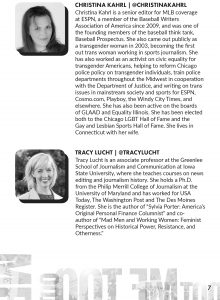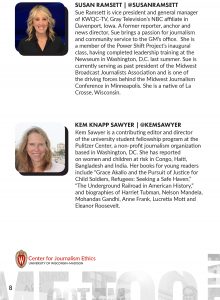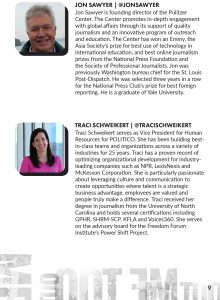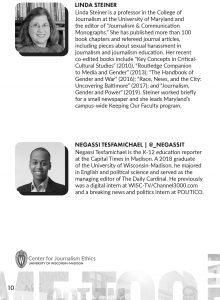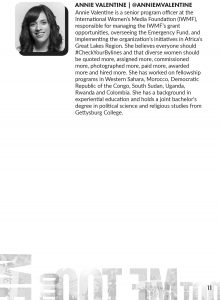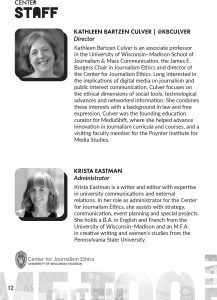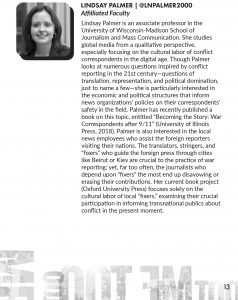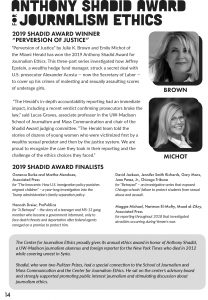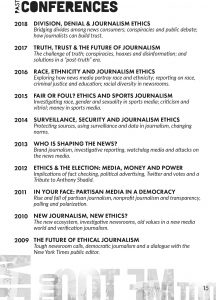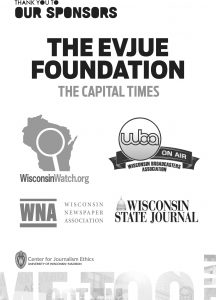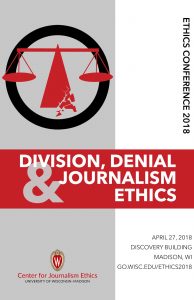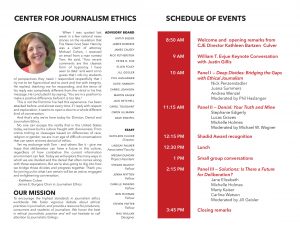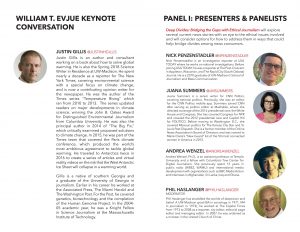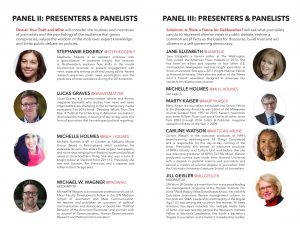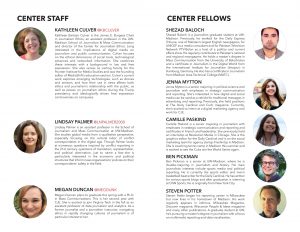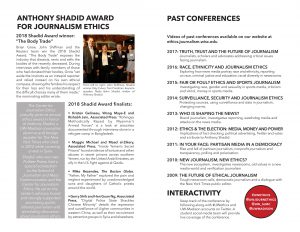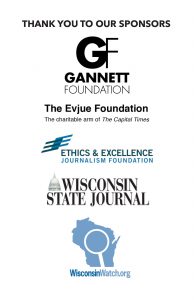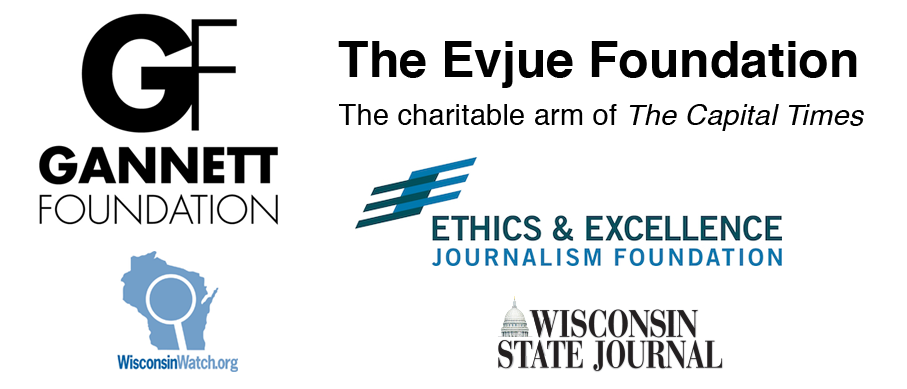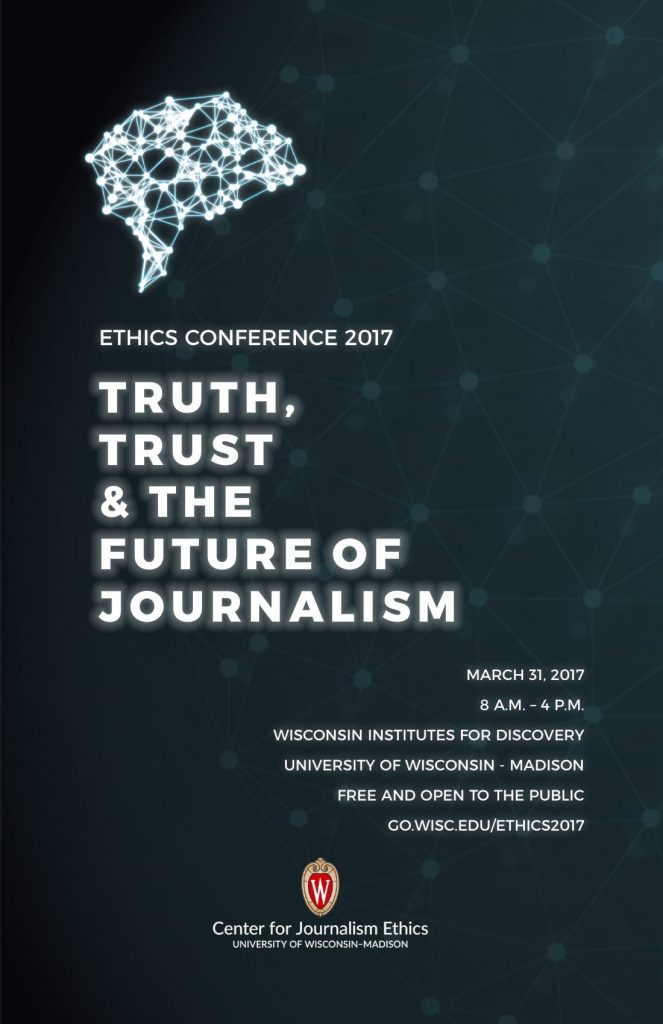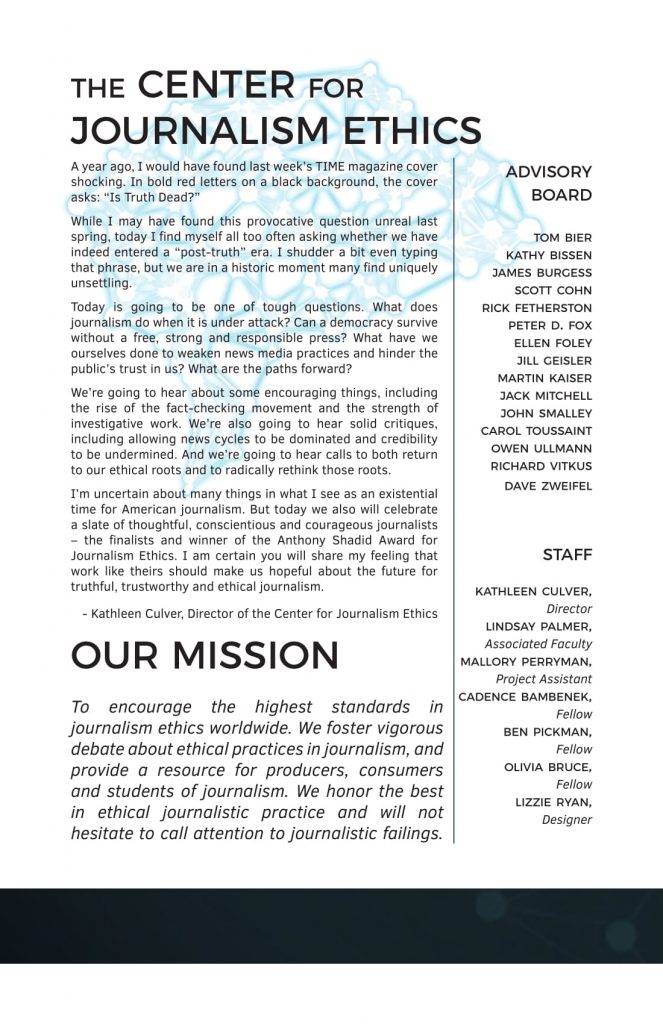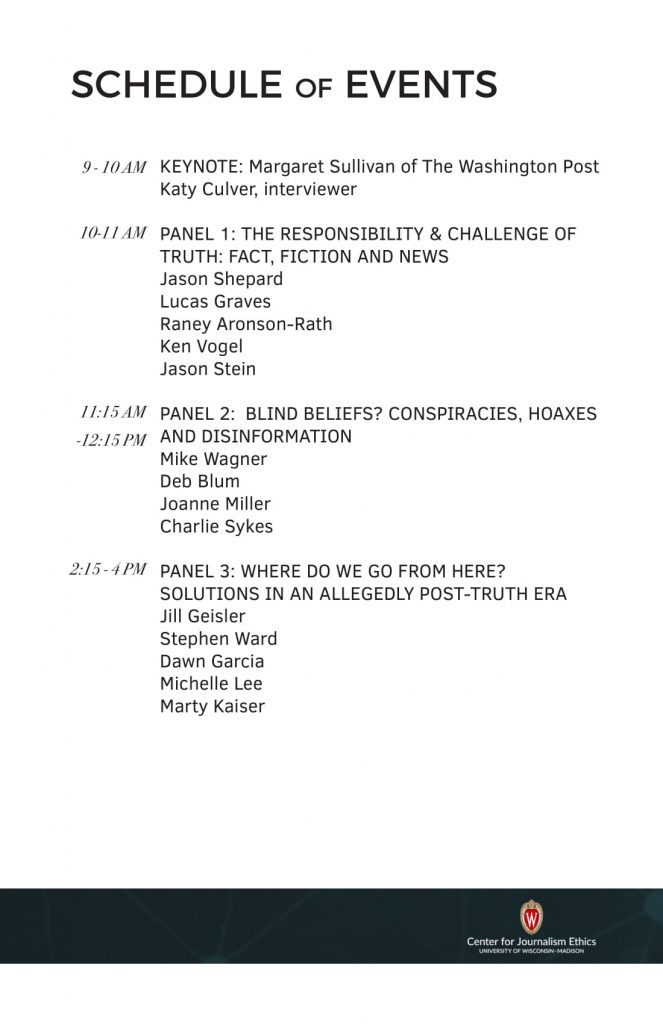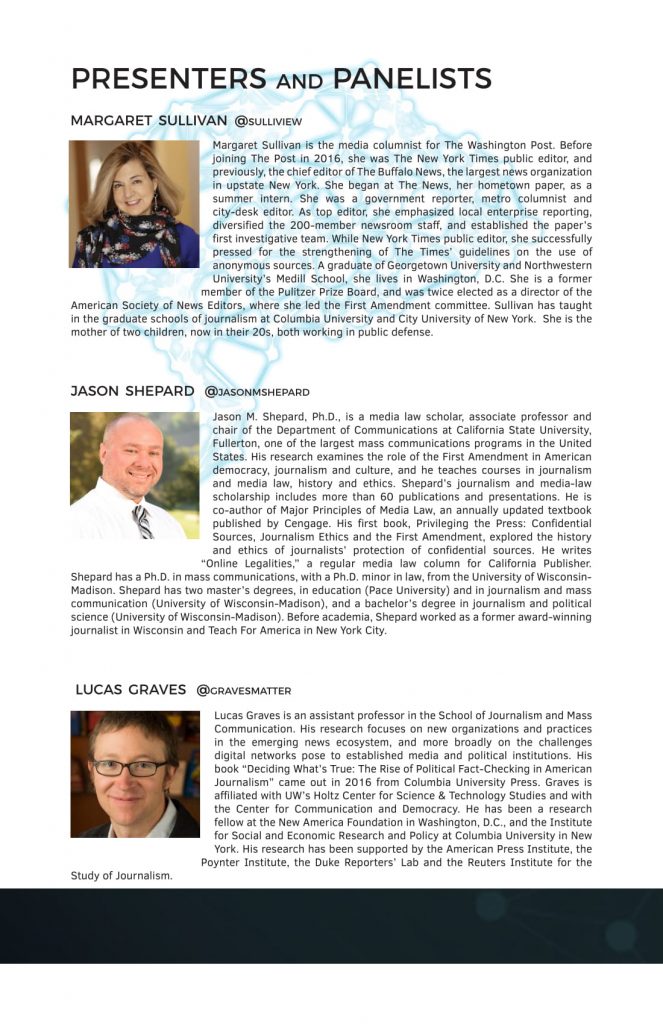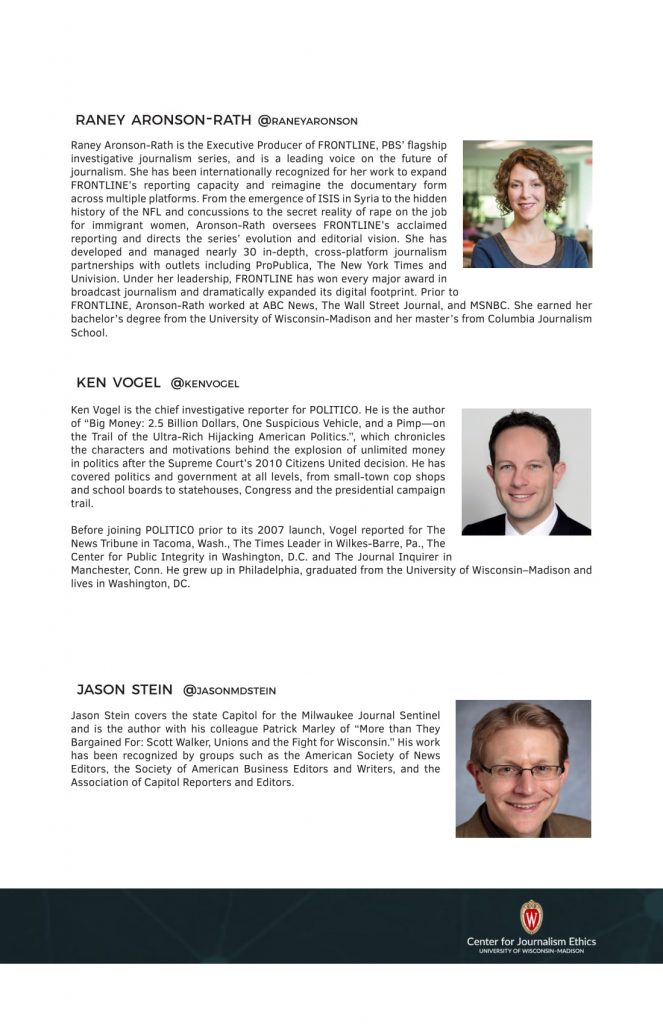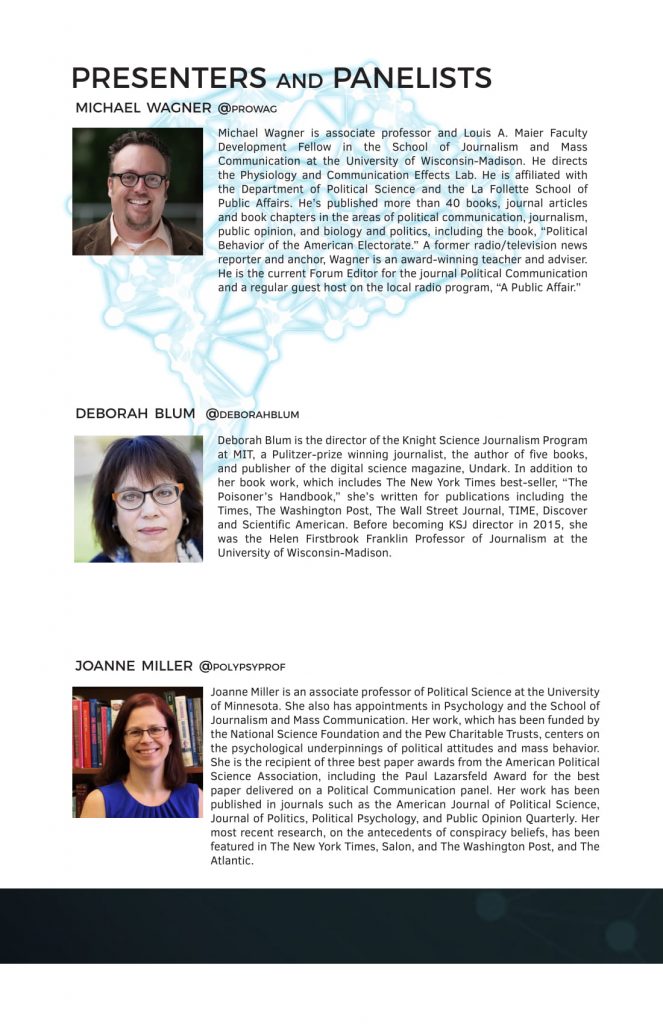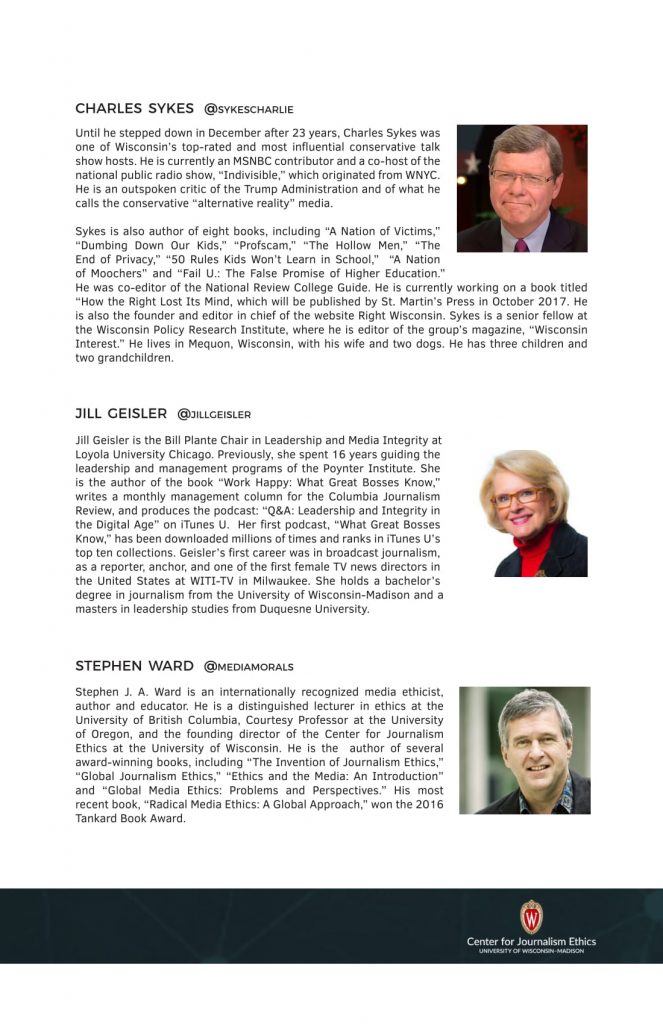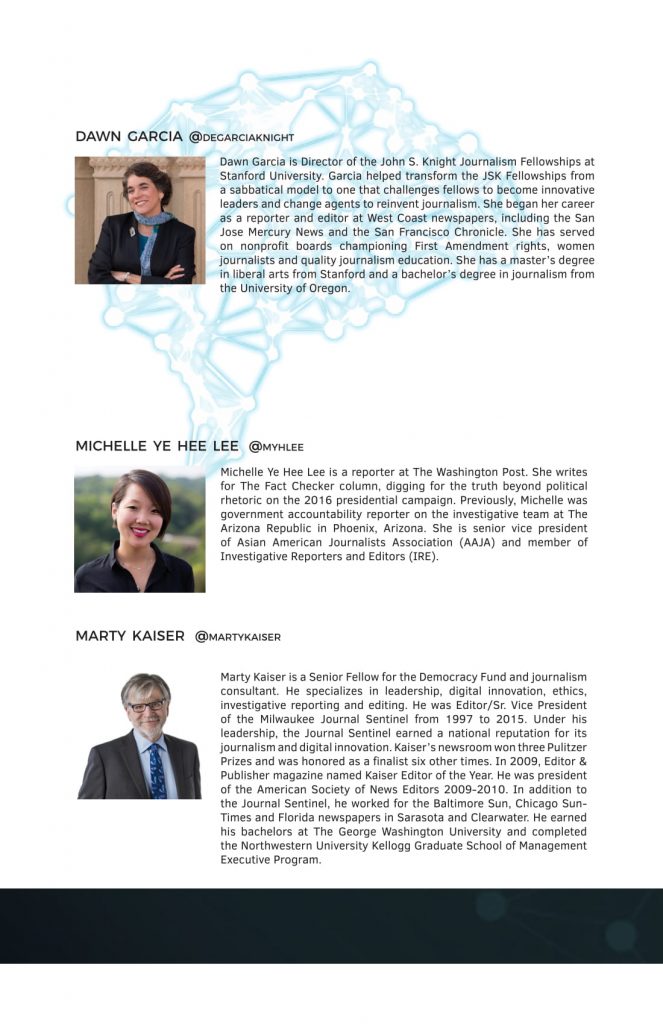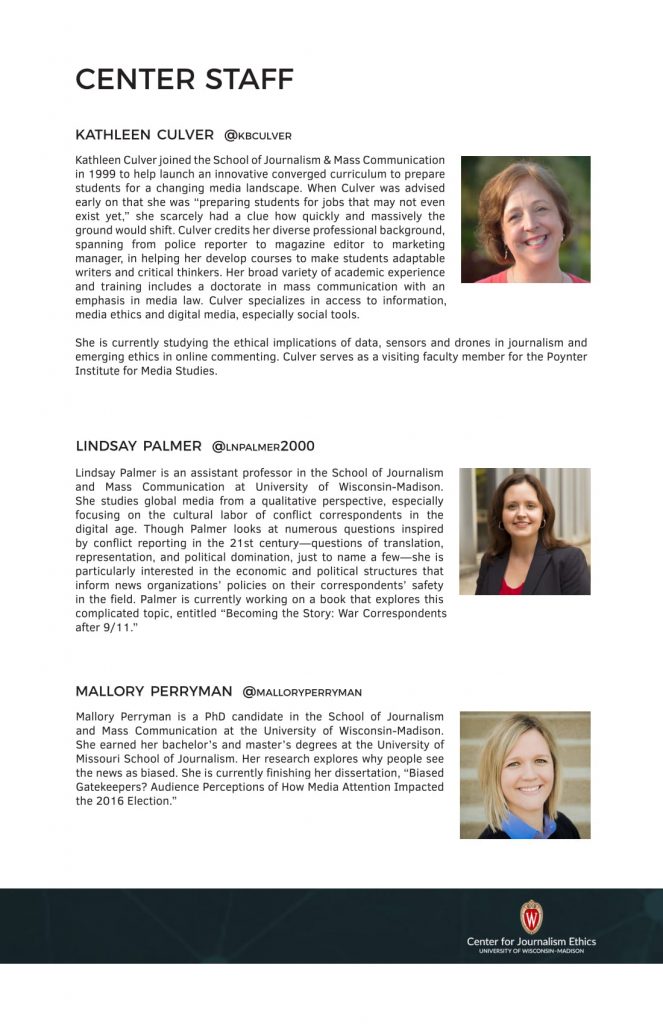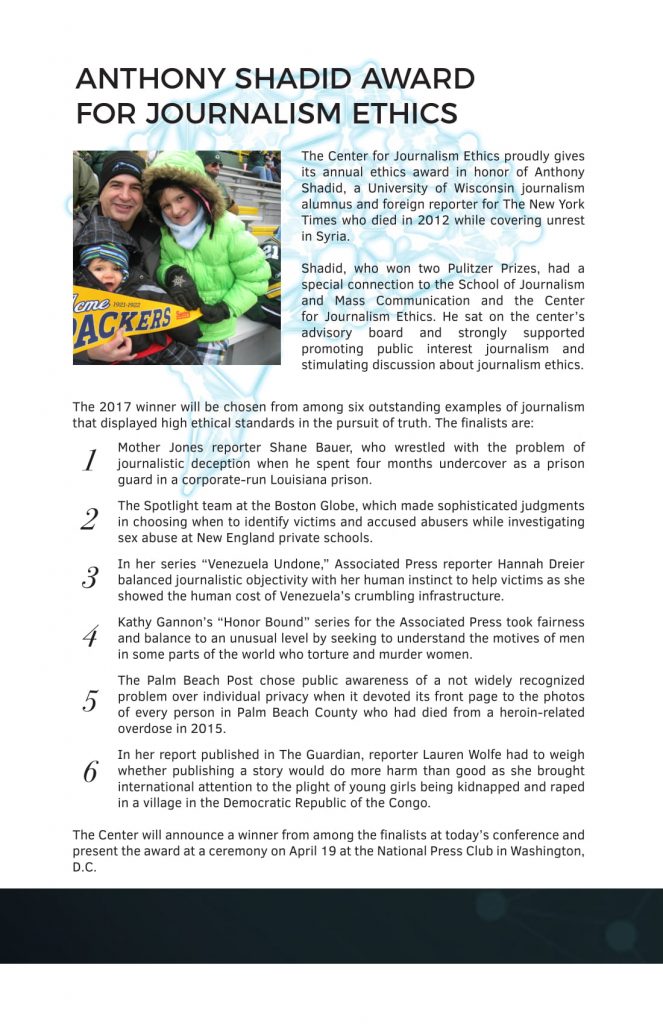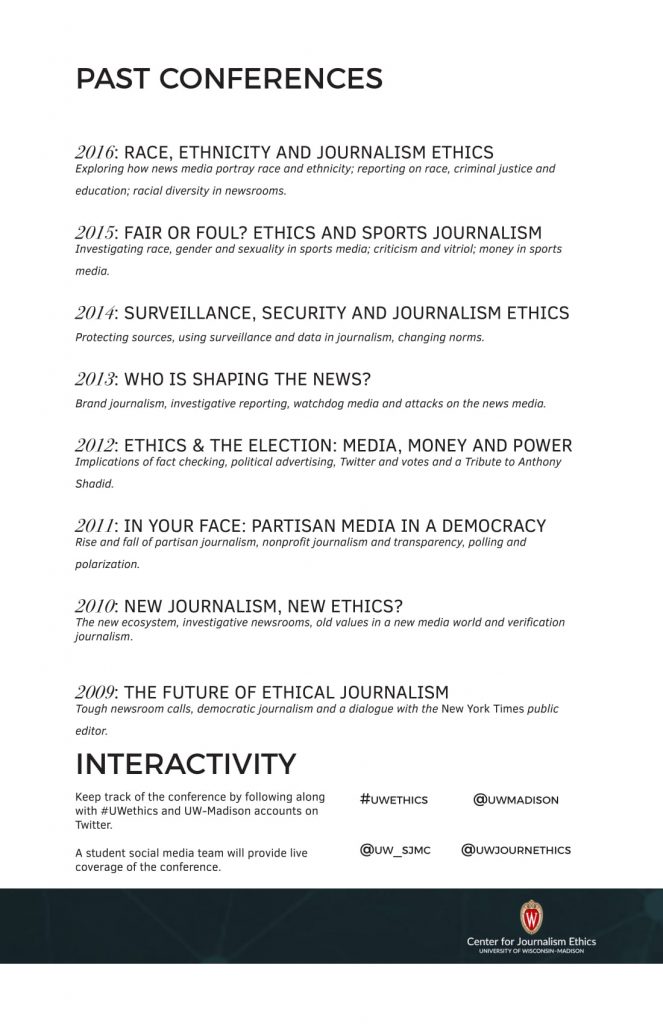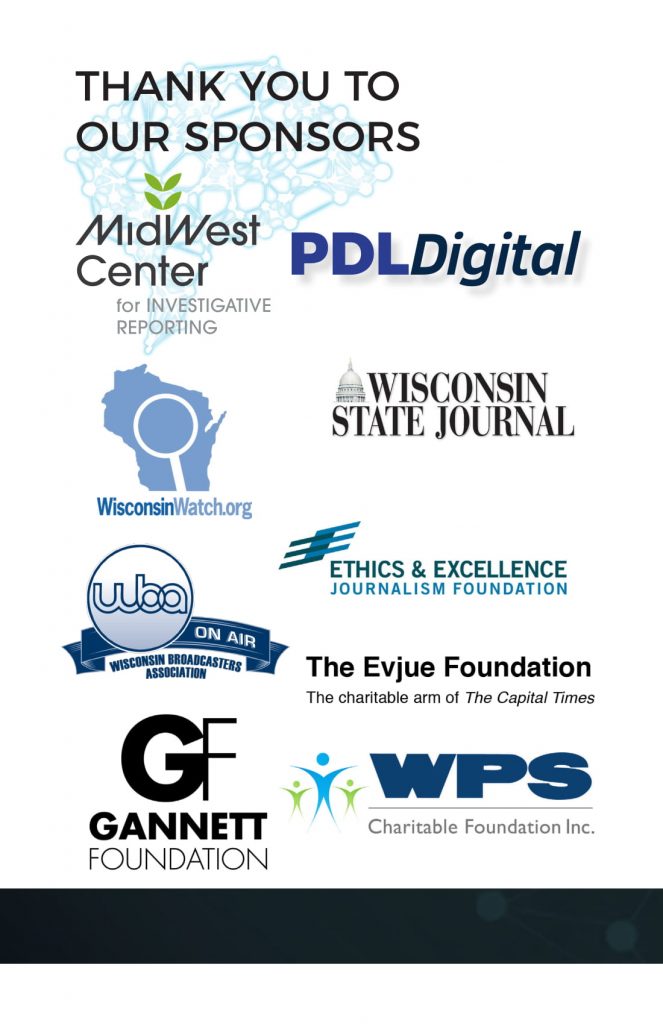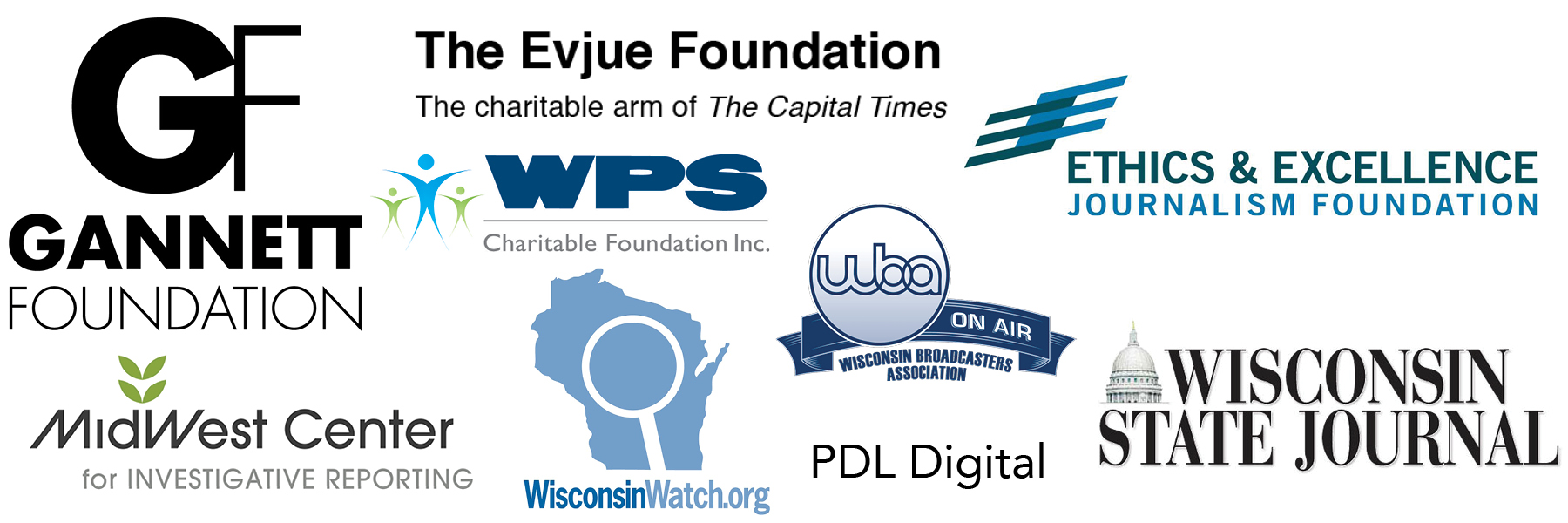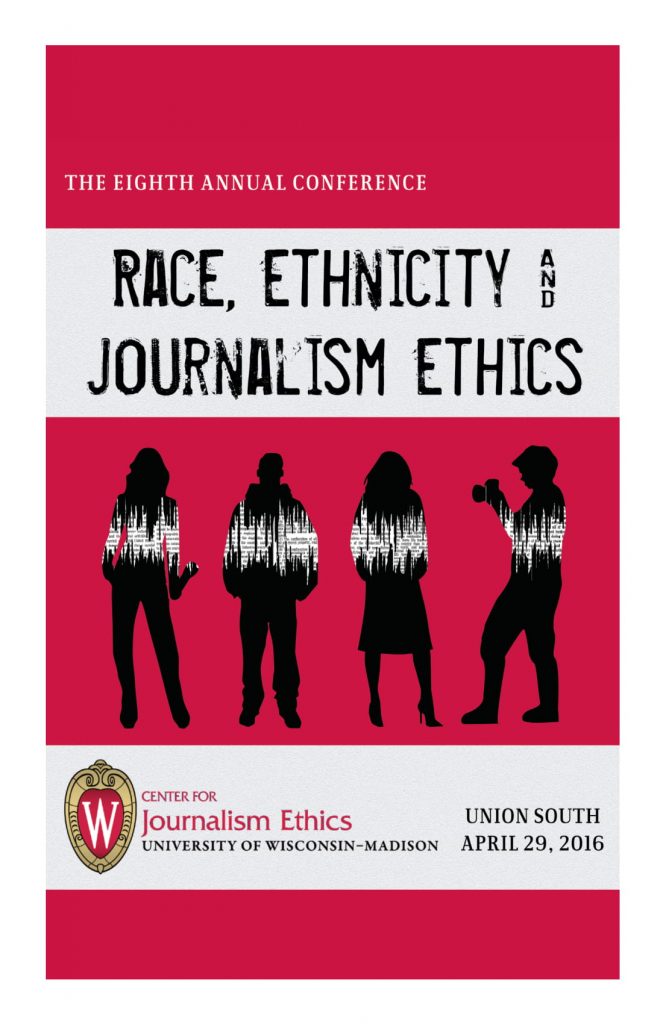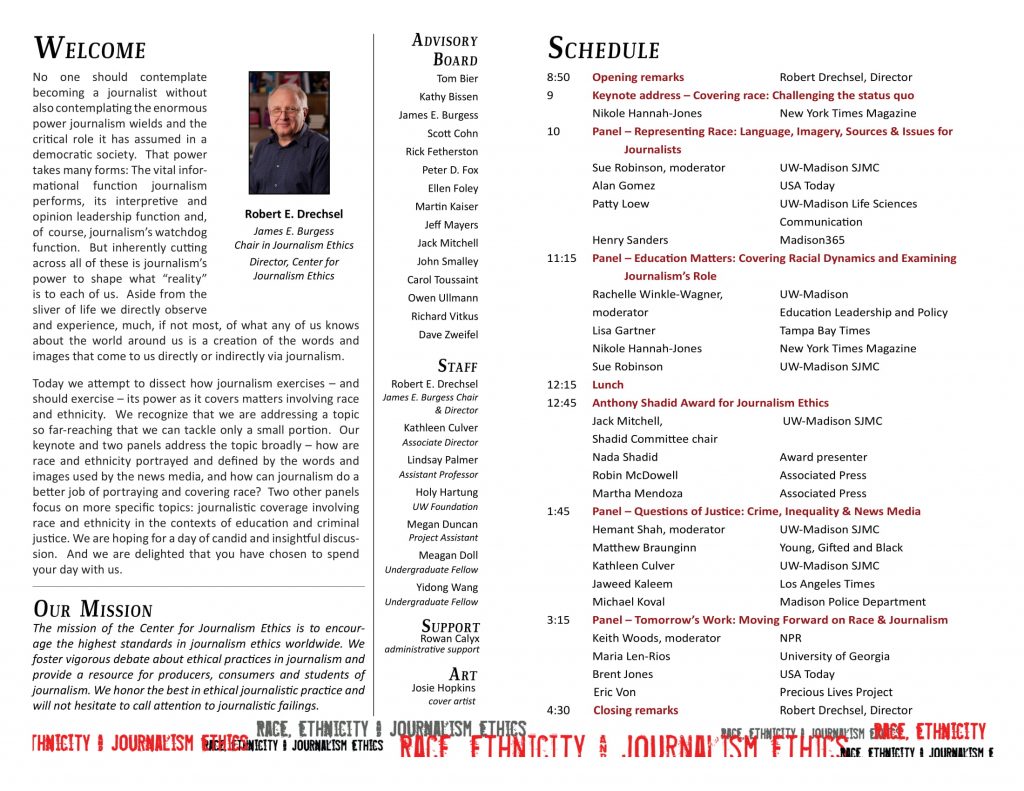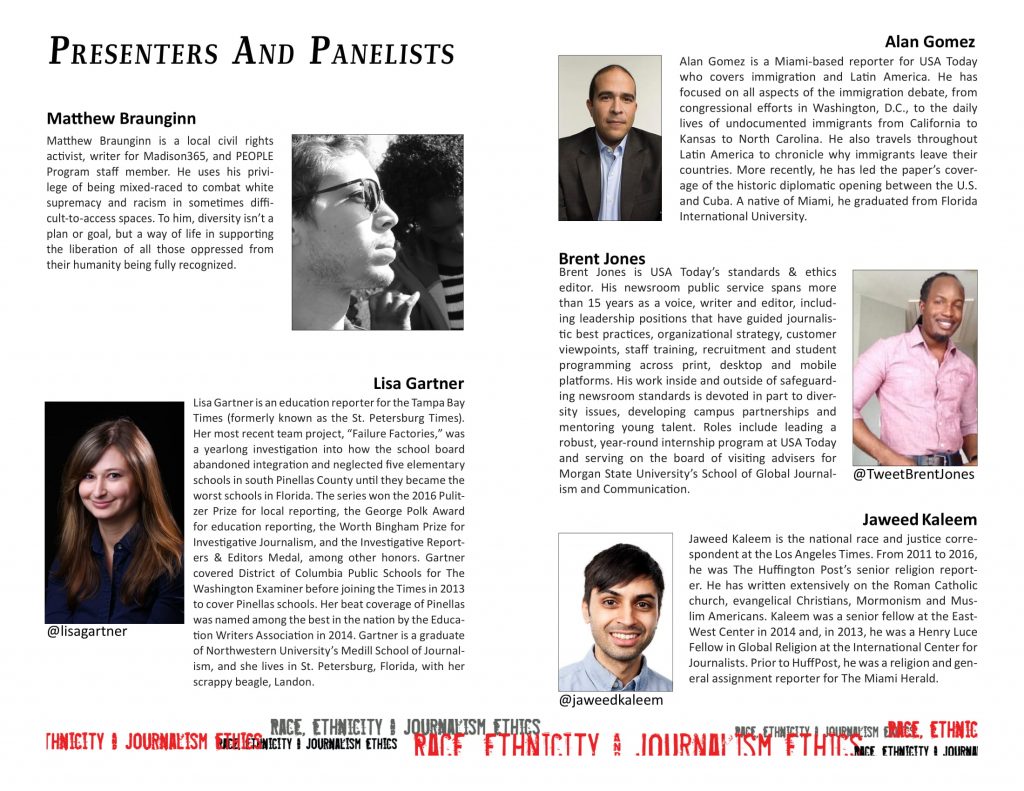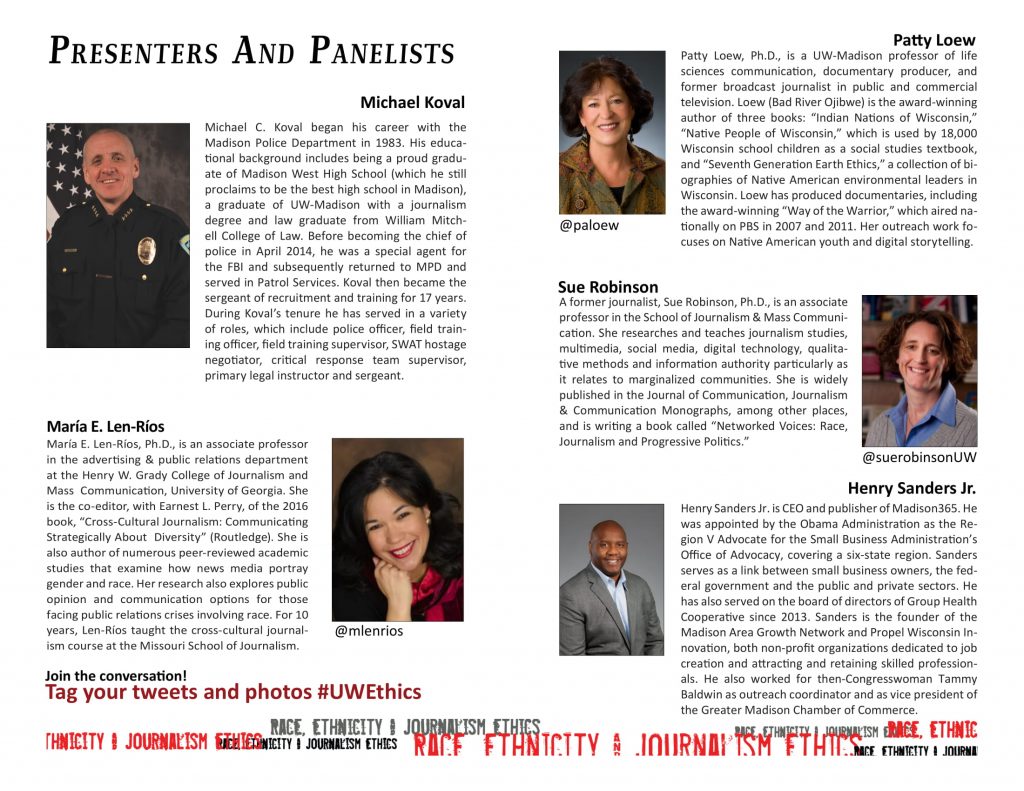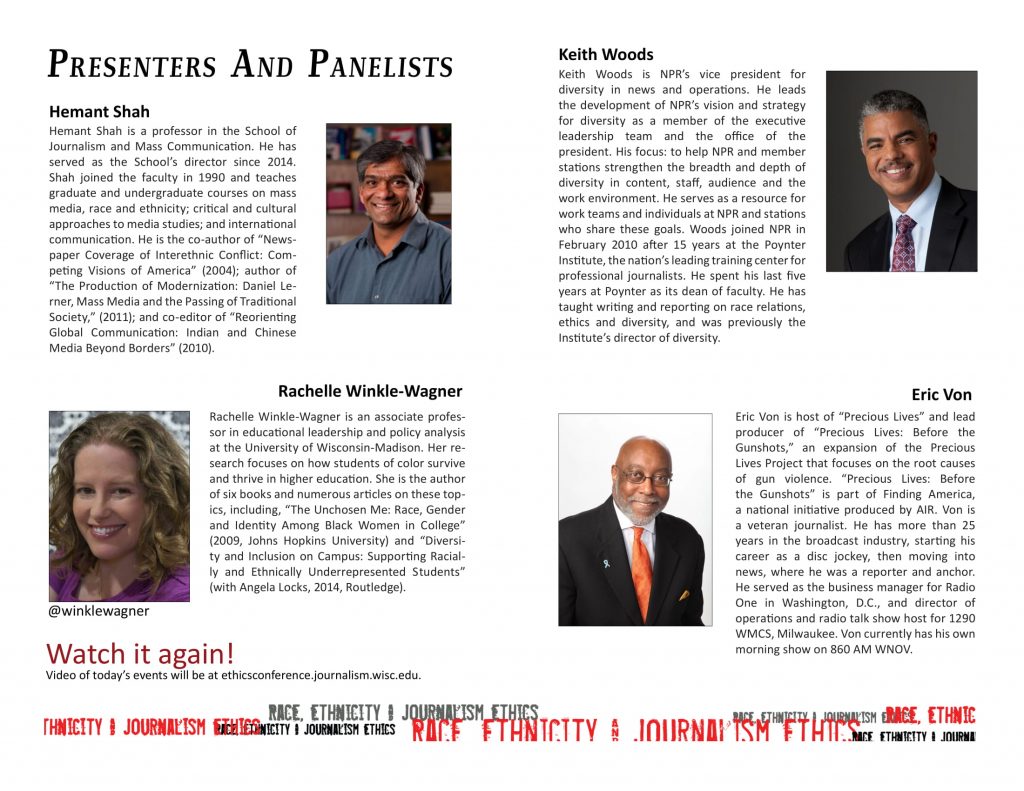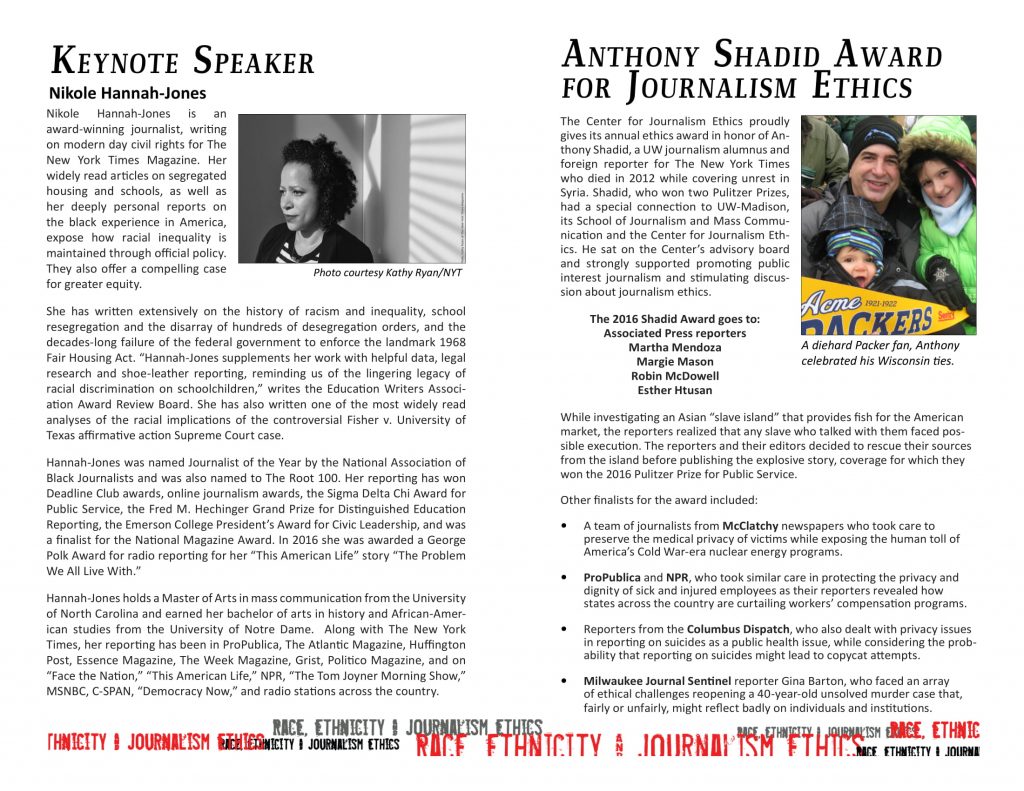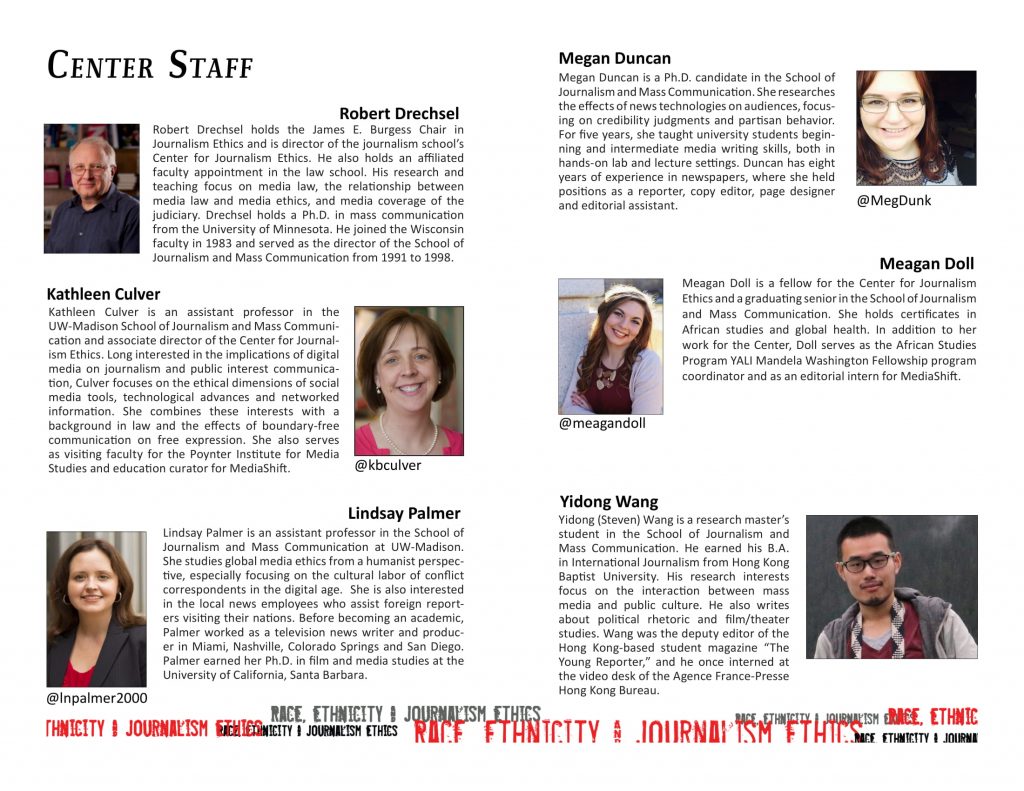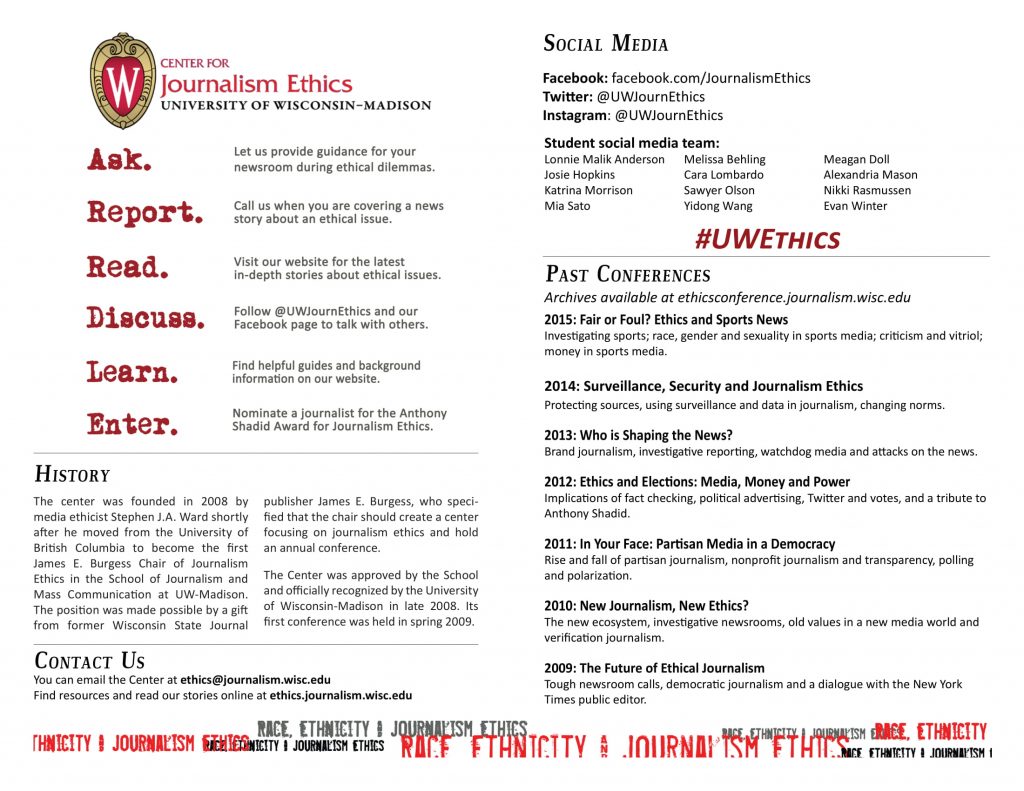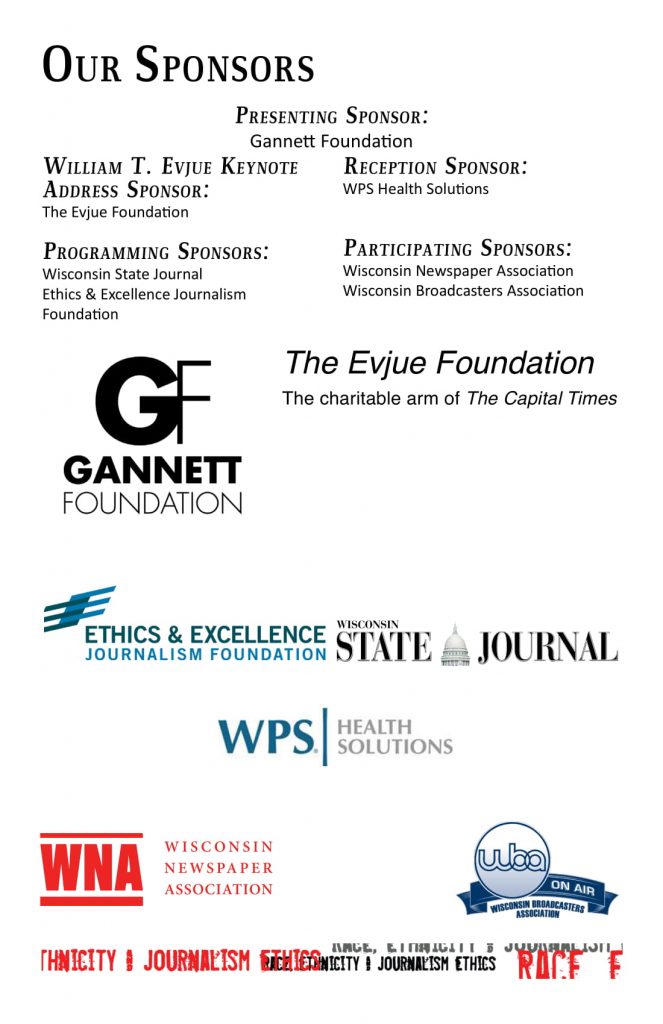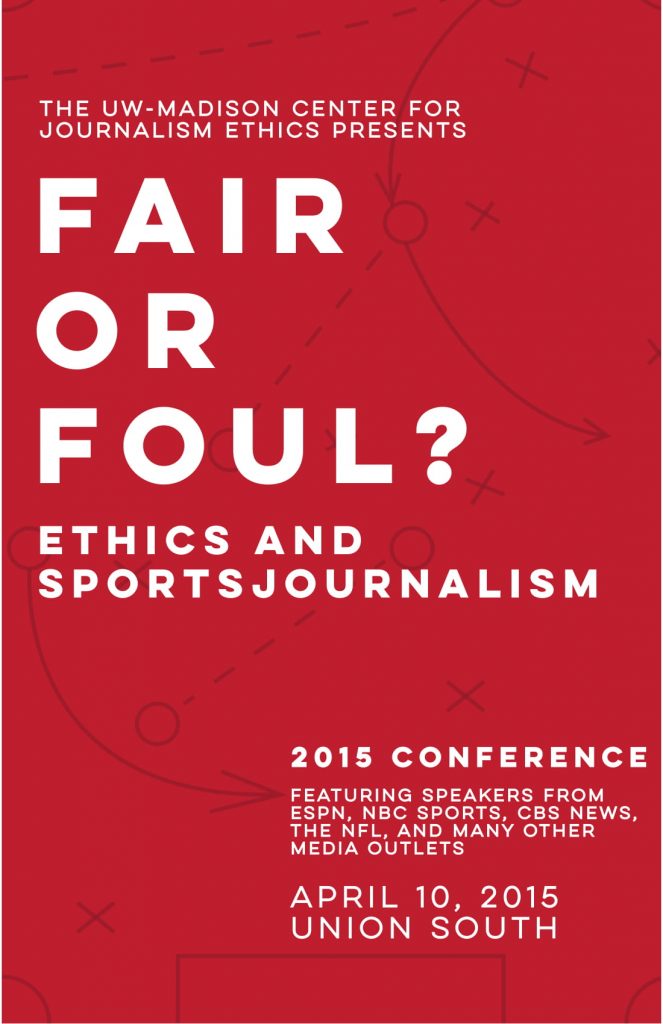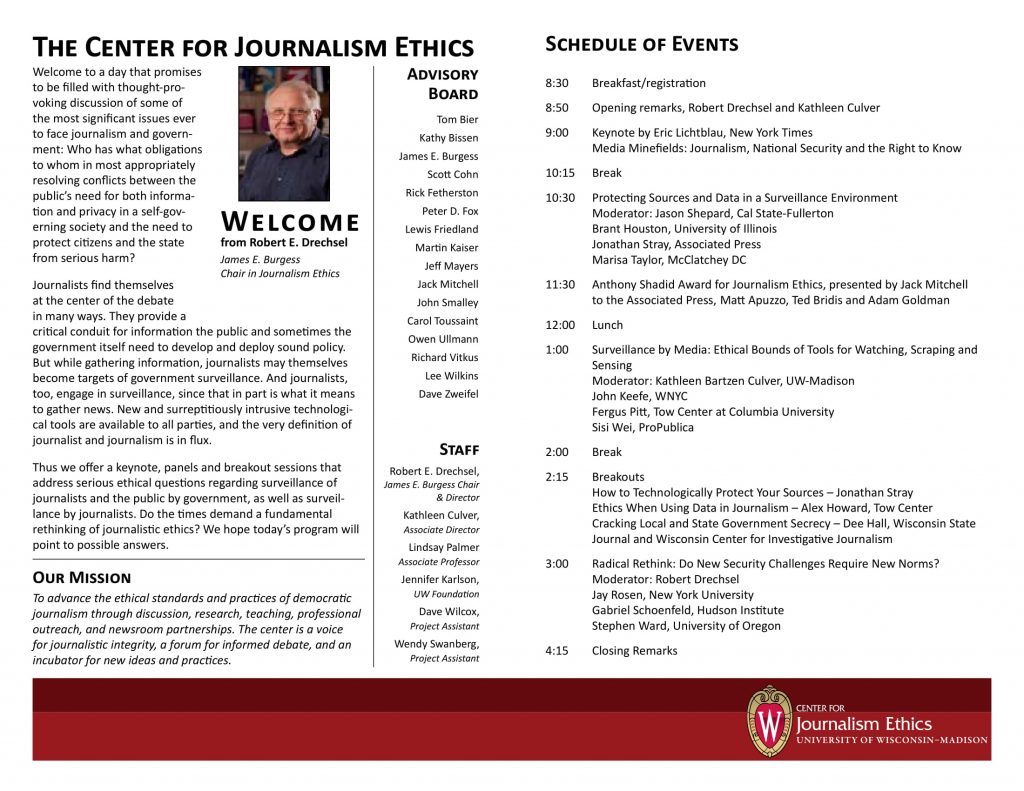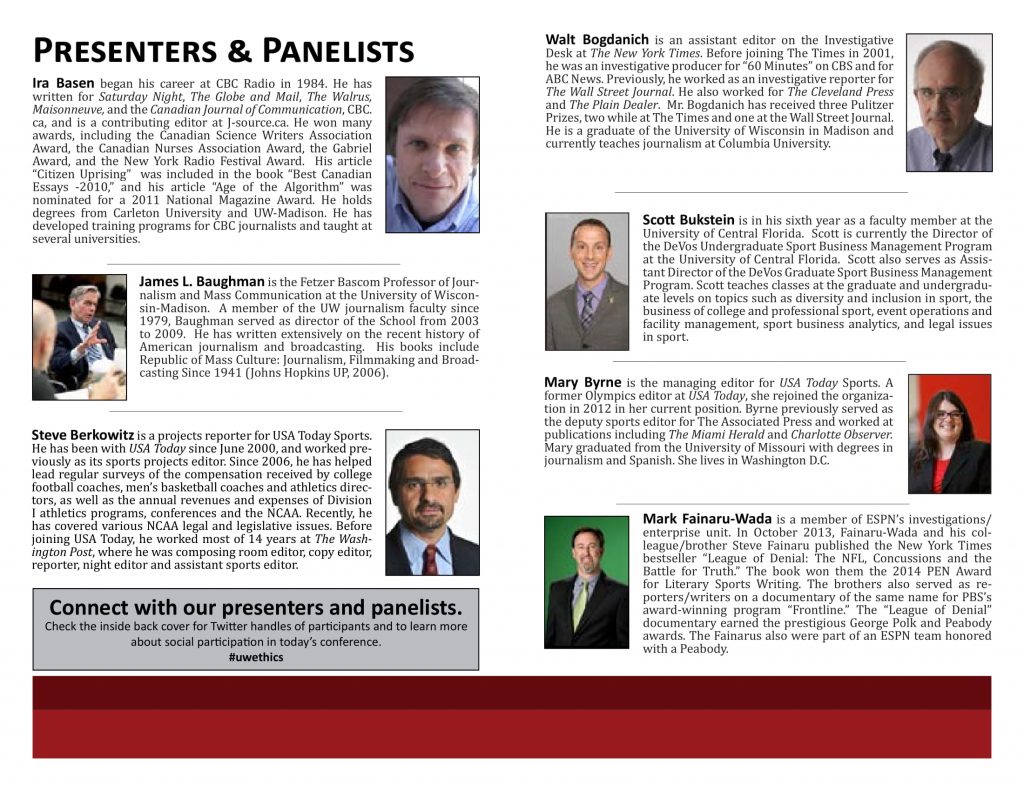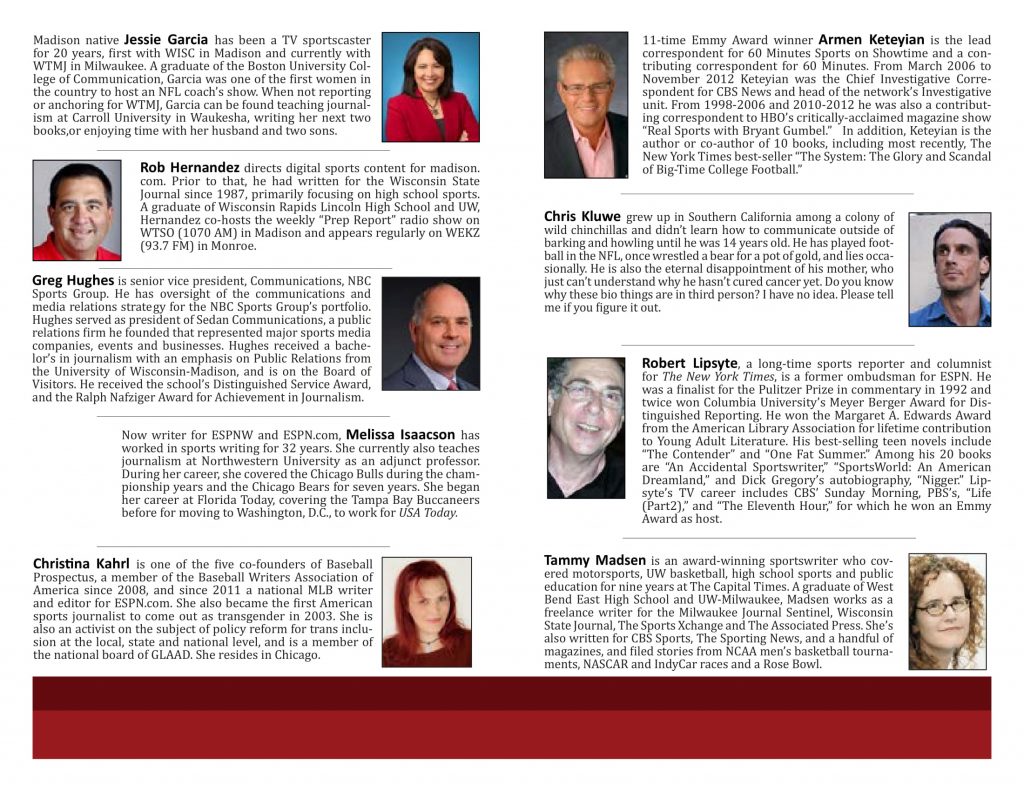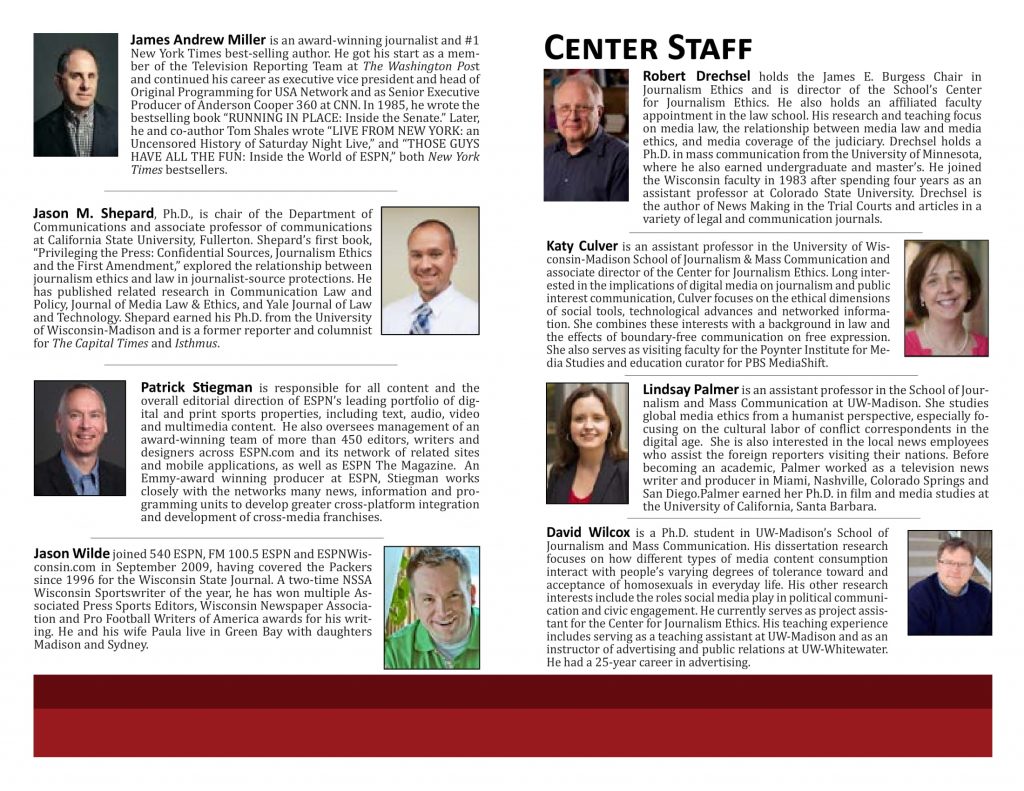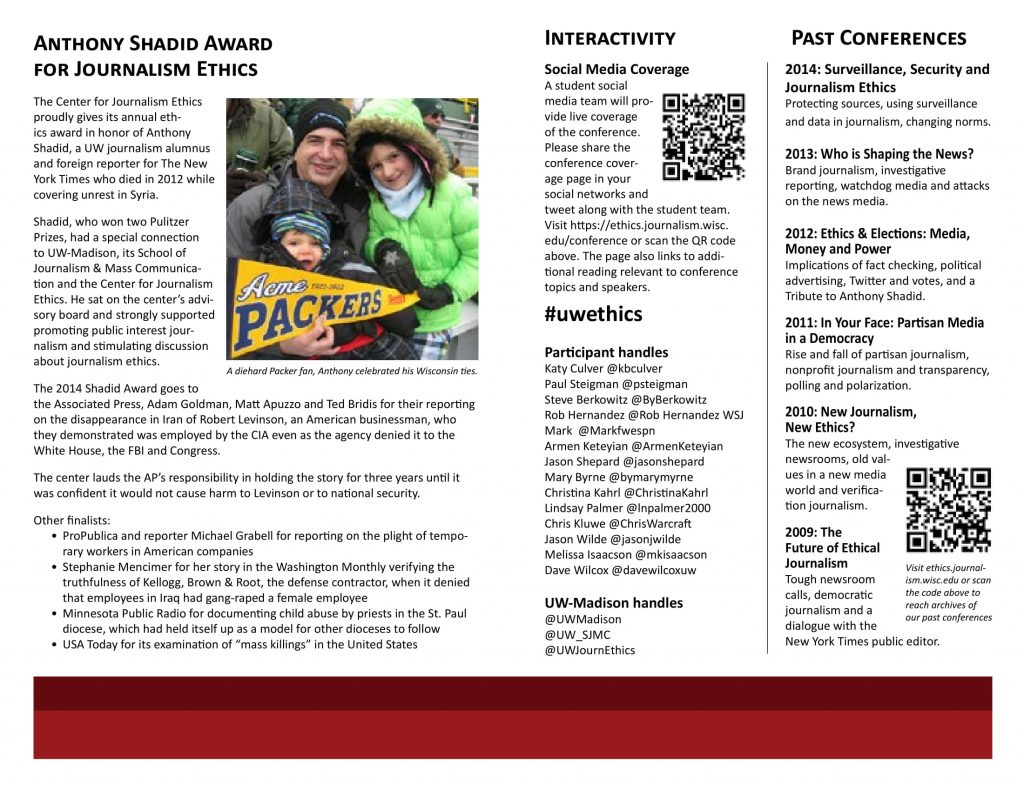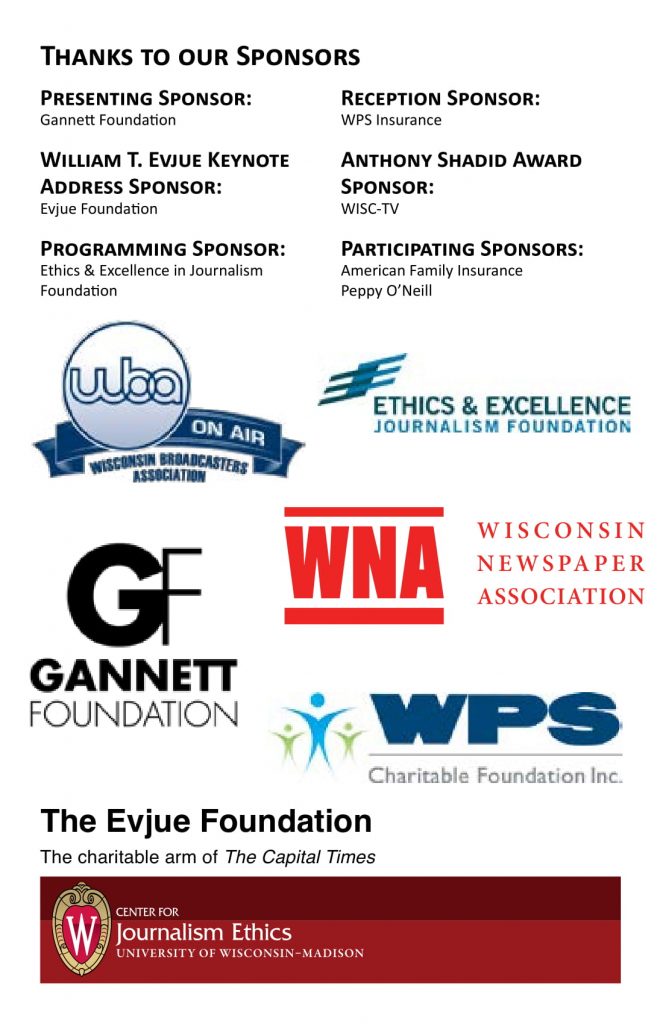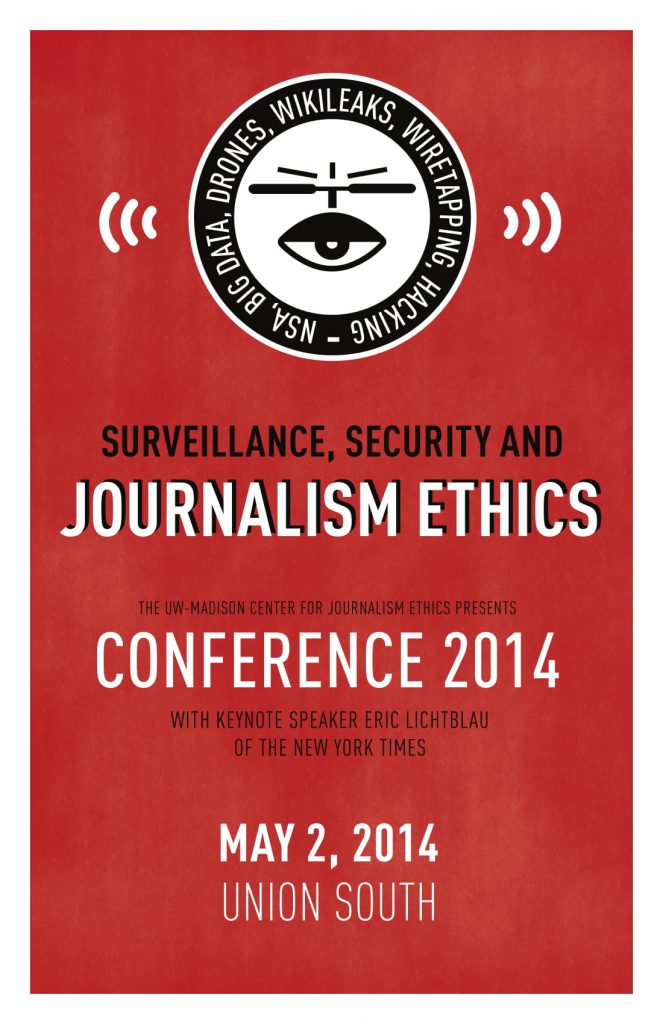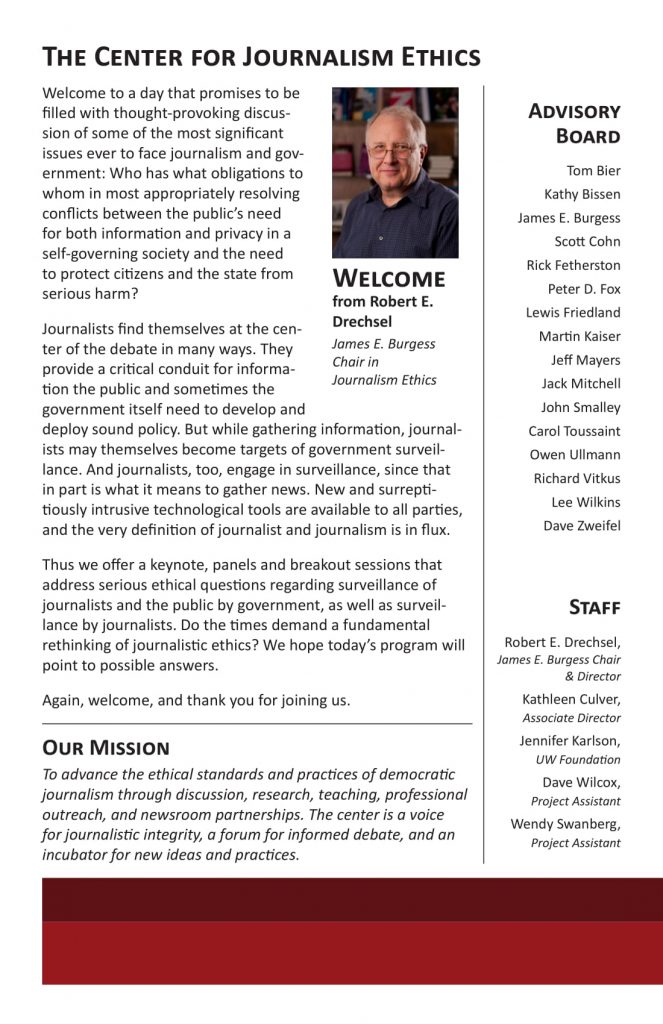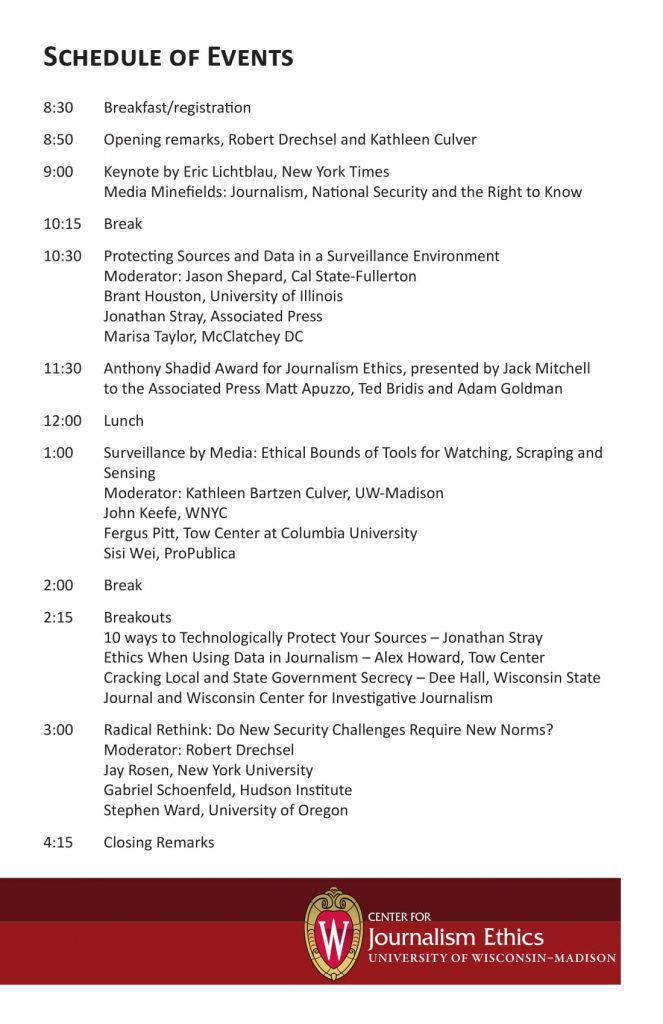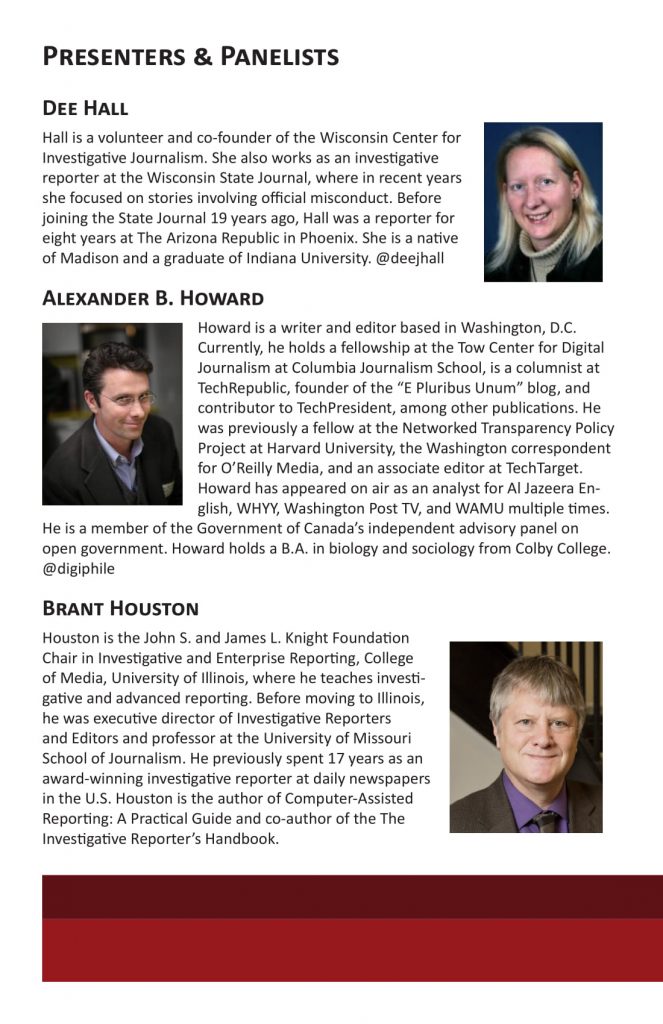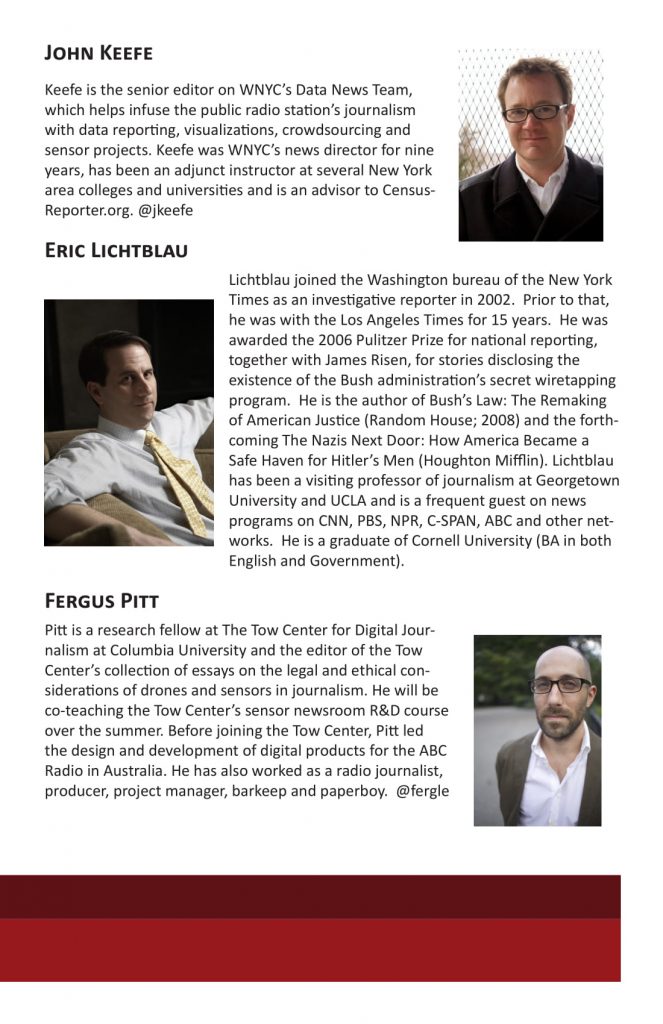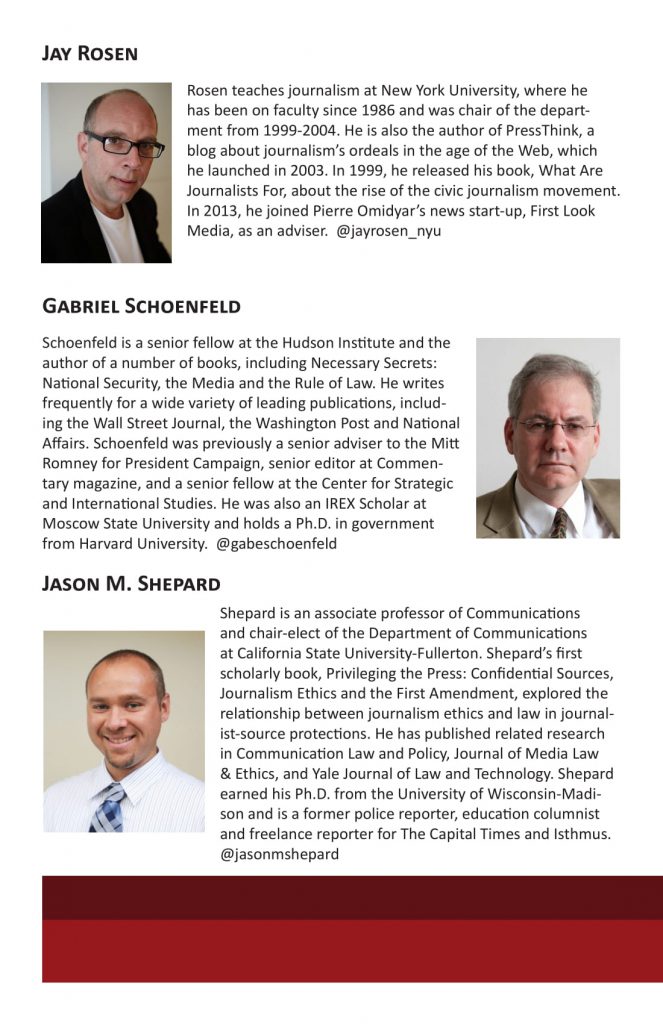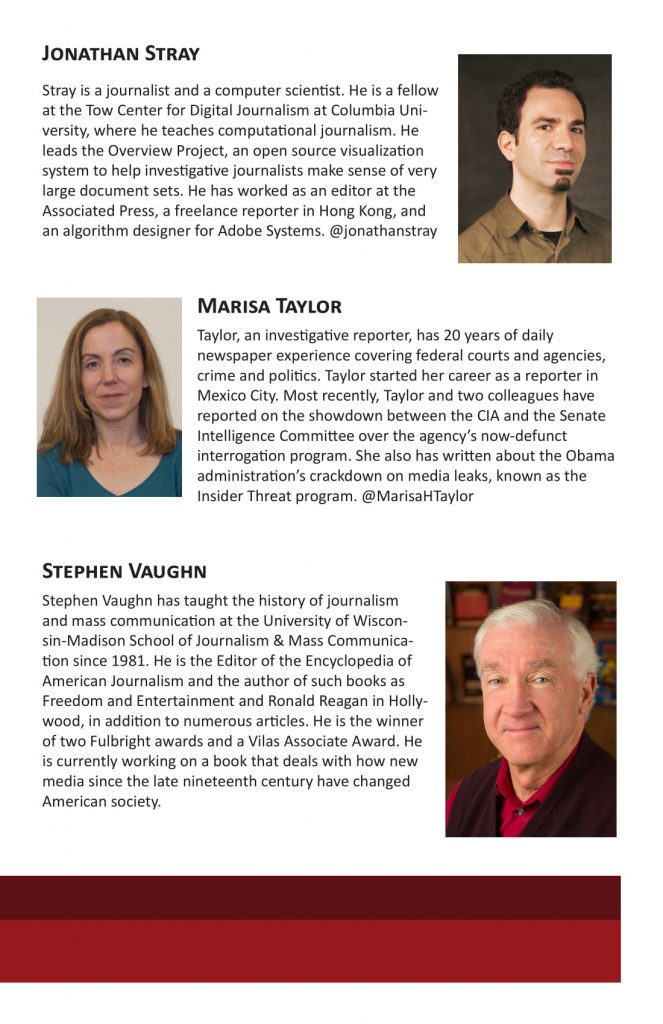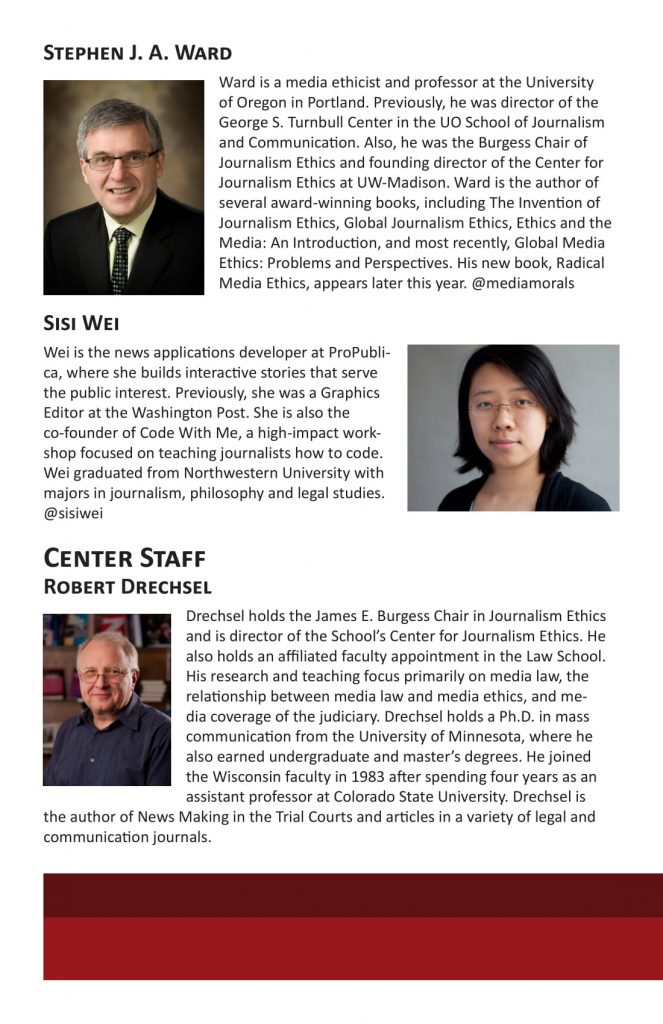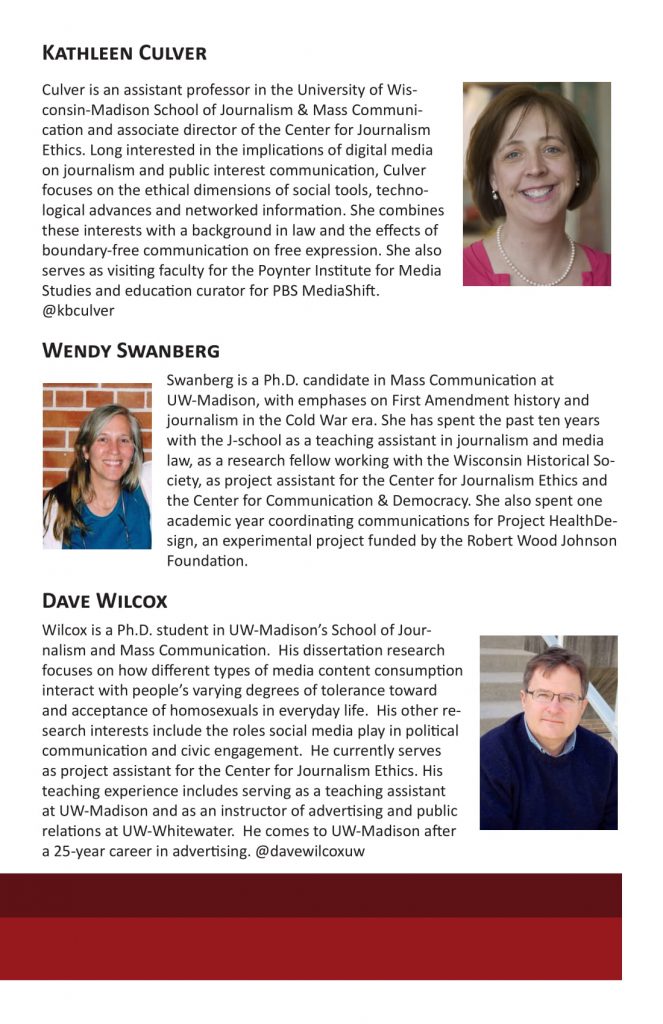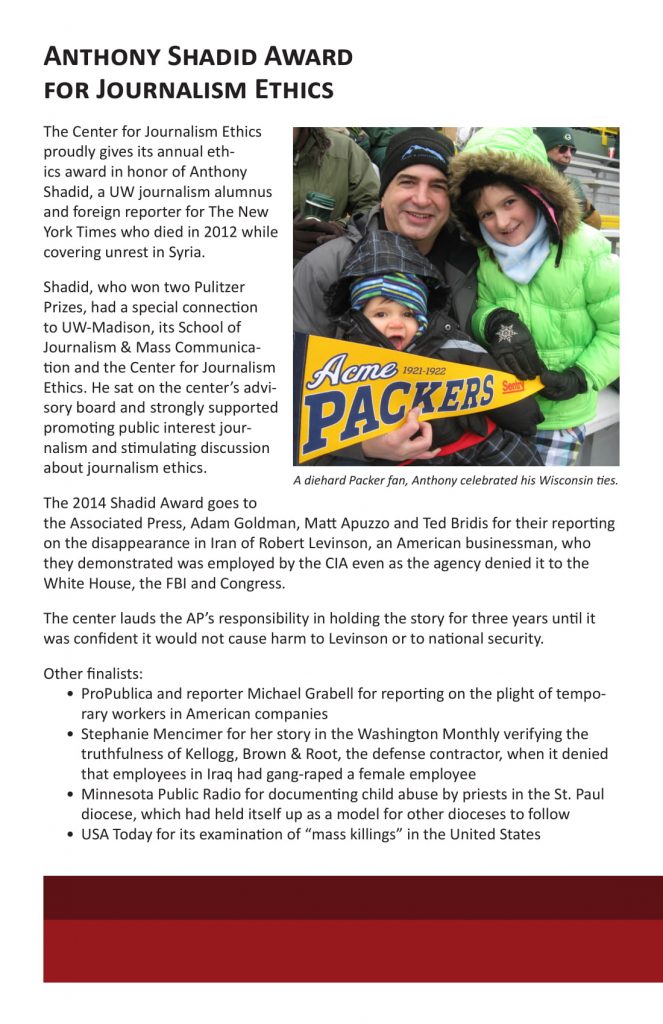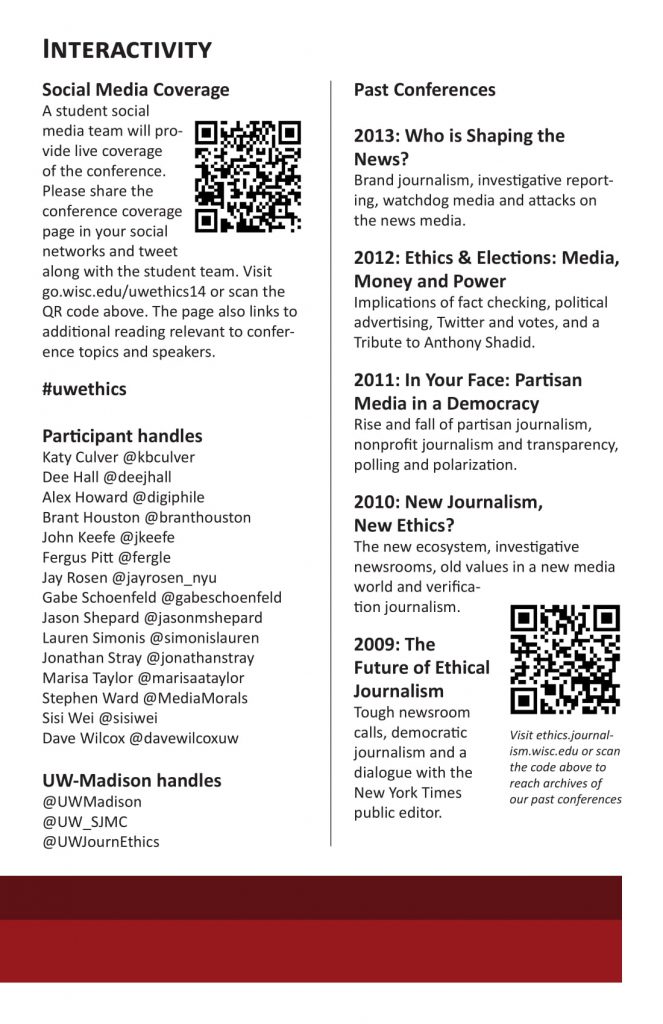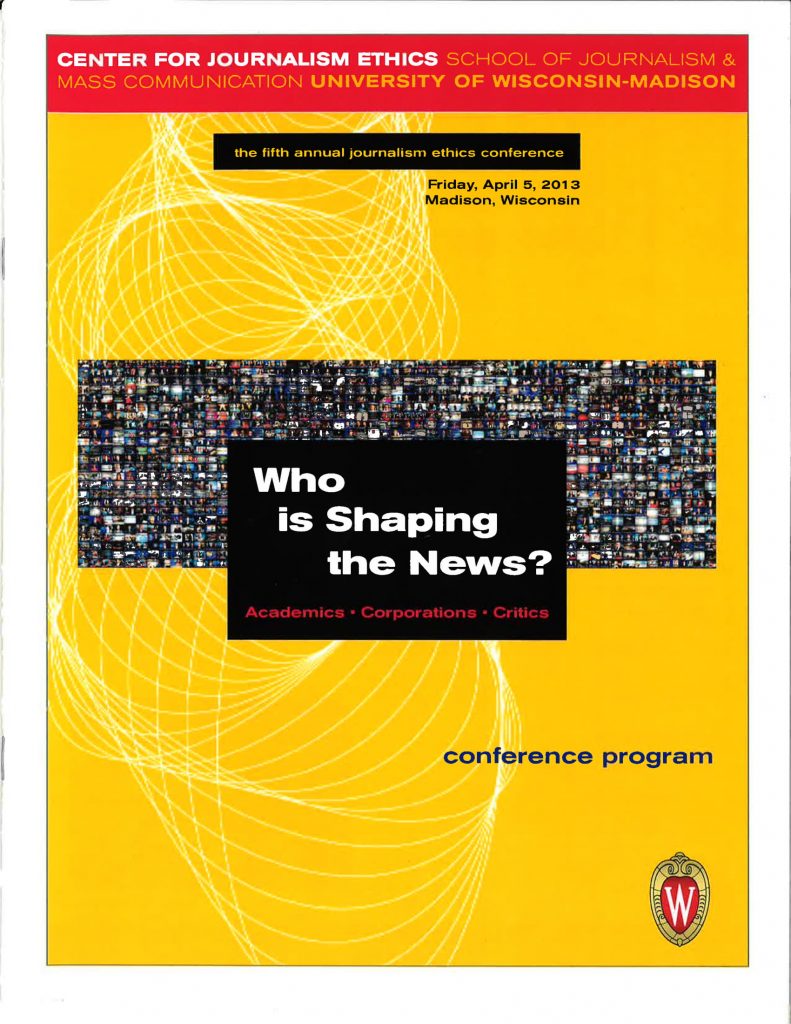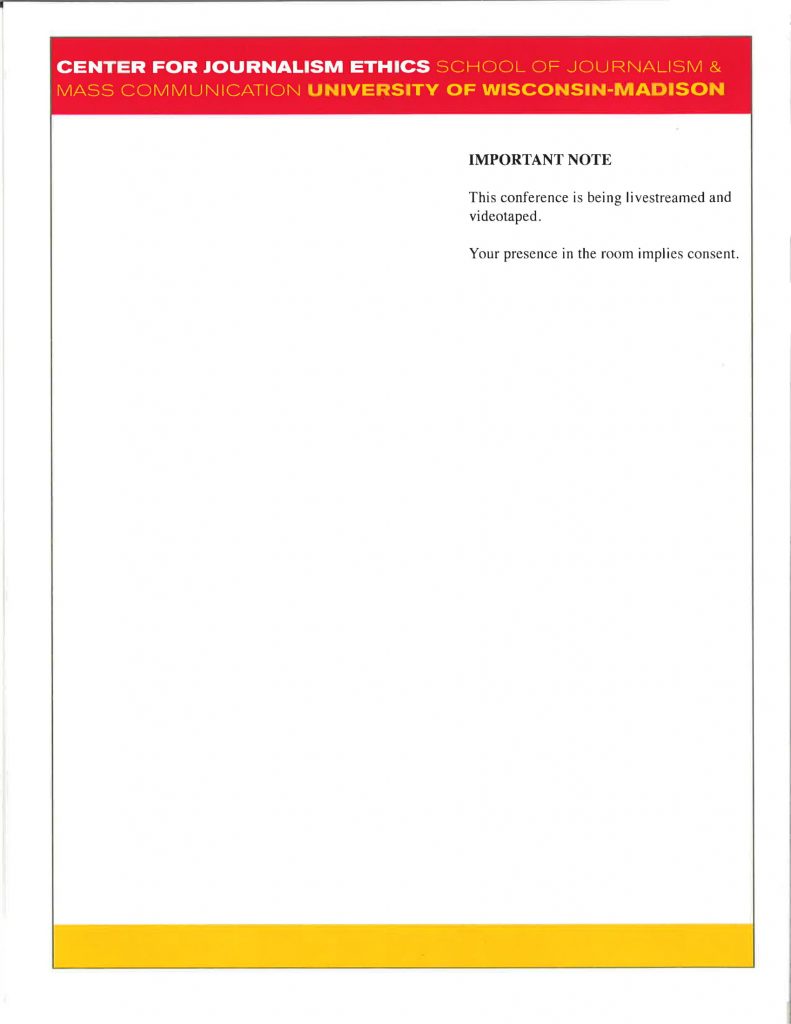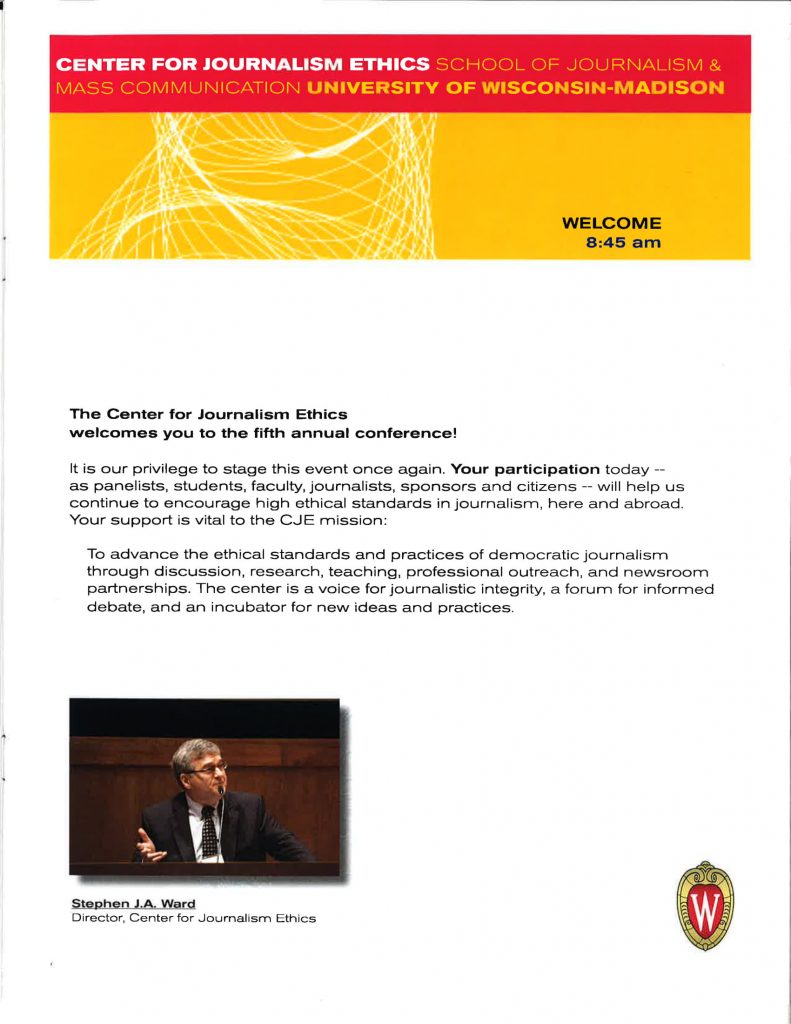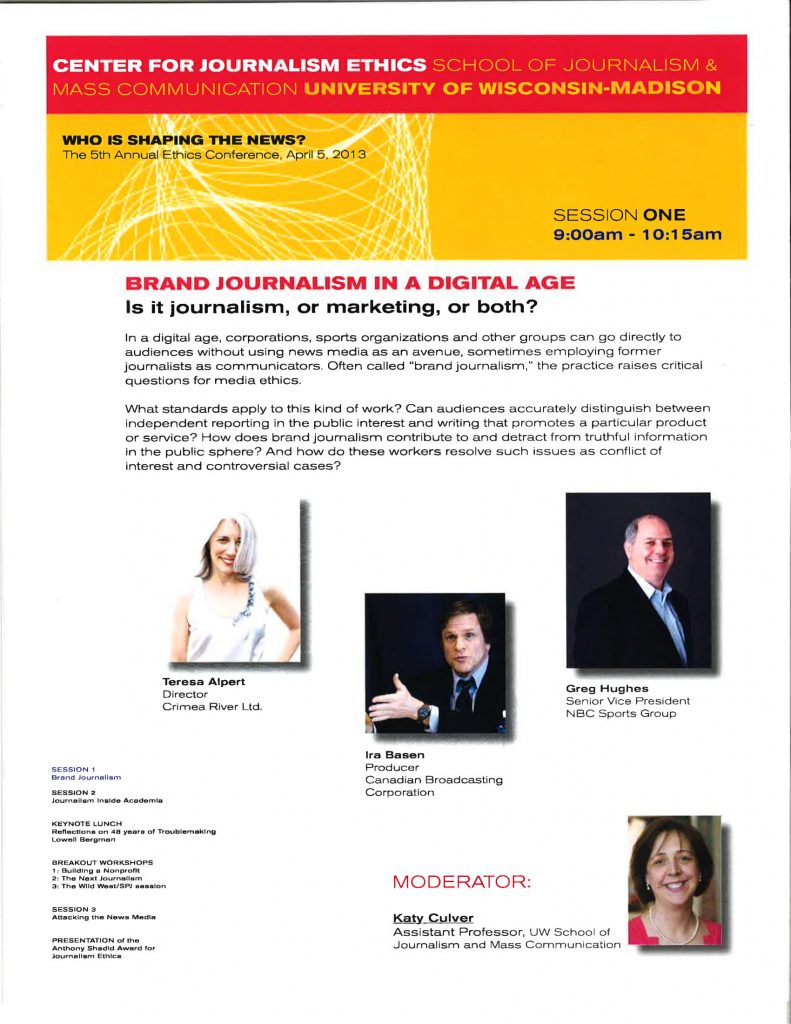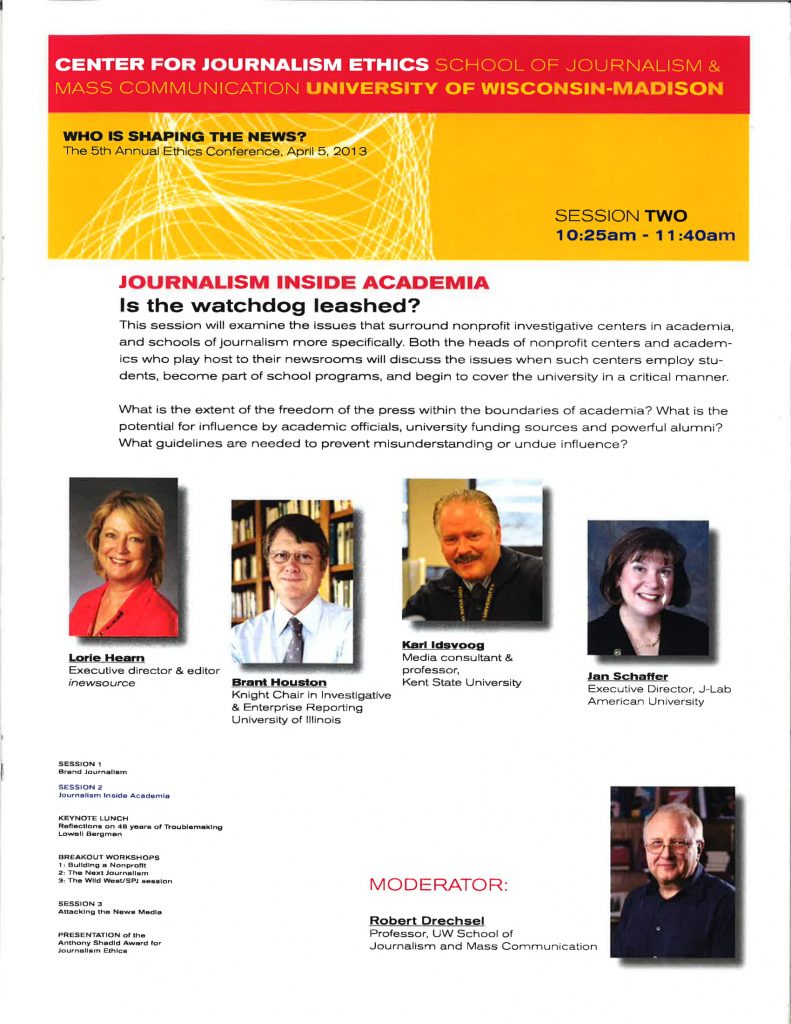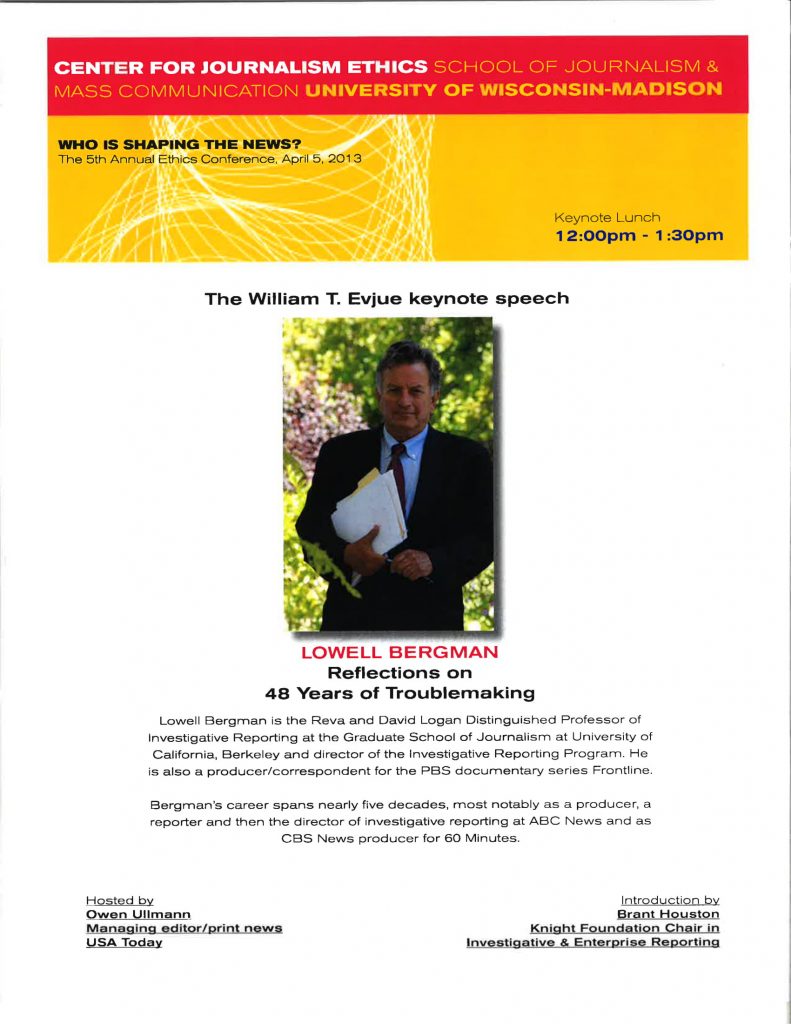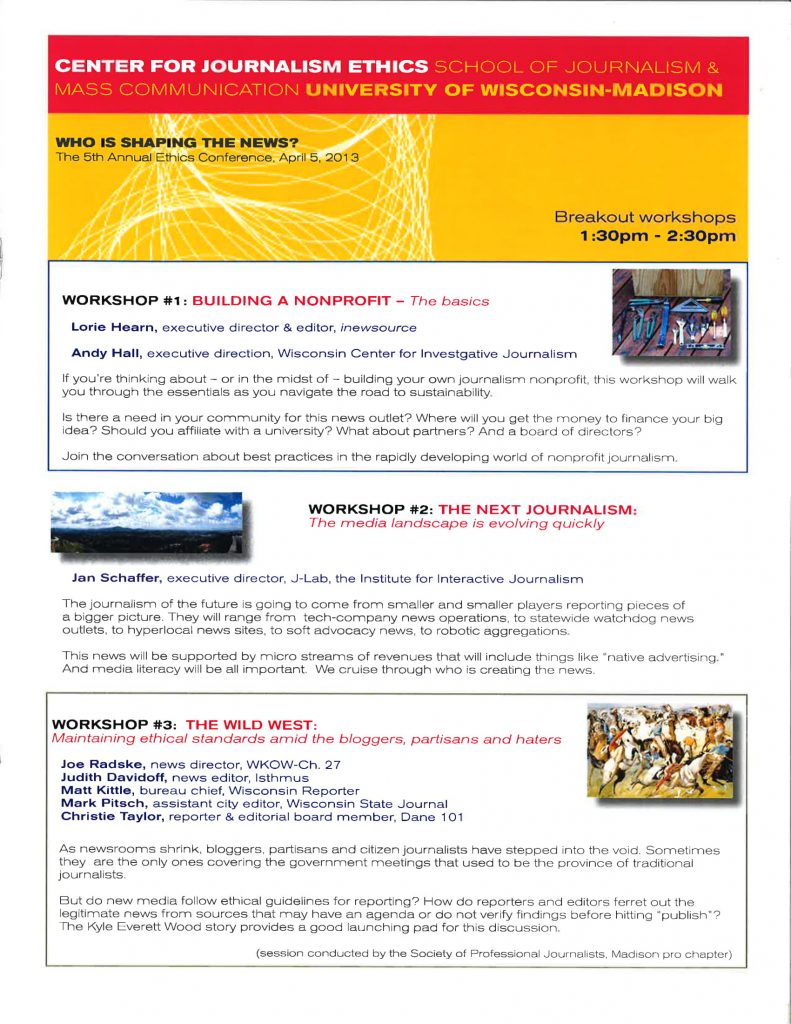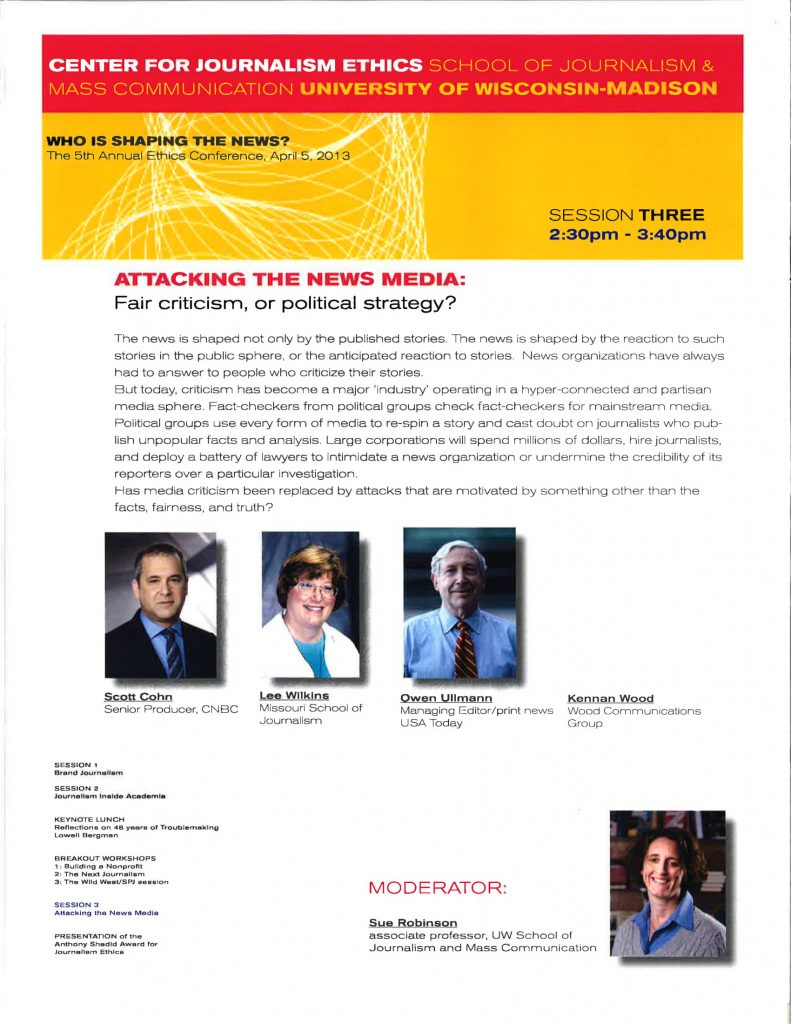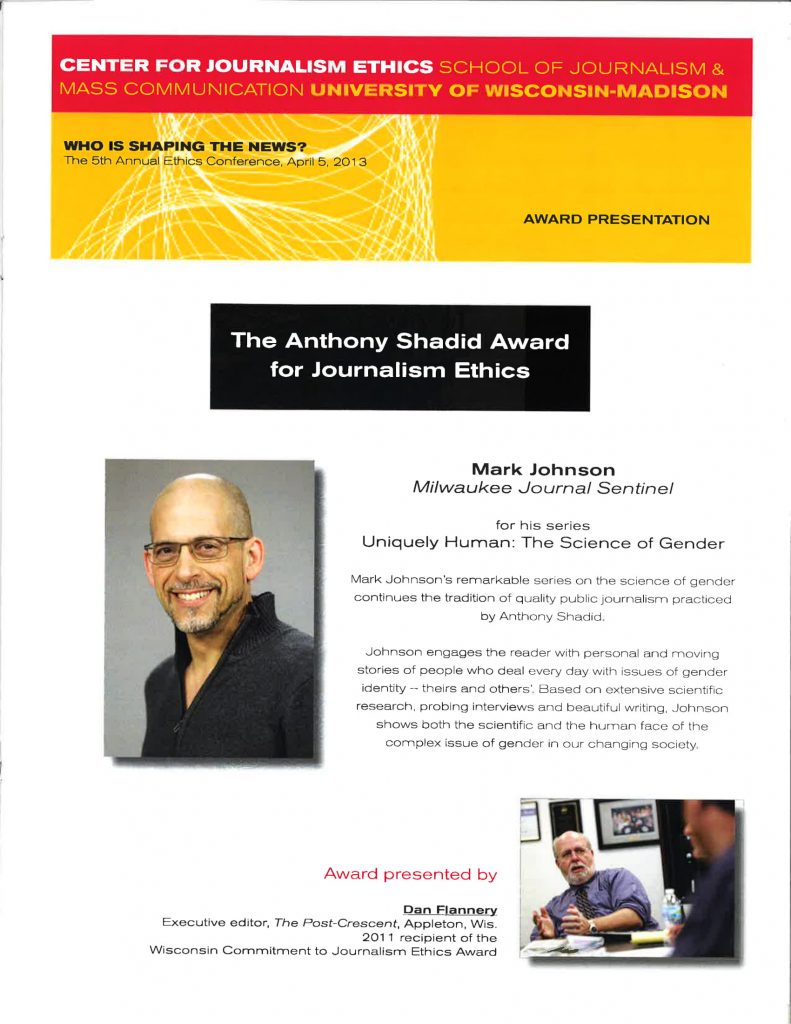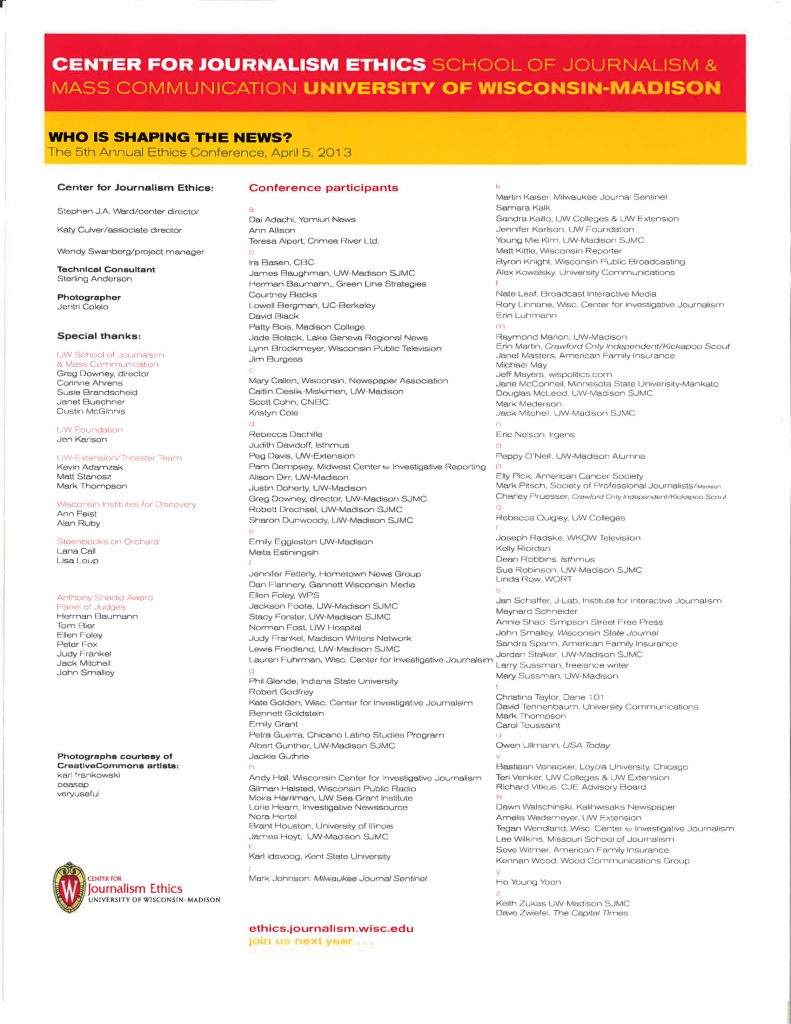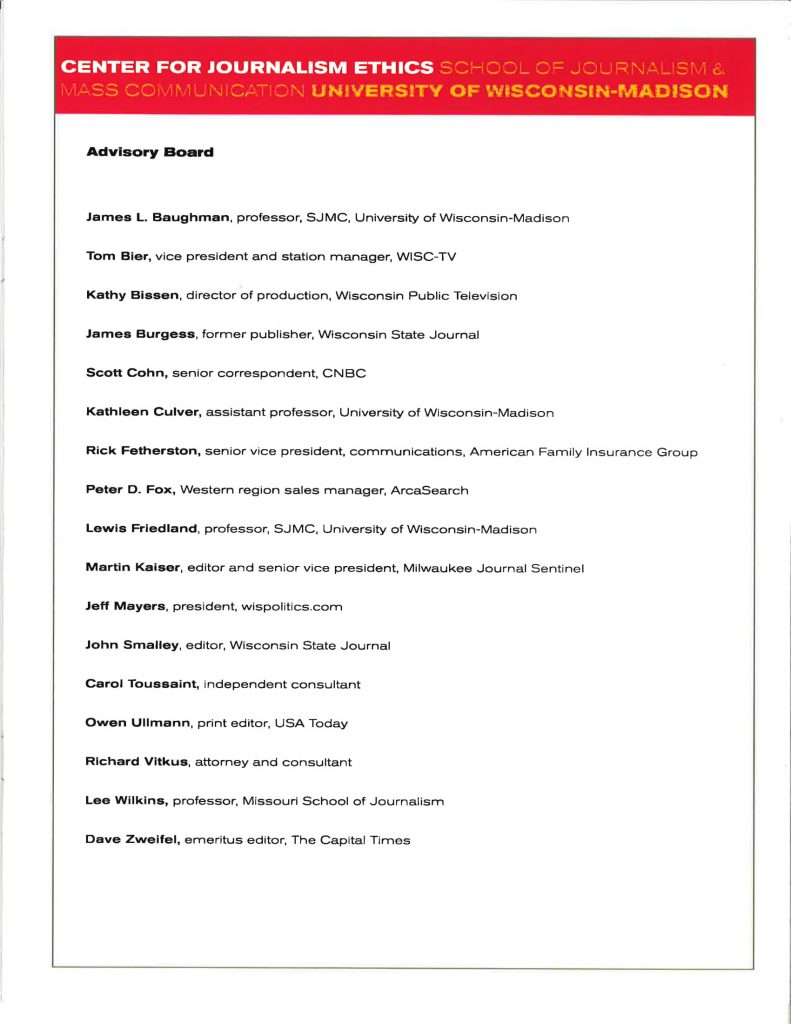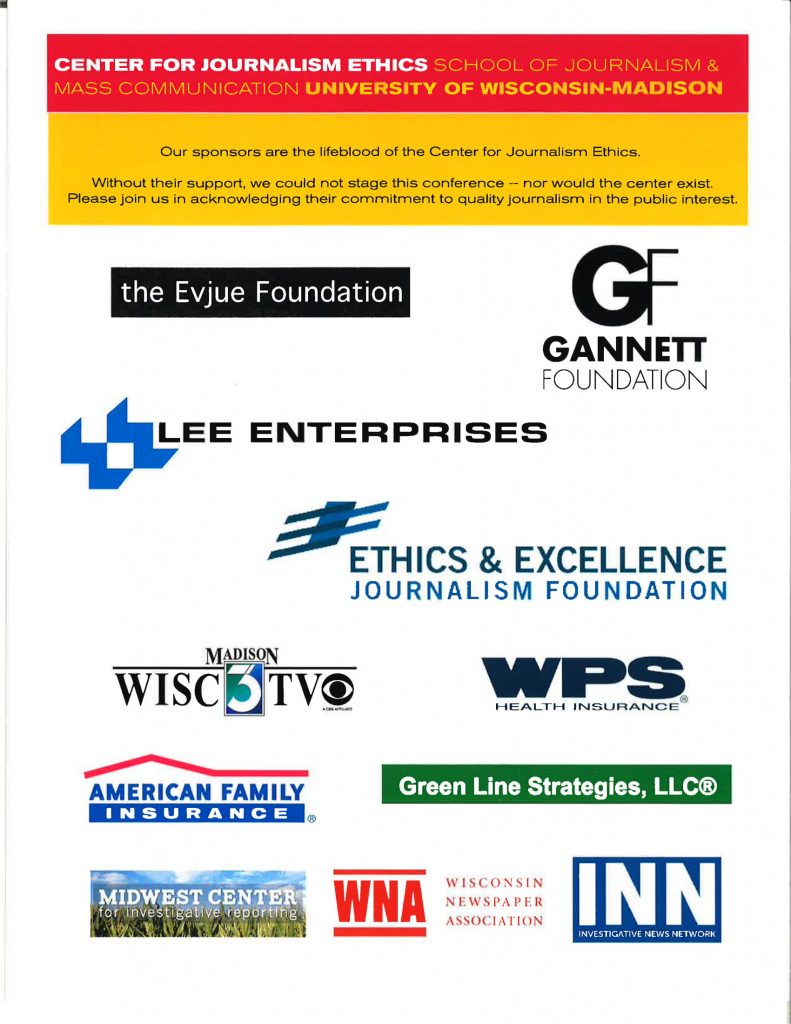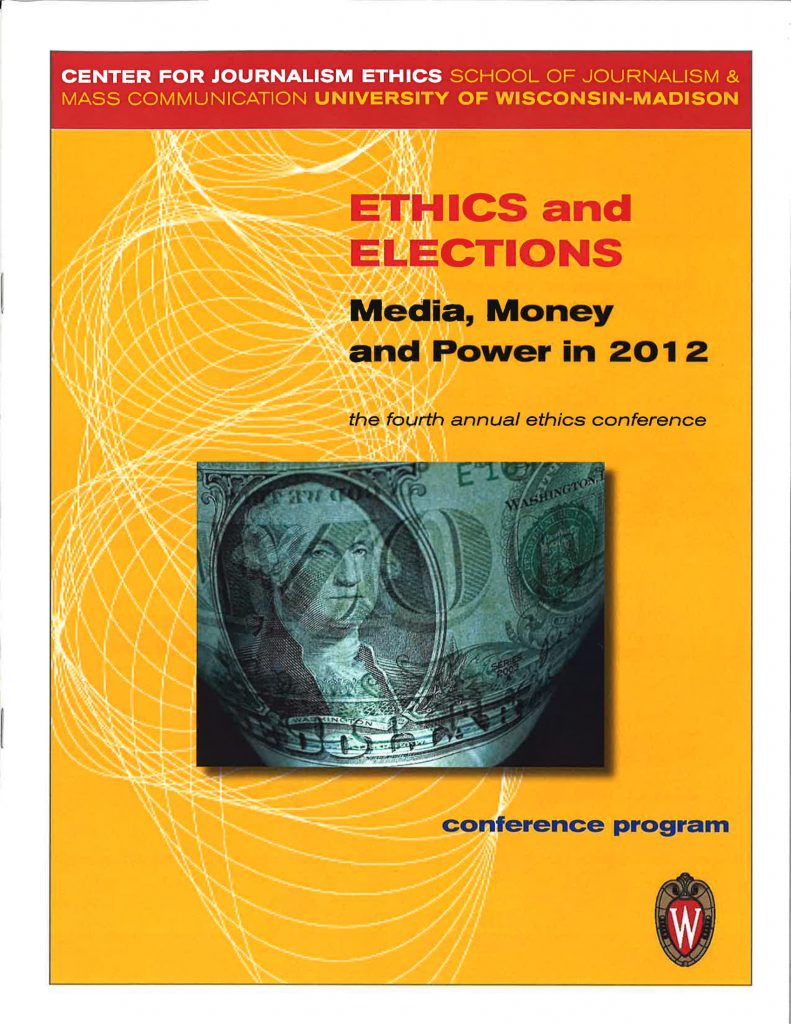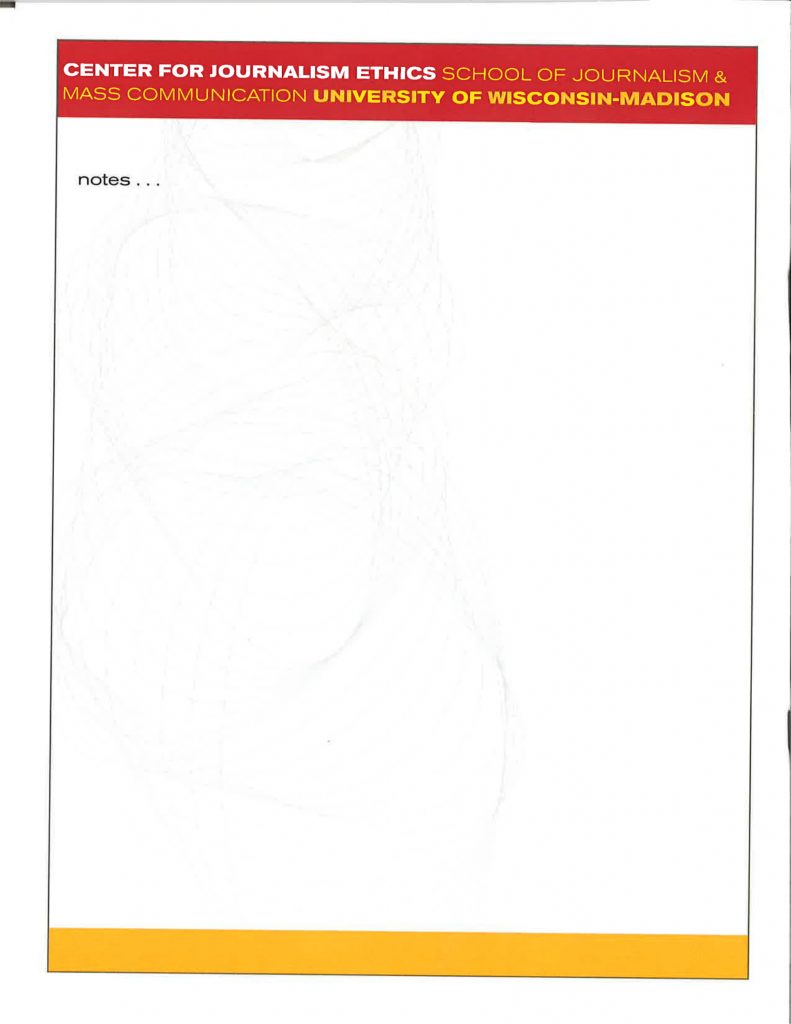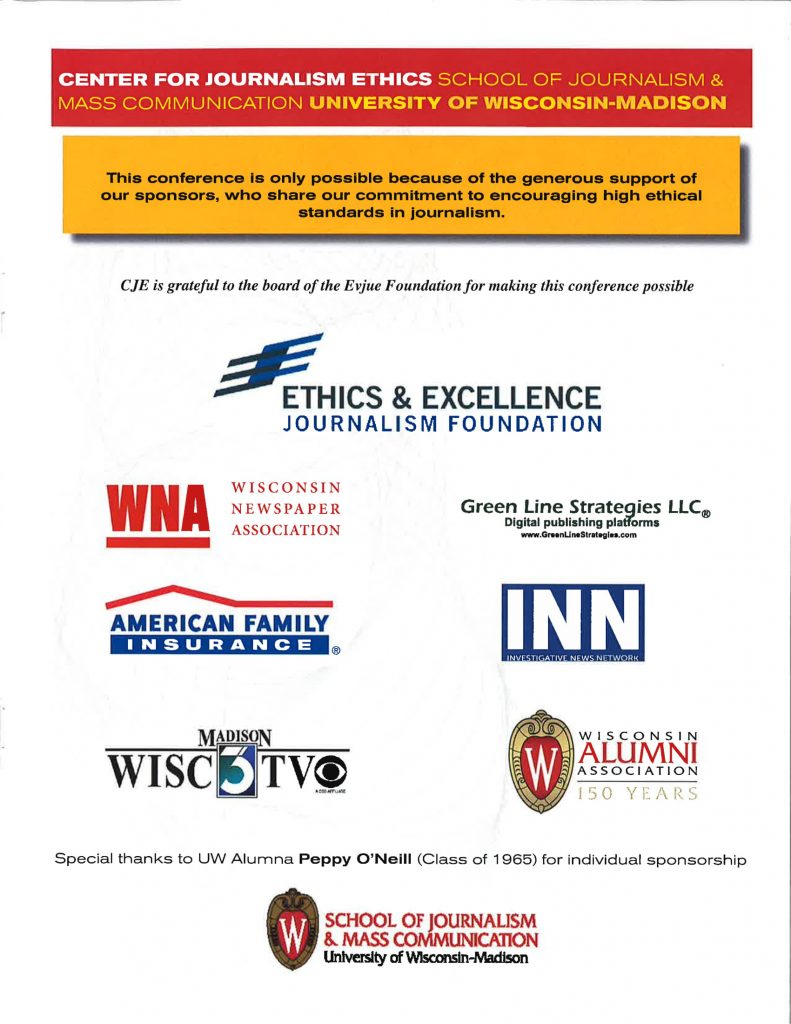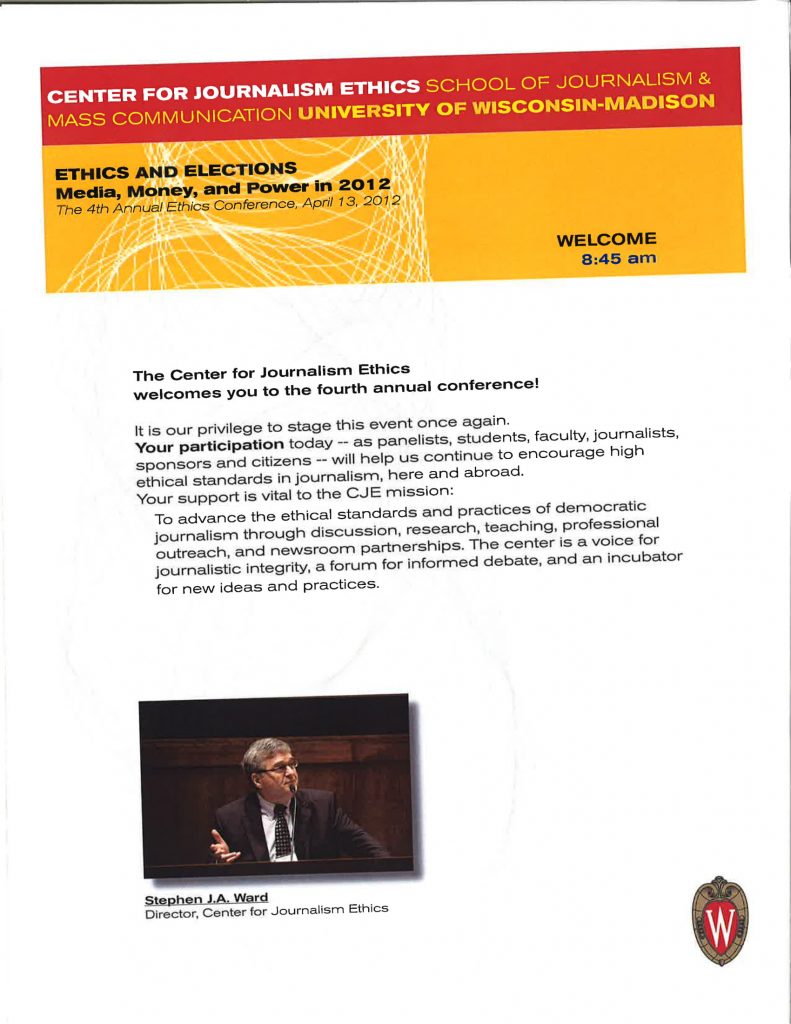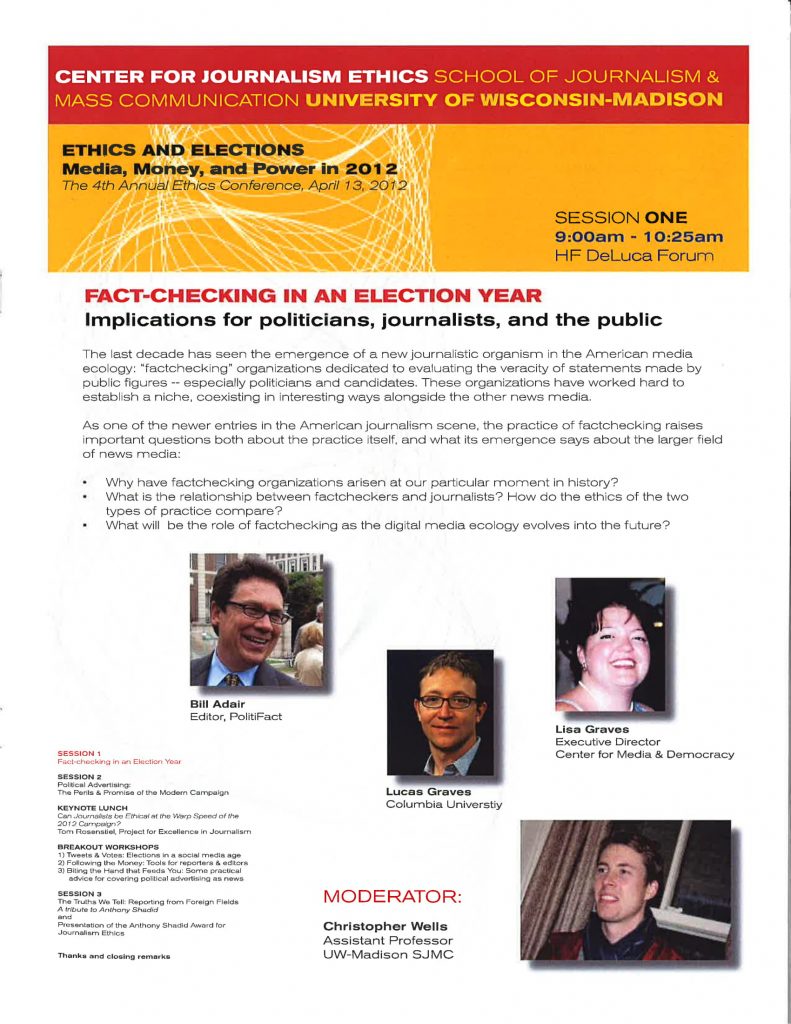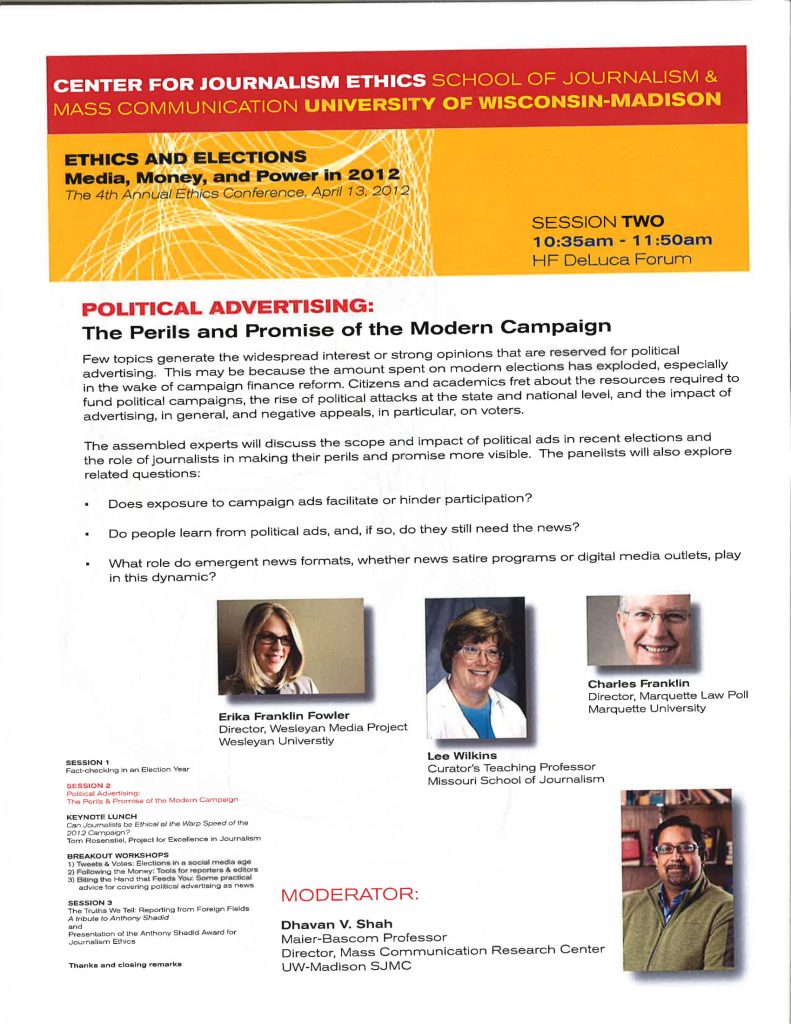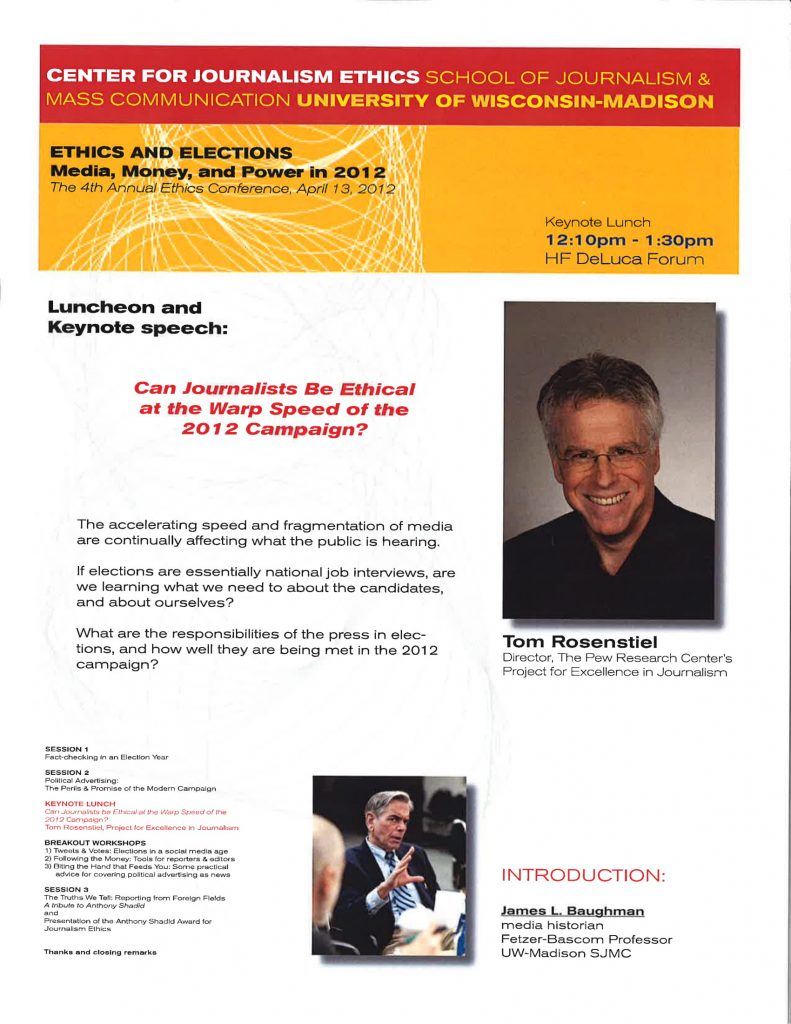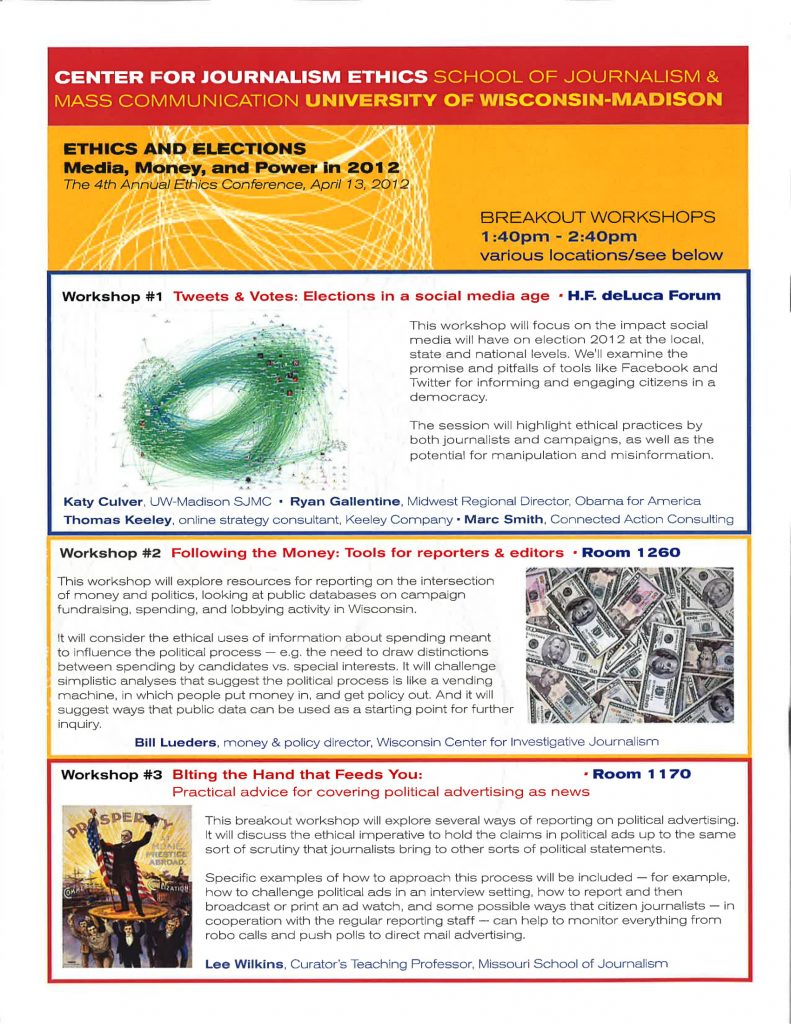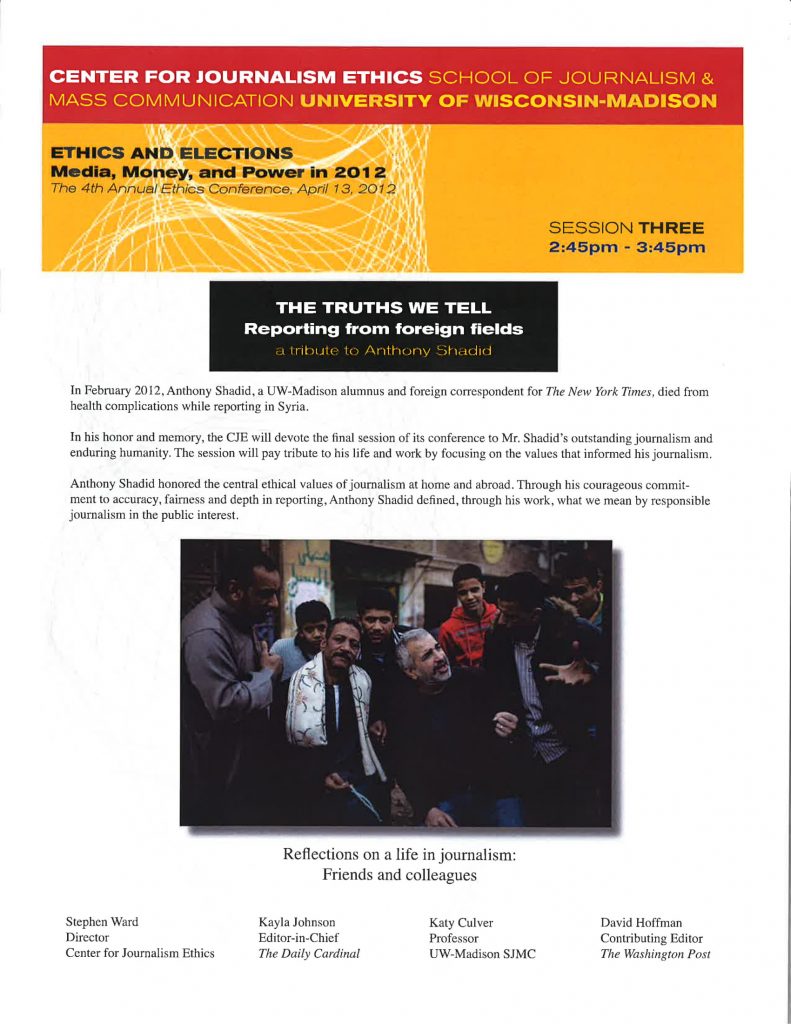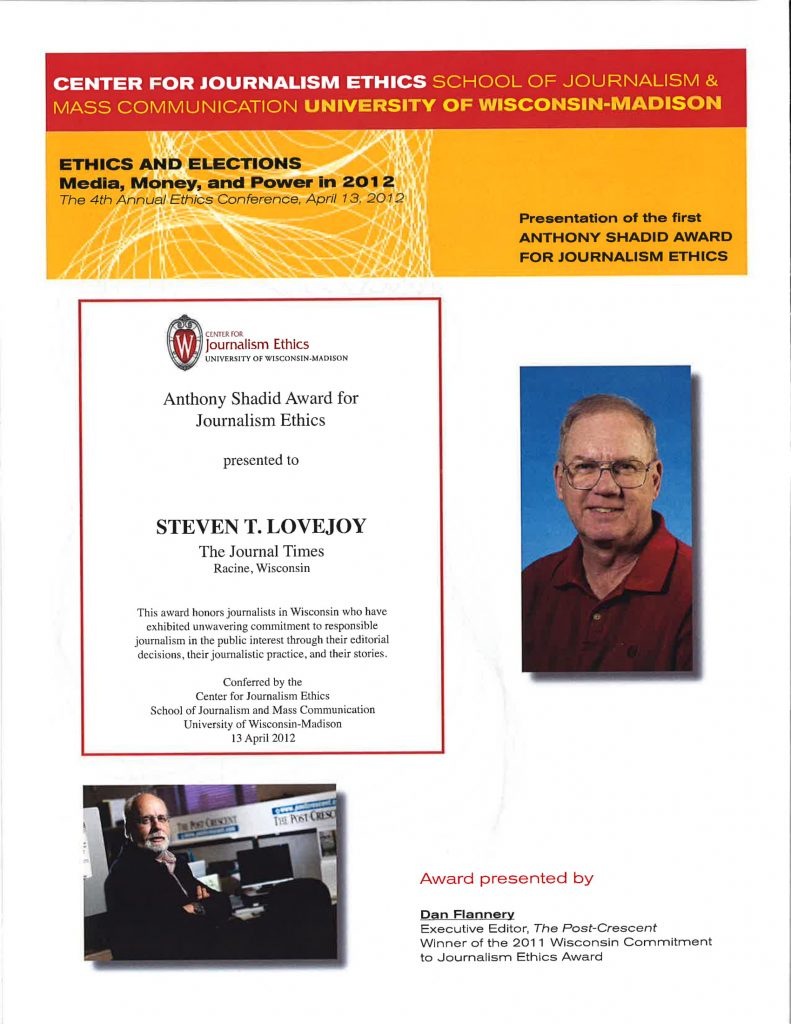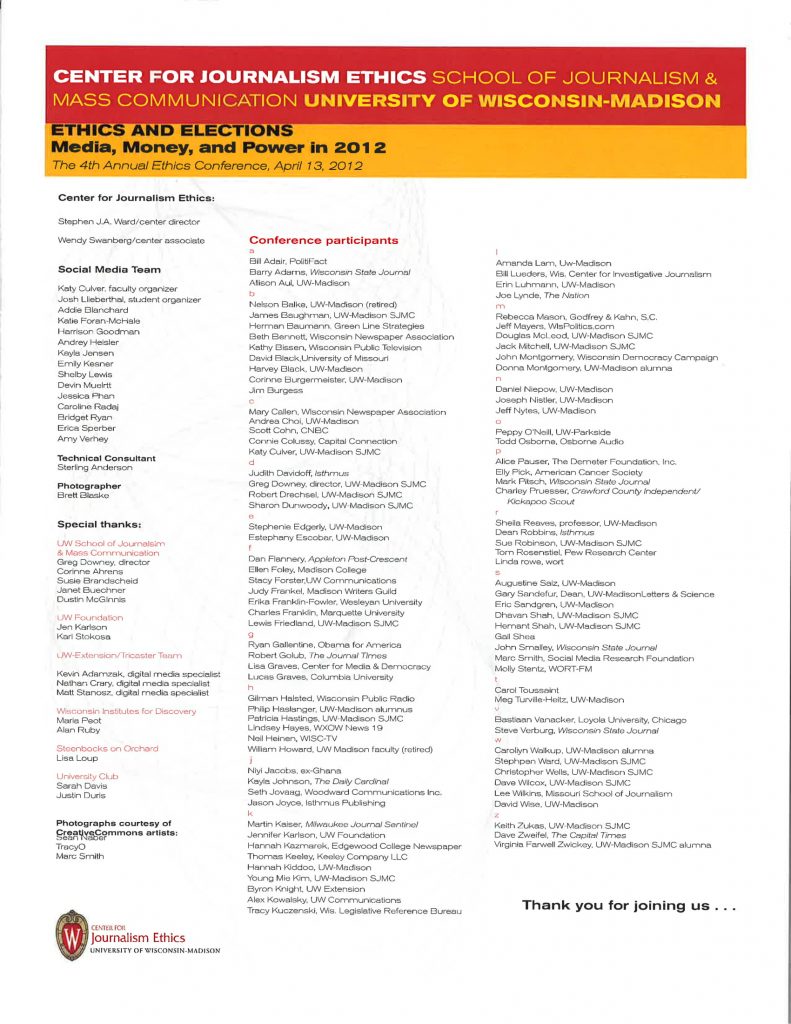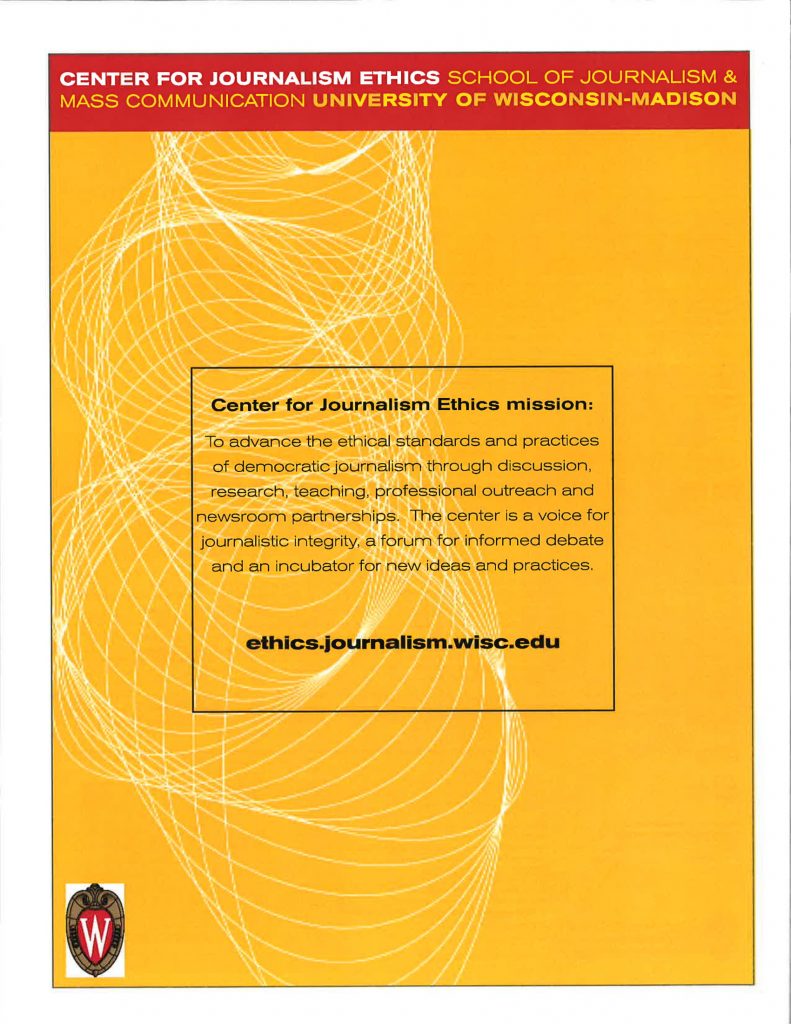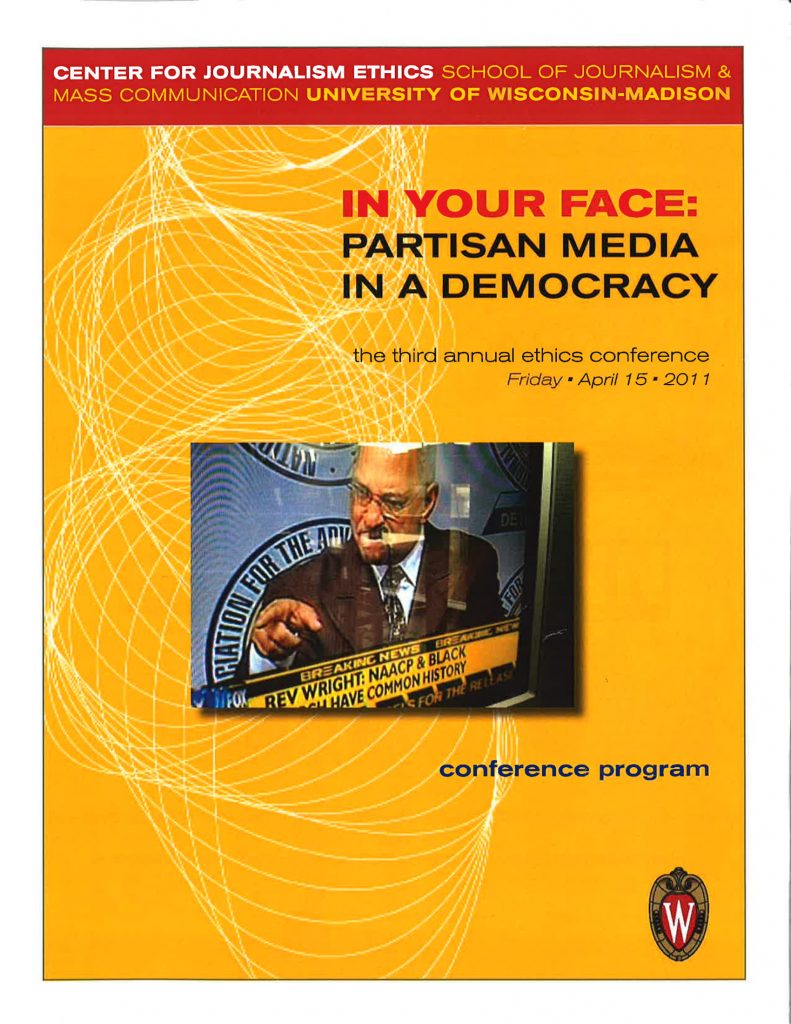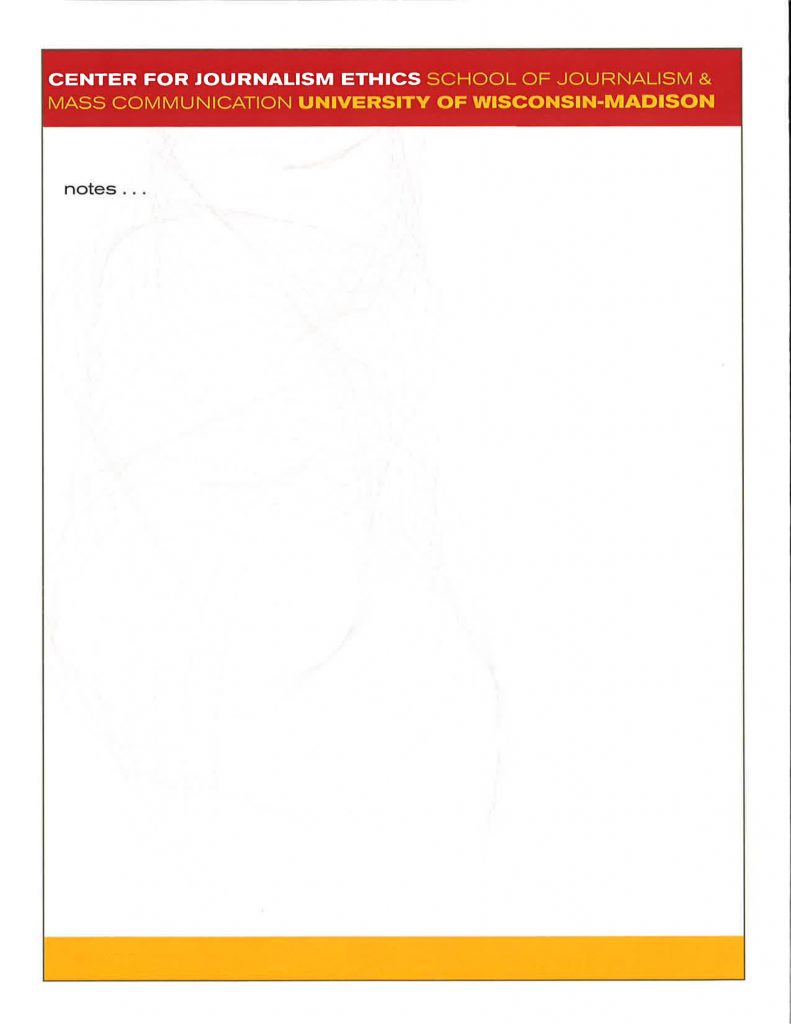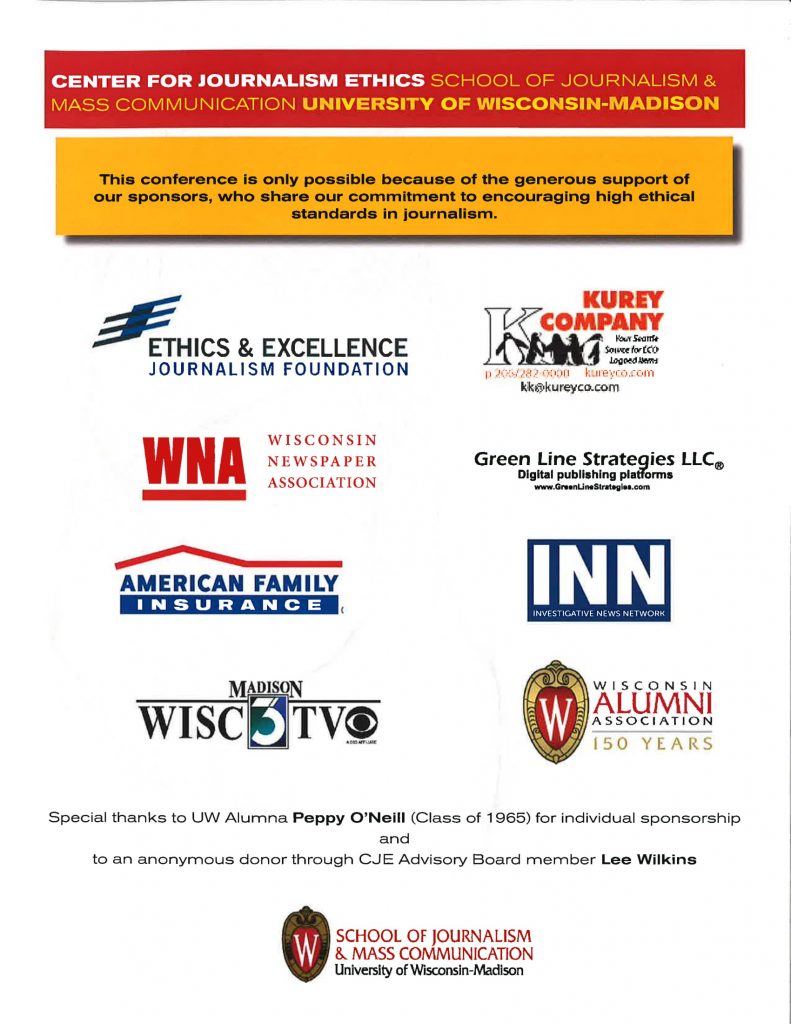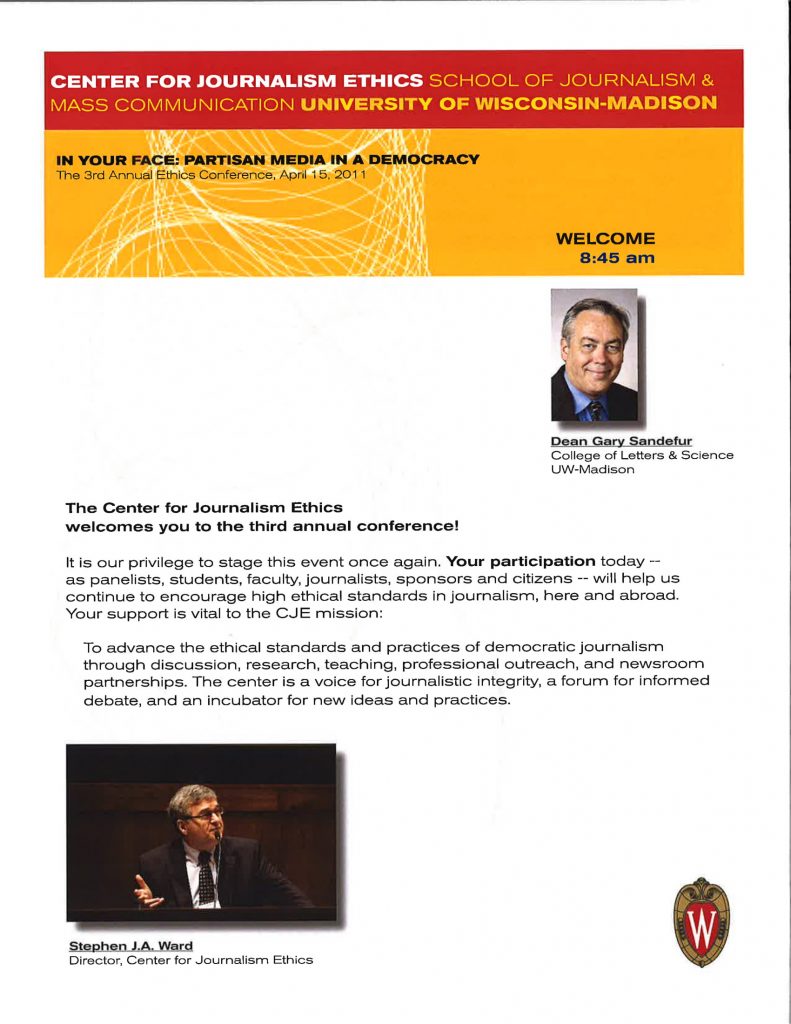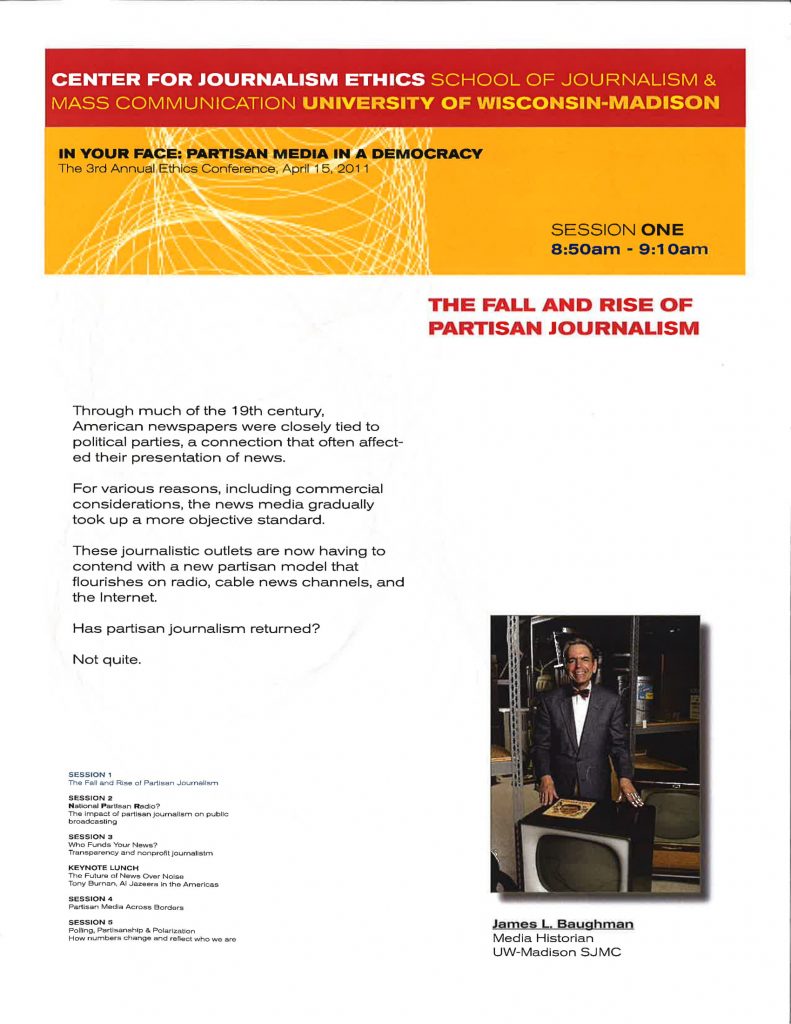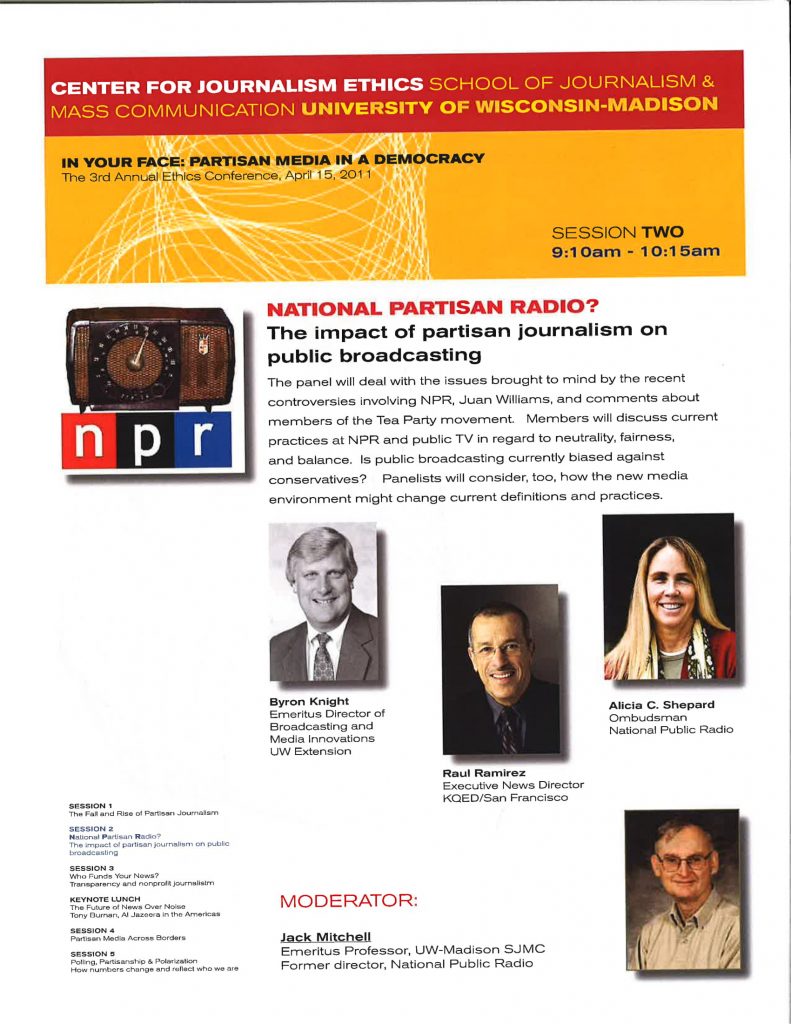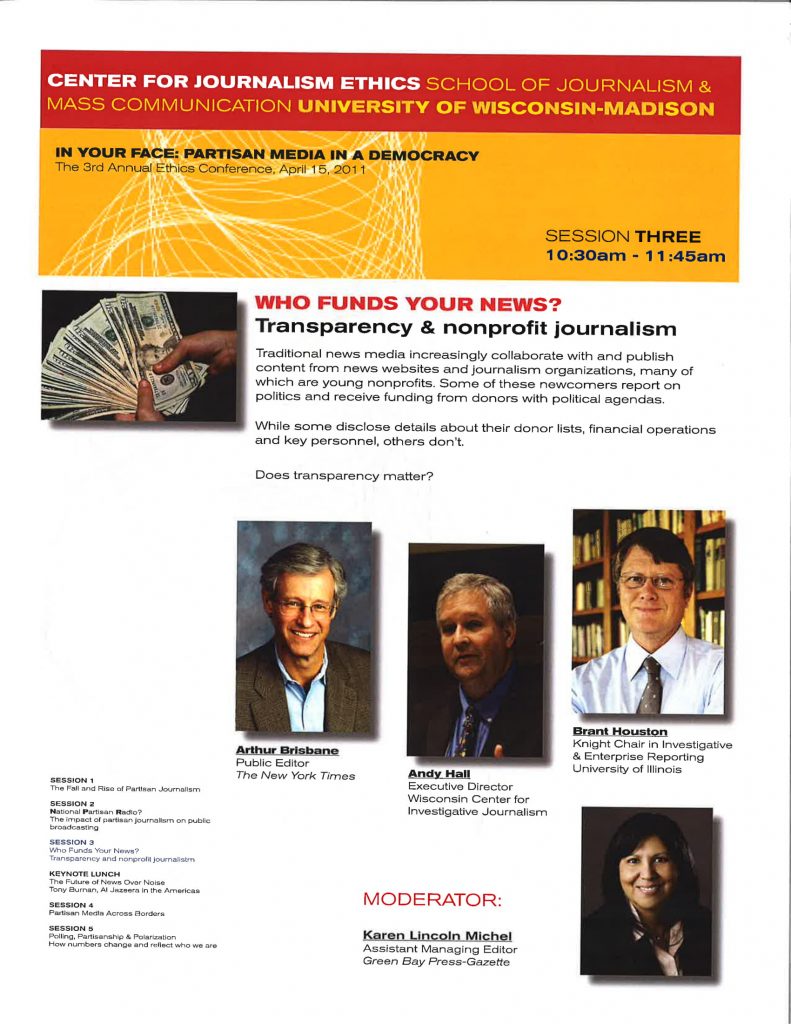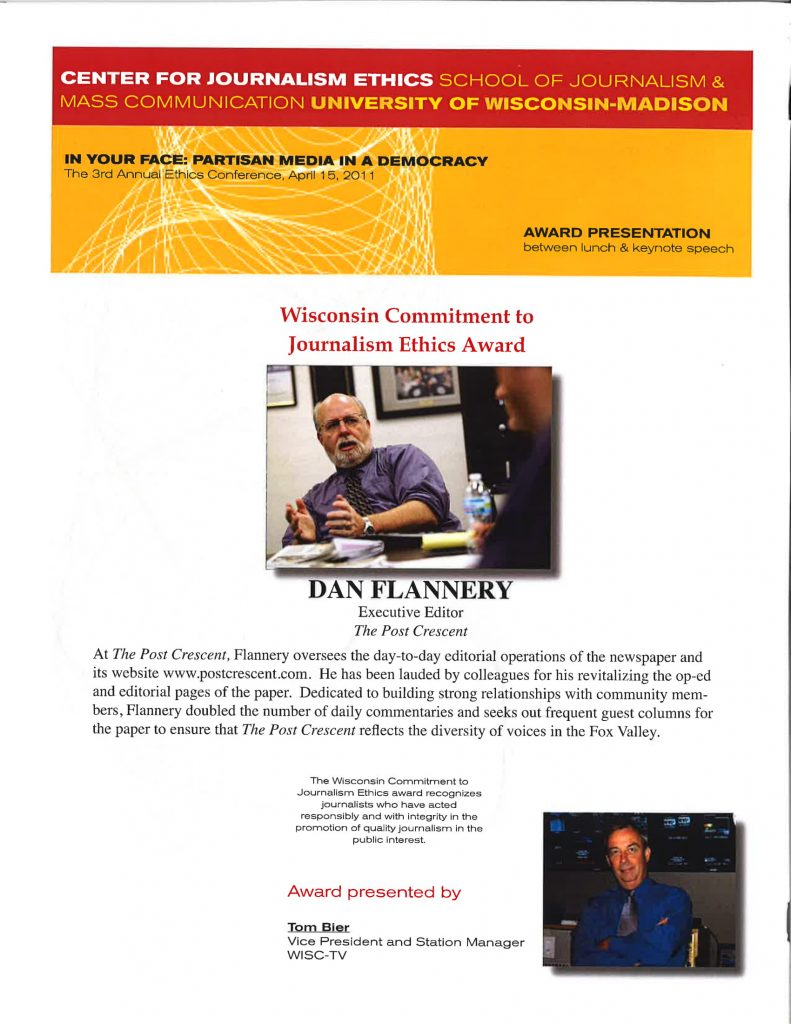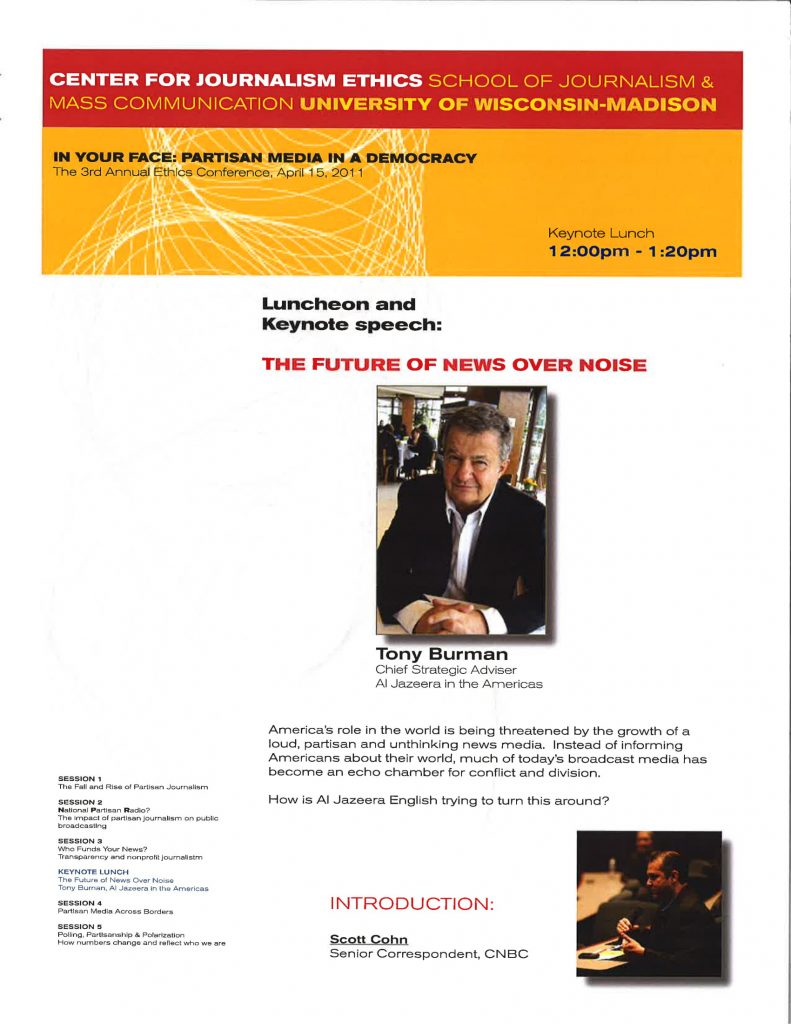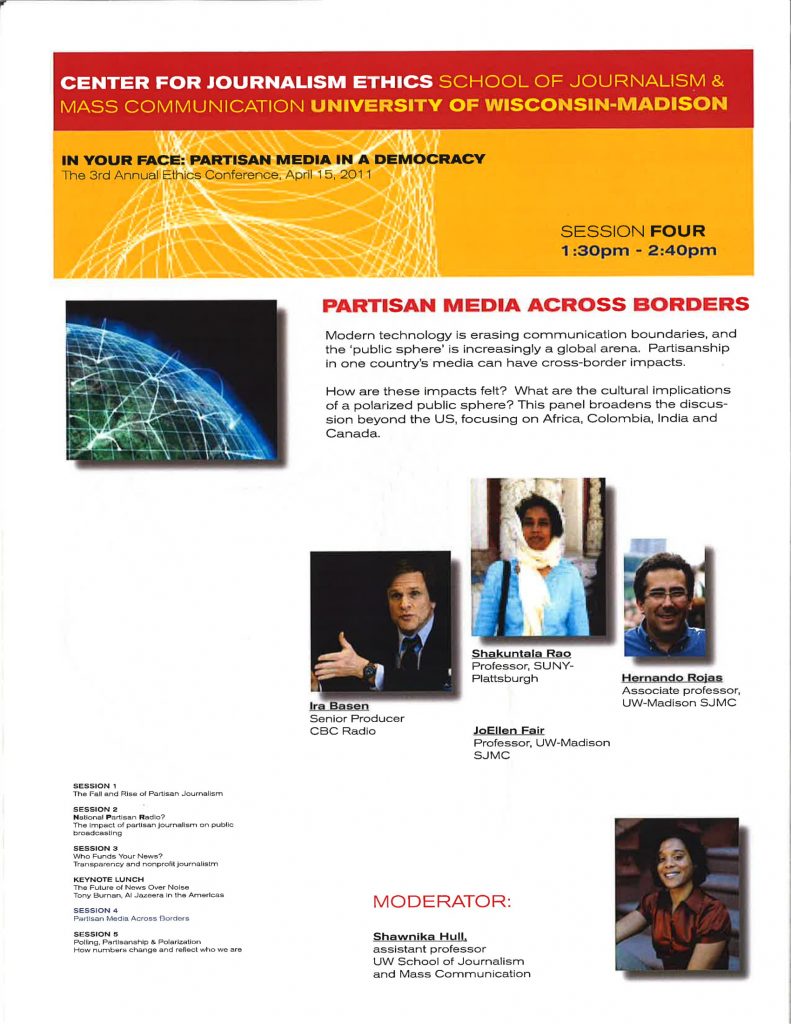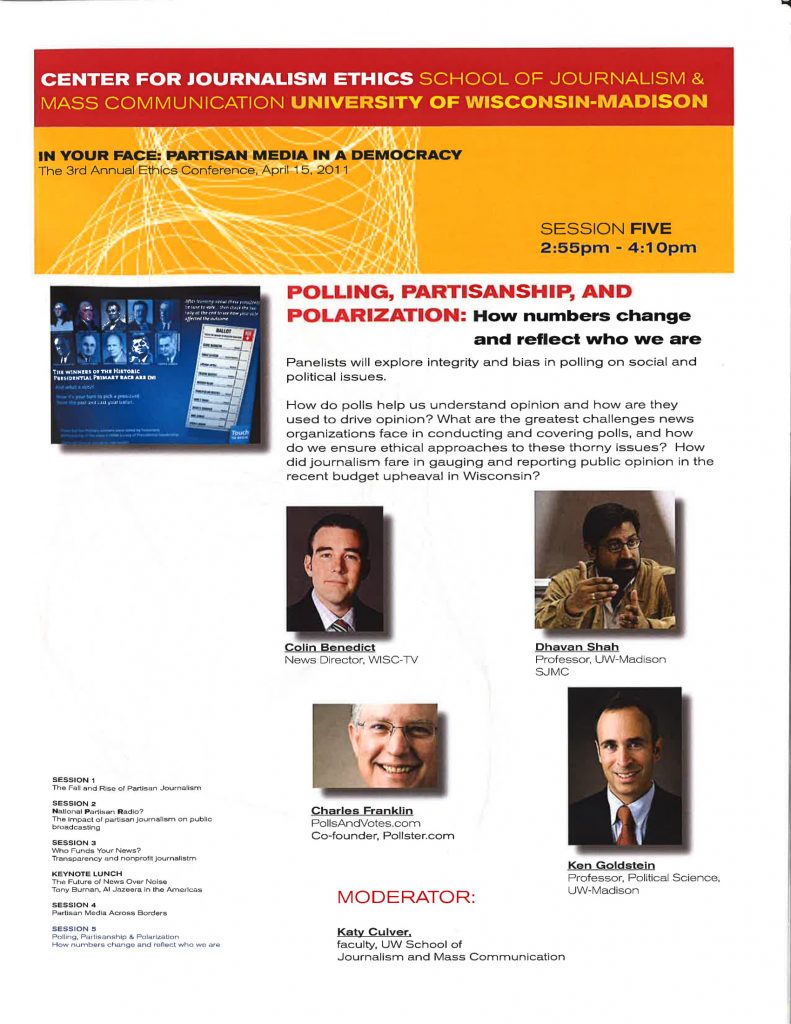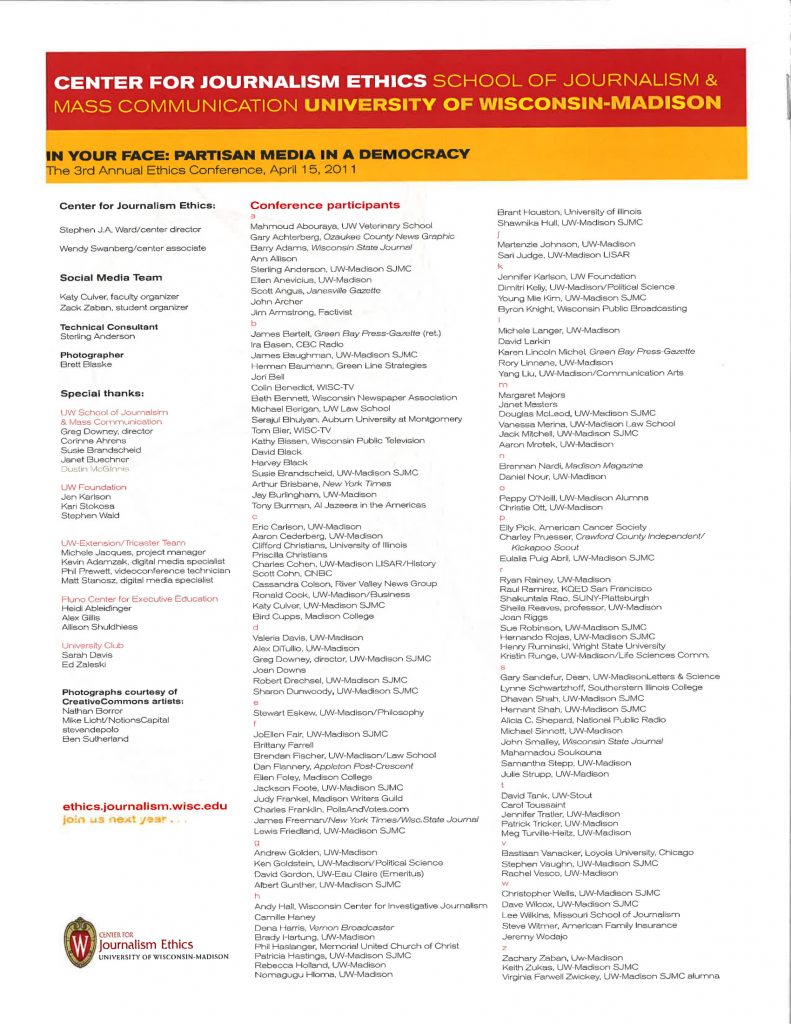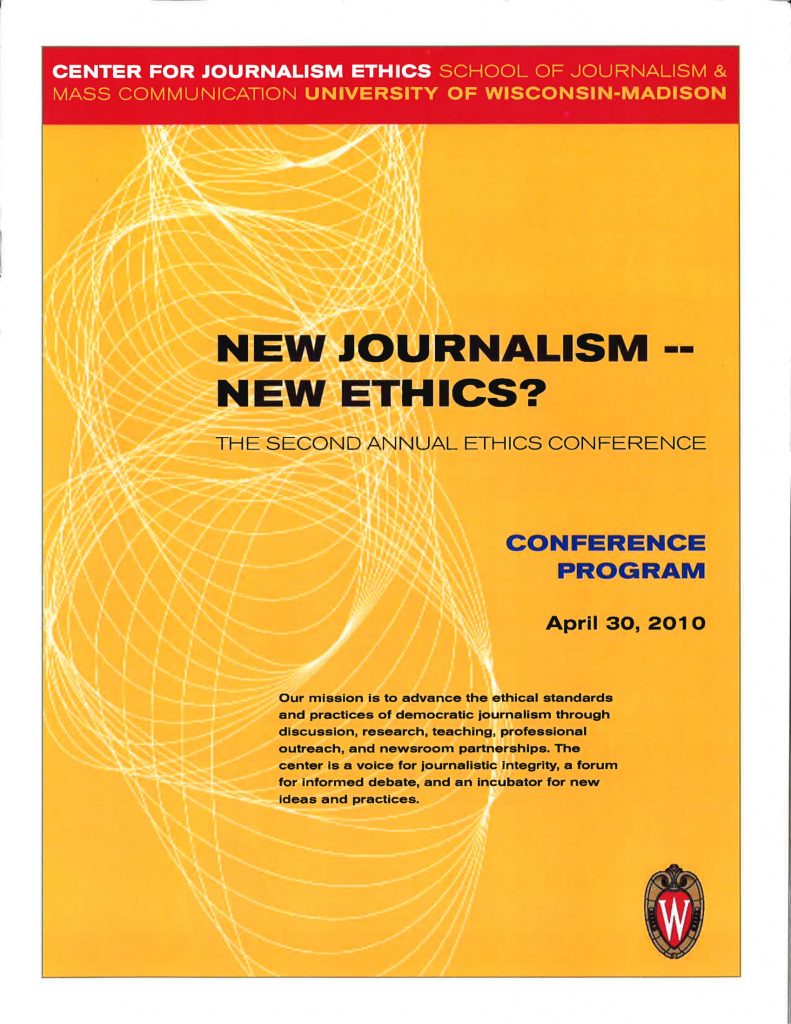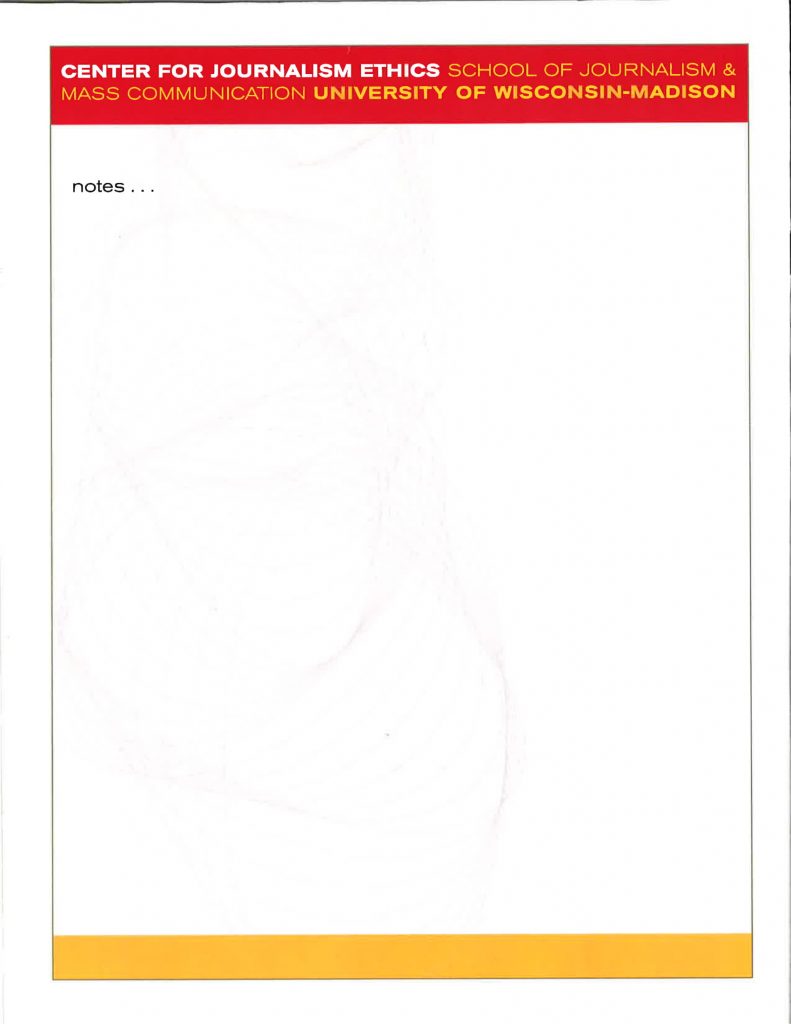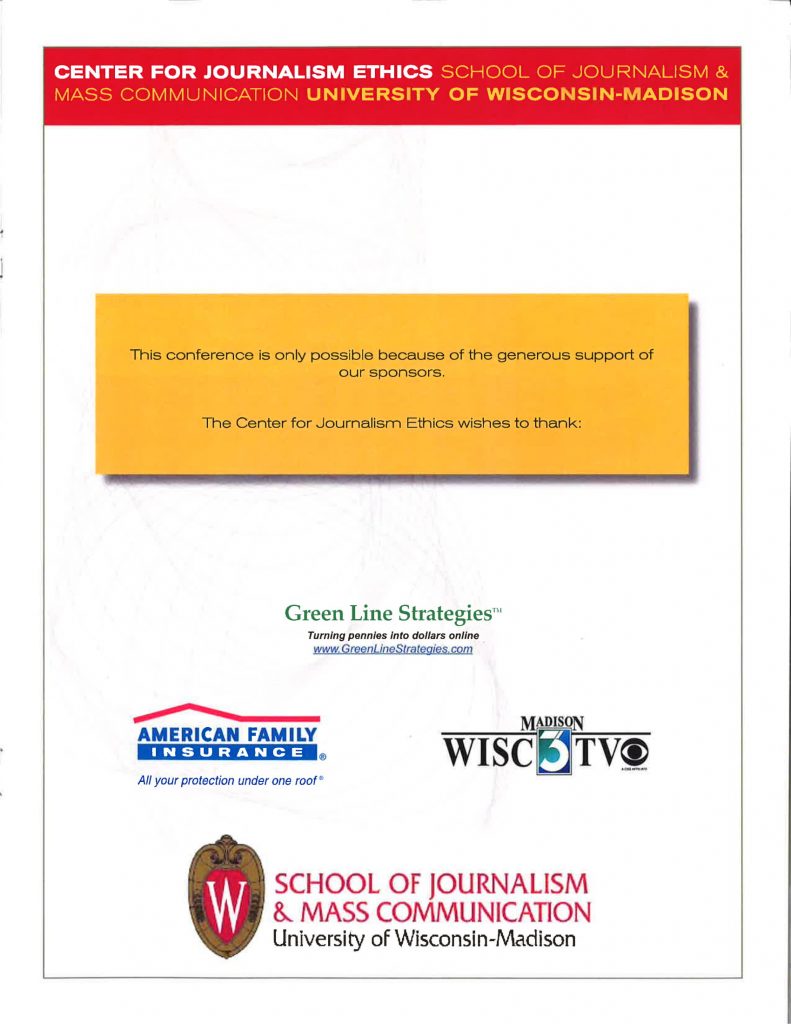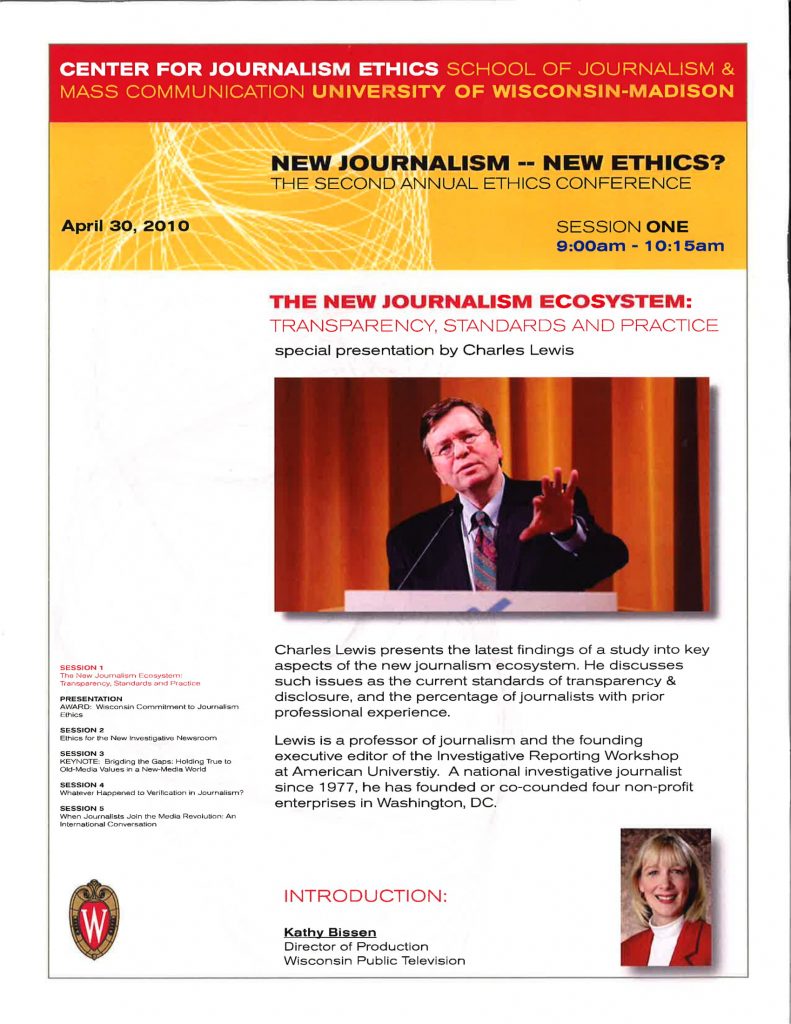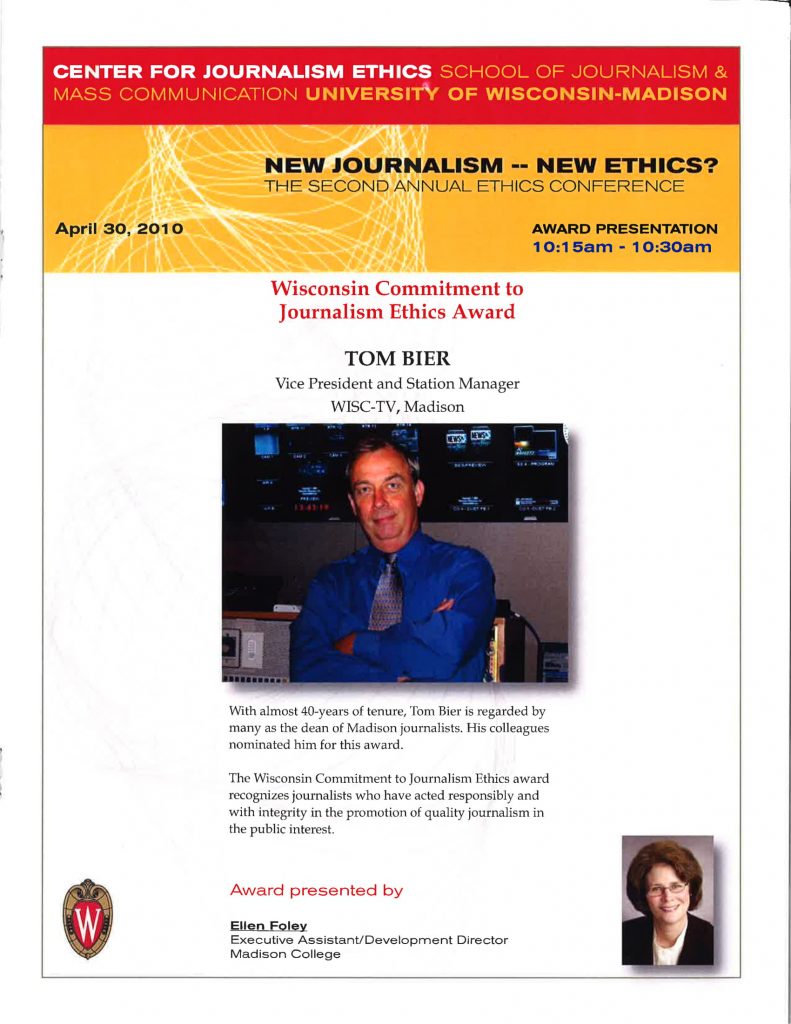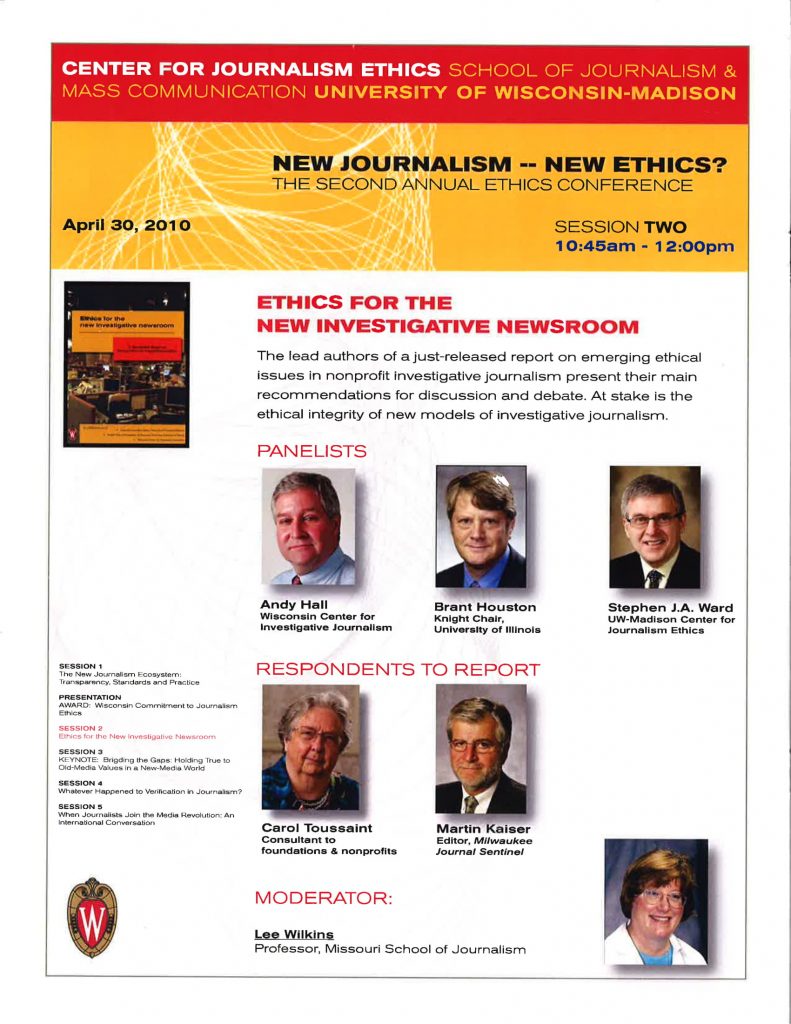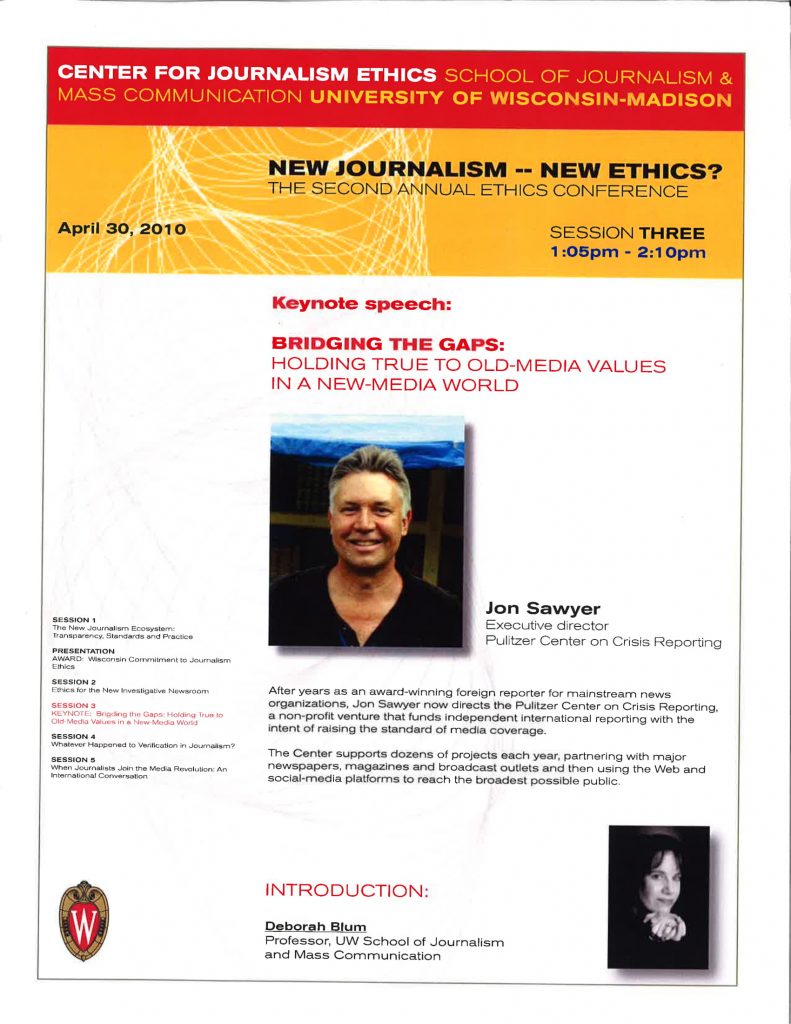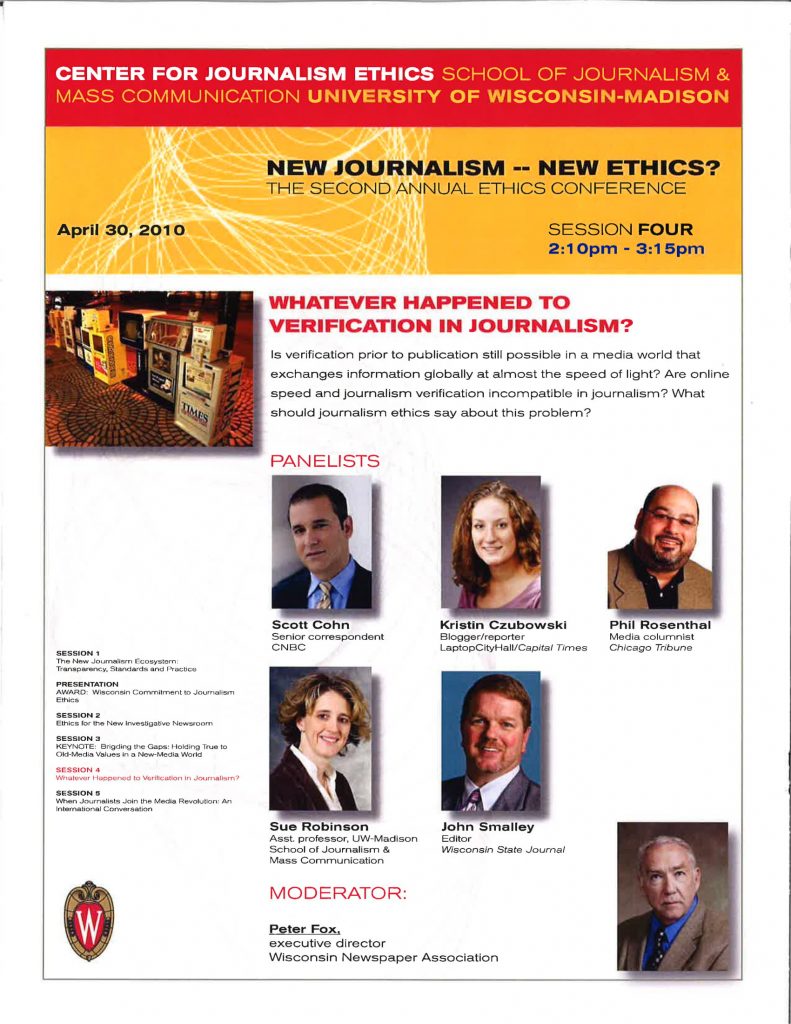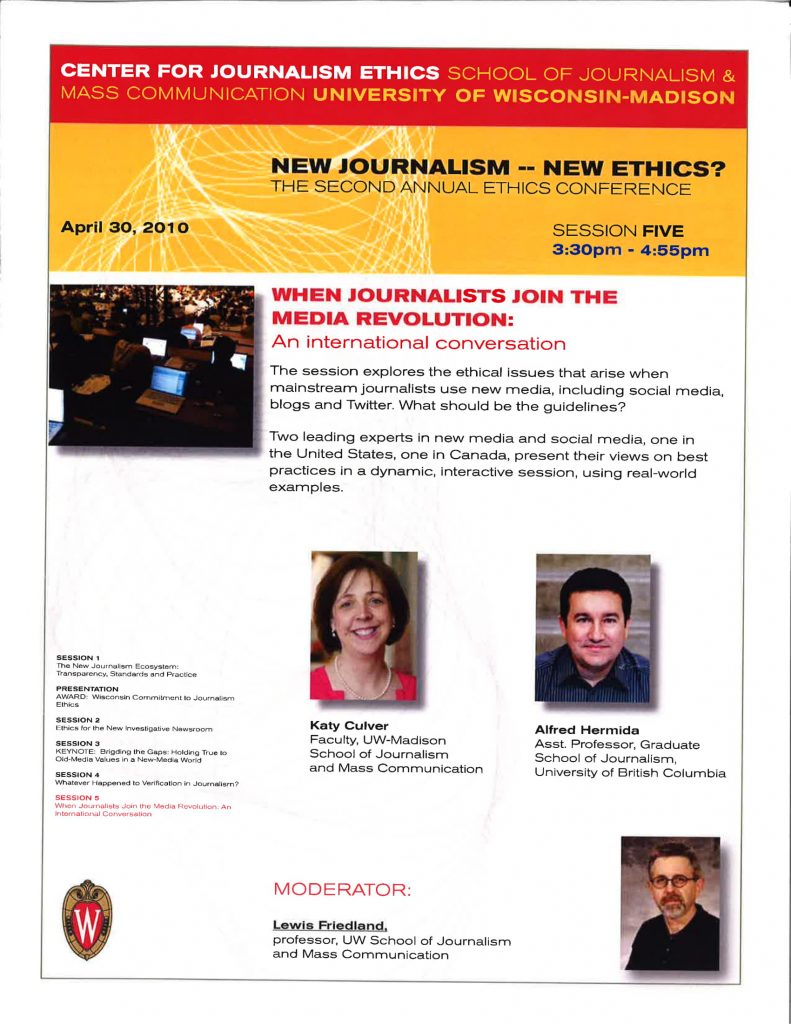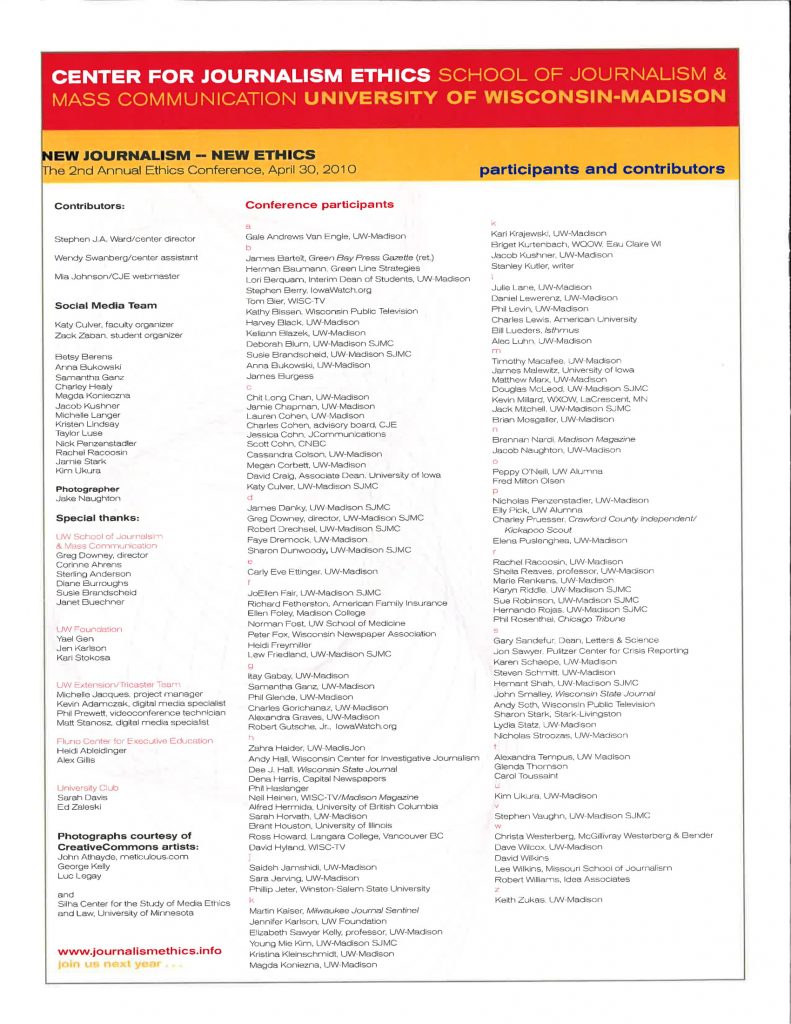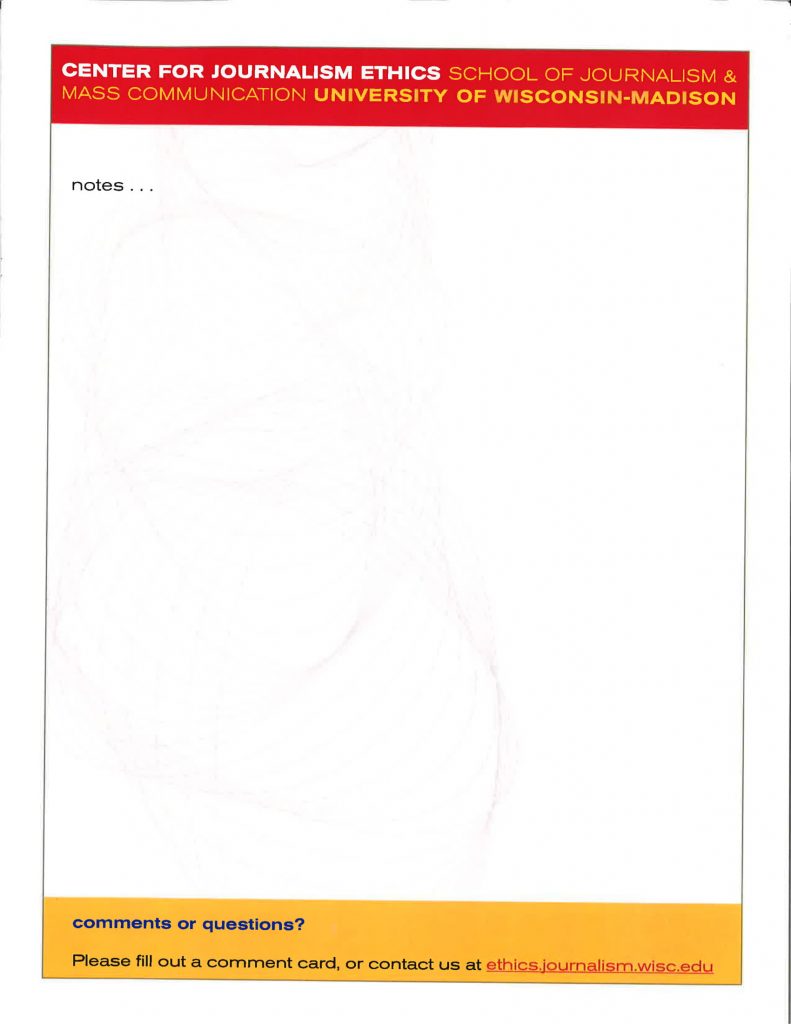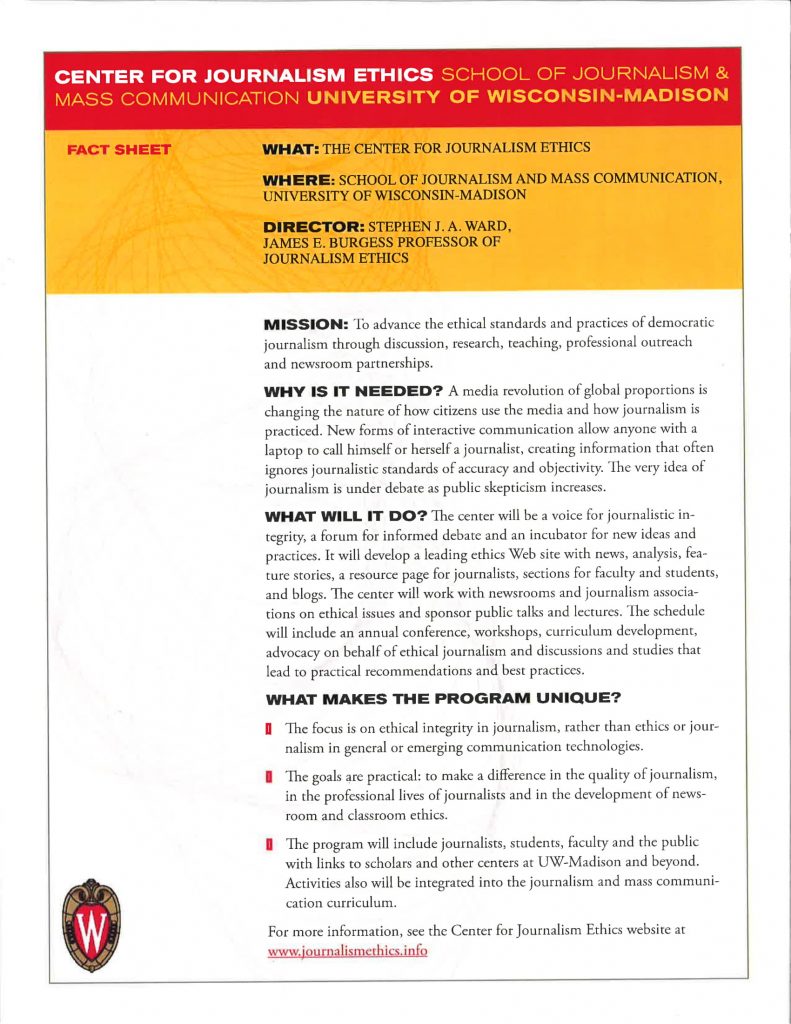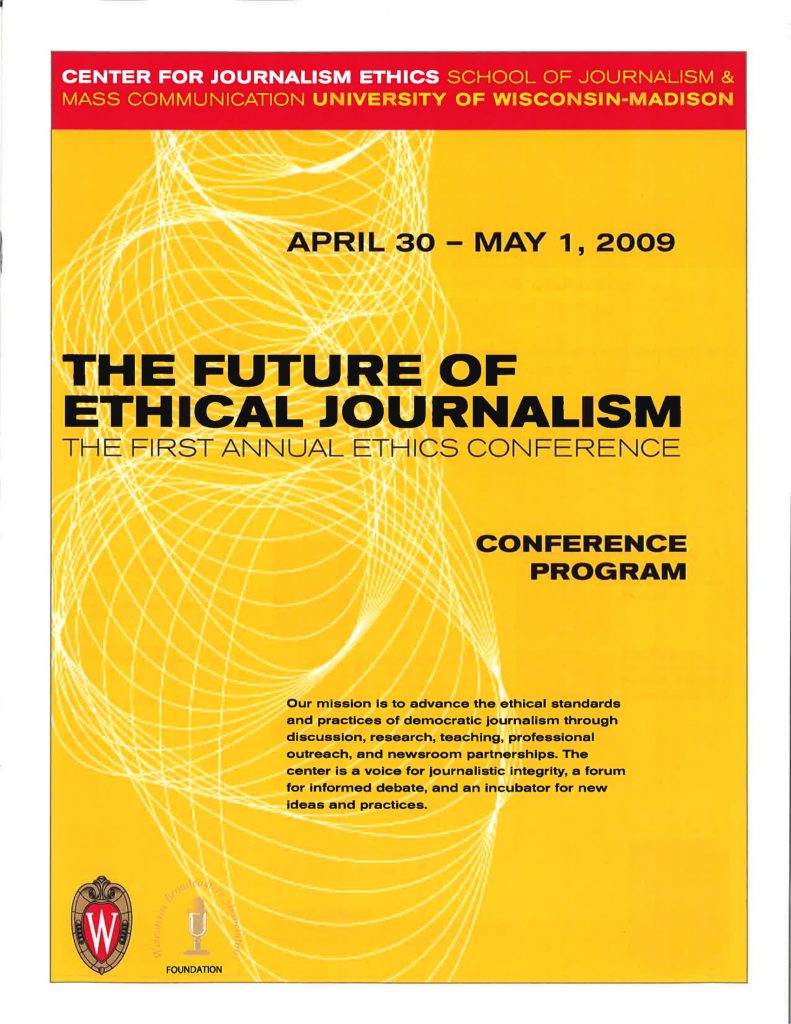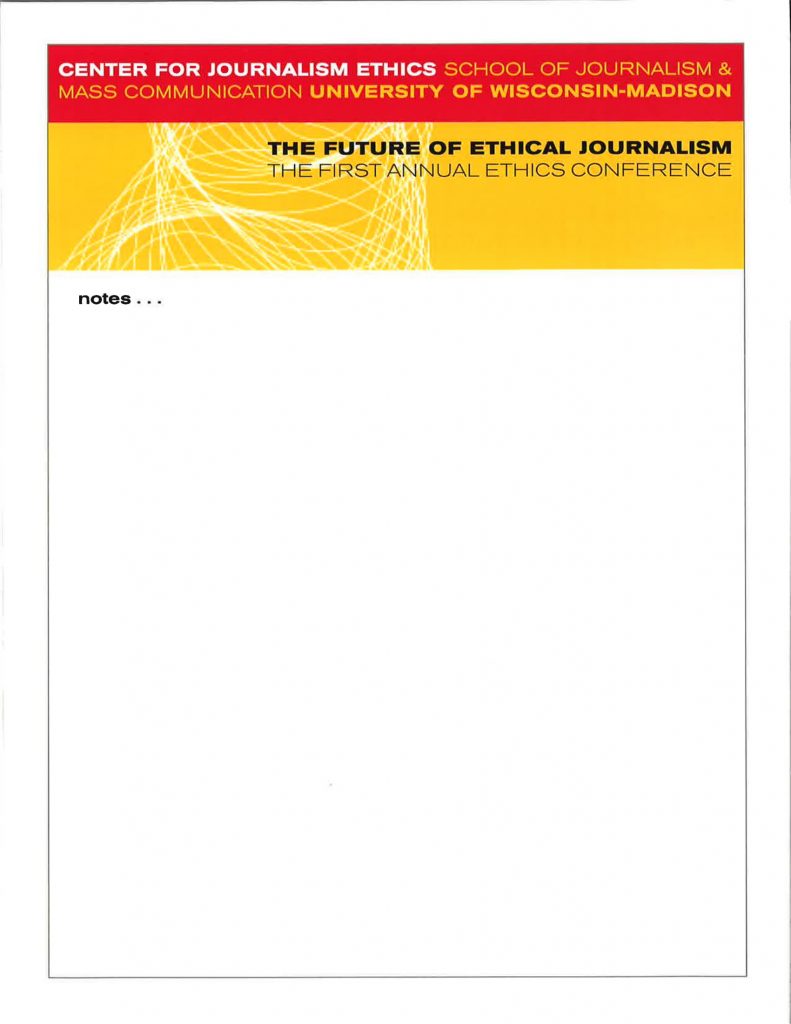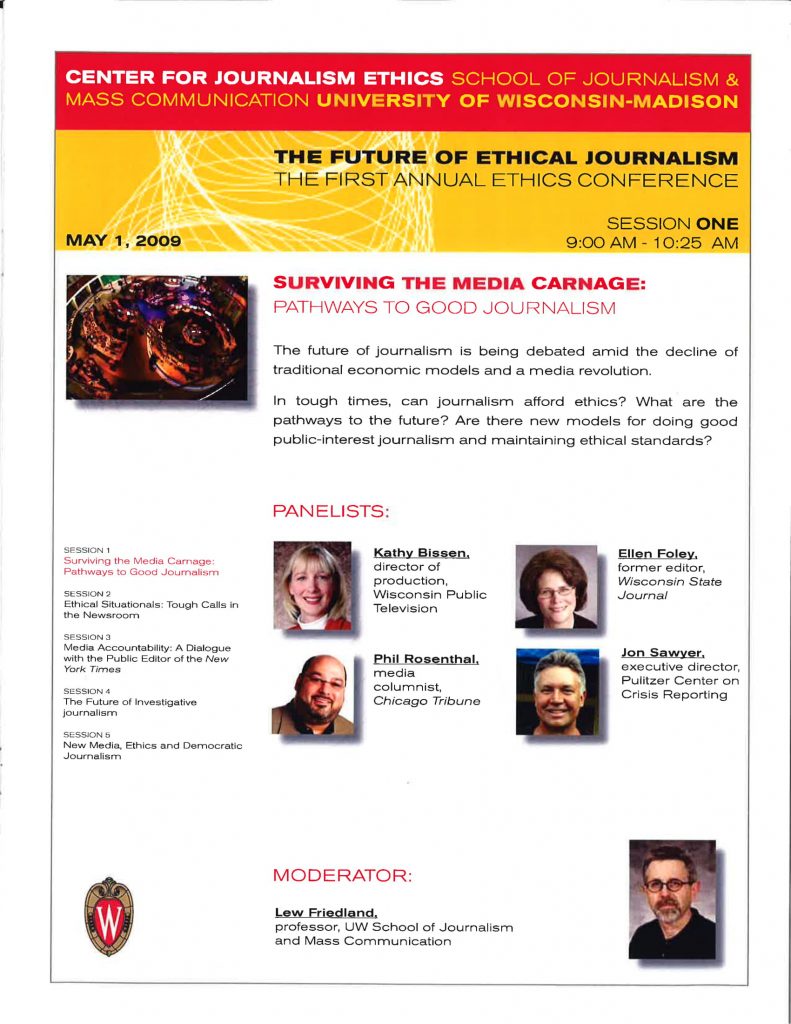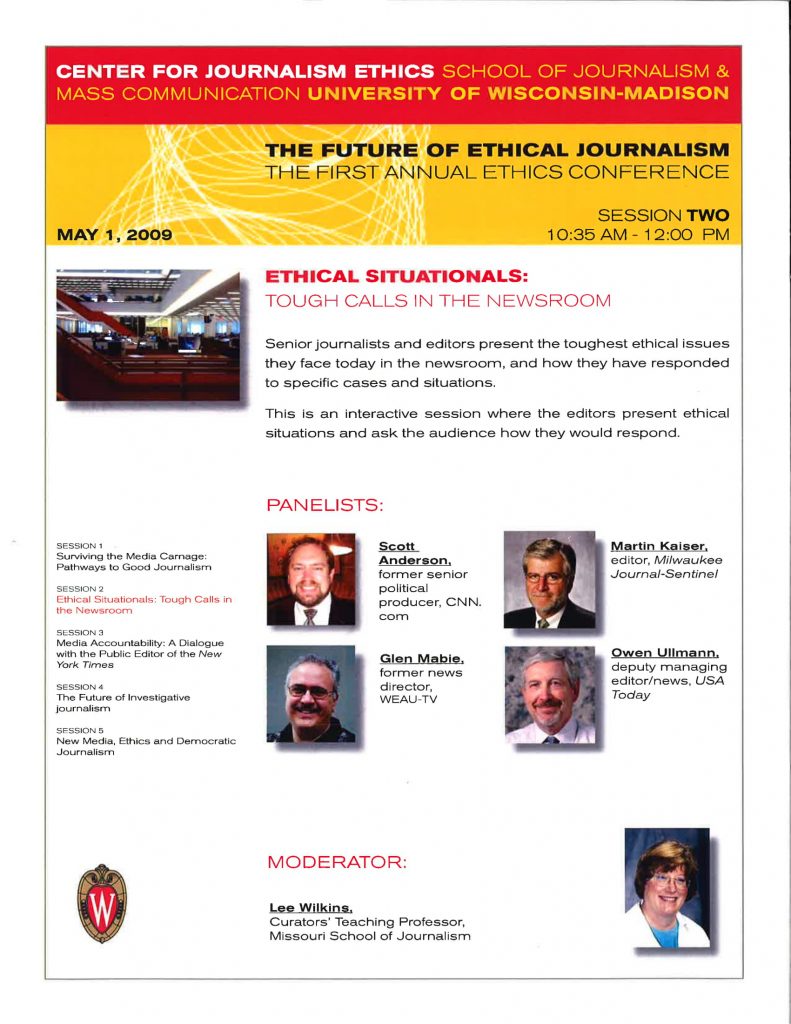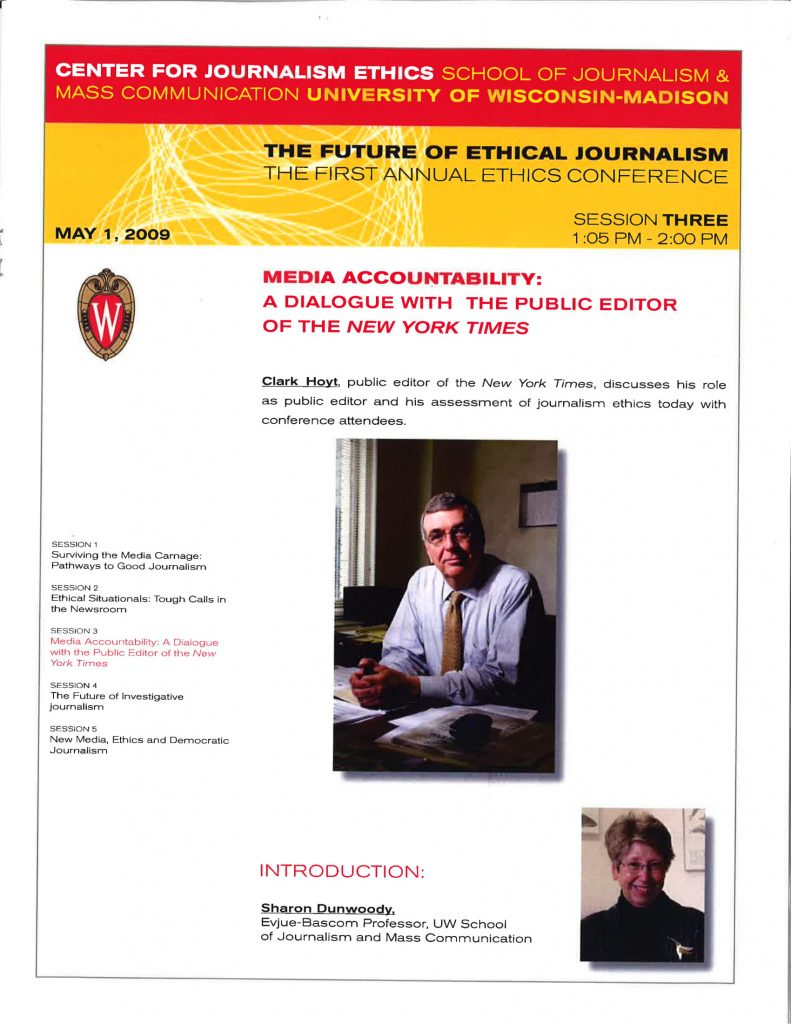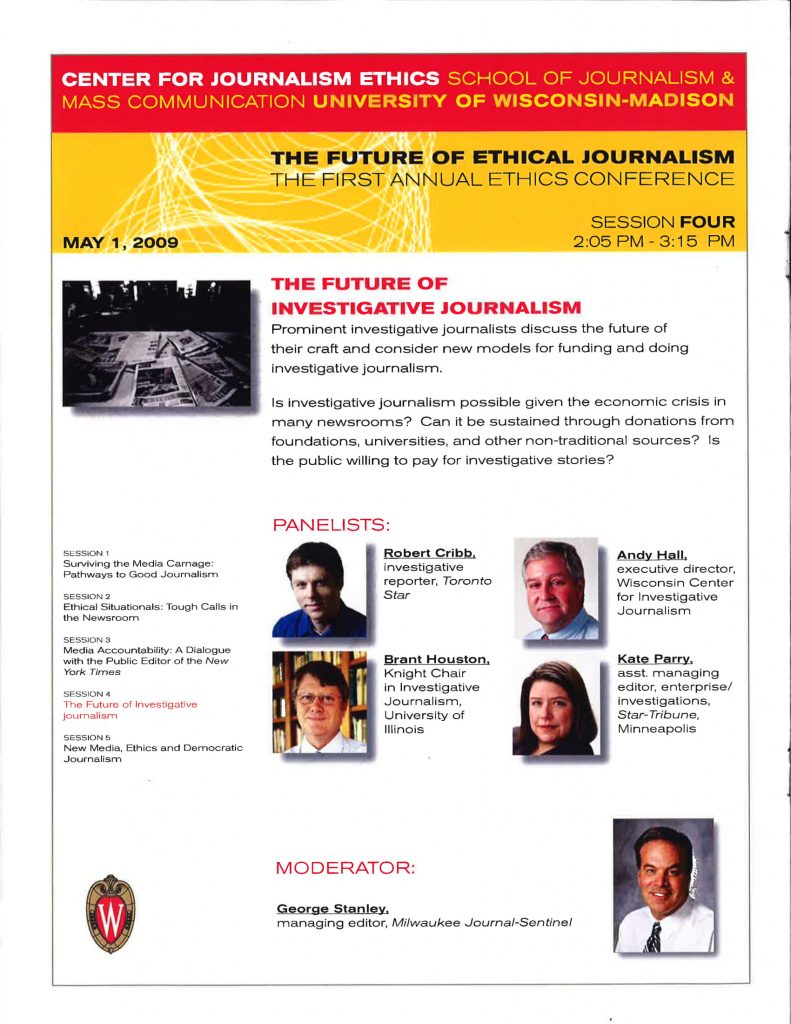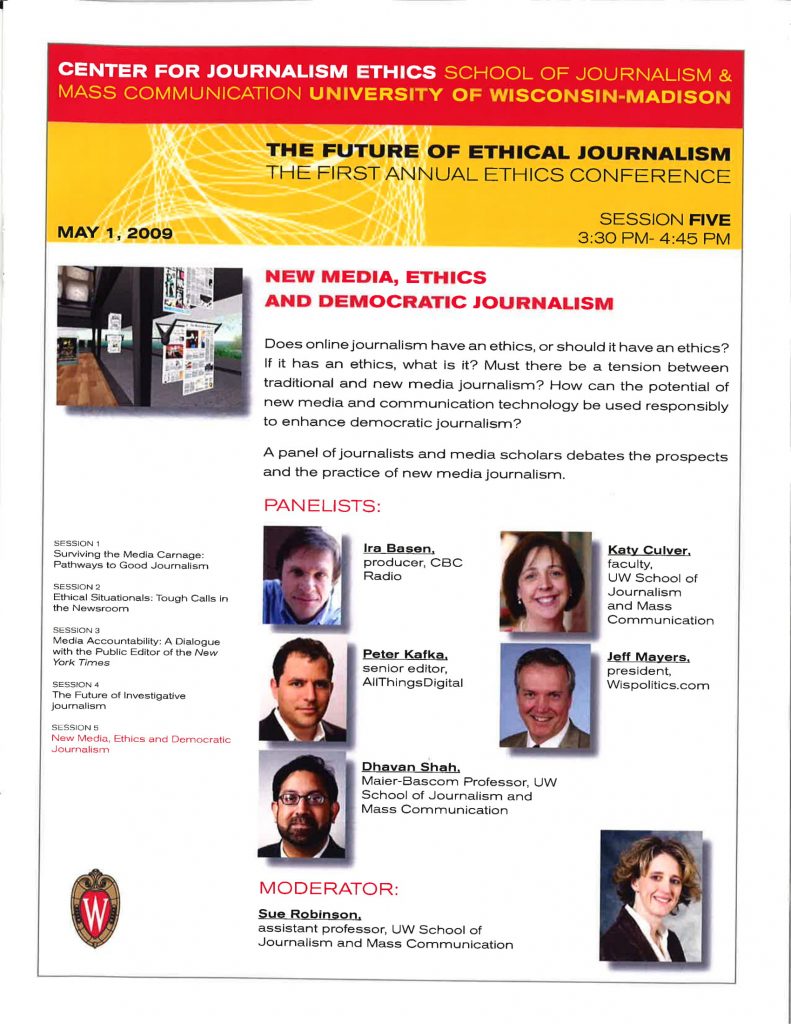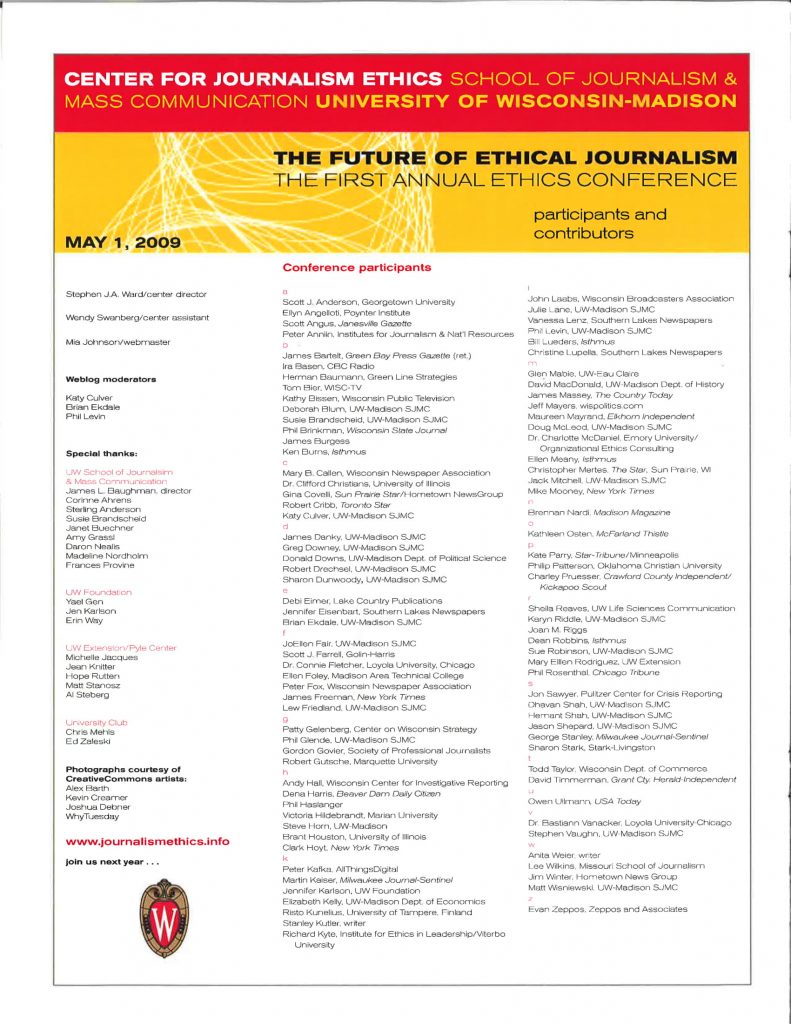2021: Journalism Ethics & Local News Now
CONFERENCE PROGRAM
9 AM CT: KEYNOTE ON LOCAL NEWS FROM BYRON PITTS (ABC NEWS)
9:45 AM CT: INNOVATIONS IN LOCAL NEWS
What new approaches can help overcome the challenges of doing local news now? How can publishers build sustainable business models to ensure their longevity and support continued community-focused reporting? In this session, leading publishers will discuss how they’re working to address these challenges.
- Moderator: Joseph Lichterman, communication and editorial director, Lenfest Institute for Journalism
- Lauren Gustus, executive editor, Salt Lake Tribune
- Sara Lomax-Reese, president/CEO, WURD Radio (Philadelphia)
- Ayan Mittra, editor, Texas Tribune
- Manuel Torres, regional editor, The Marshall Project
10:45 AM CT: INTRODUCING THE SHADID CURRICULUM
Drawn from the outstanding journalism of those who have won or been named a finalist of the Anthony Shadid Award for Journalism Ethics, this new curriculum enables student journalists to place themselves in the position of making difficult journalistic decisions. This panel is specifically targeted towards journalism educators at the college and high school level.
- Kathleen Bartzen Culver, James E. Burgess Chair in Journalism Ethics, associate professor in UW–Madison’s School of Journalism and Mass Communication and director of the Center for Journalism Ethics
- Luke Daniel Cross, UW-Madison School of Journalism and Mass Communication graduate student and Shadid Curriculum Fellow
- Martha Mendoza, 2016 Shadid Award winner and Associated Press reporter and Global Investigative Team member
CONFERENCE SPONSORS
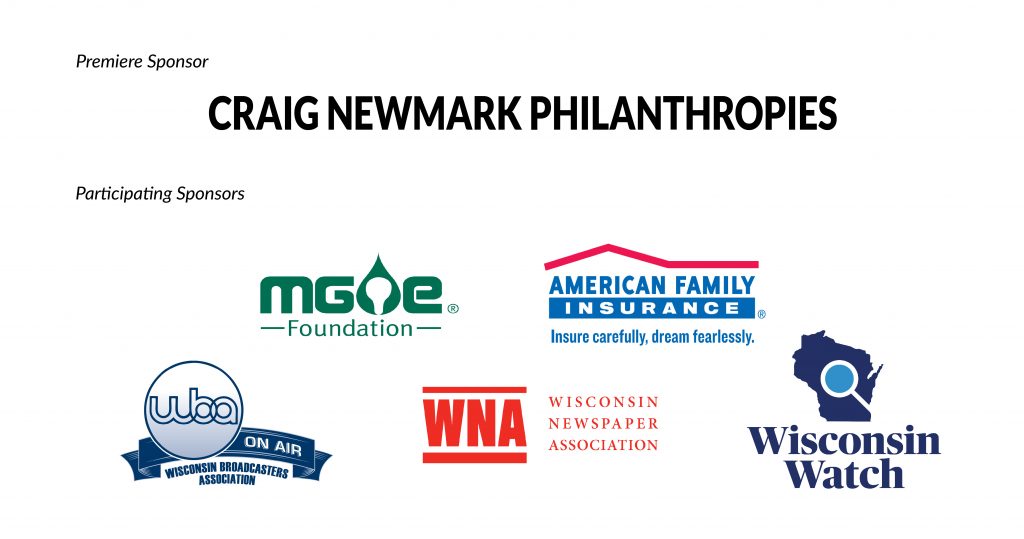
2019: What MeToo Means for Gender, Power & Ethical Journalism
Keynote – Kara Swisher
Center director Kathleen Bartzen Culver sits down with leading tech journalist Kara Swisher for a conversation entitled, “The View from Silicon Valley: Gender, Journalism & Tech.”
Session 1 – The Power of Portrayals in a Wired World
Tracy Lucht (Iowa State University) moderates a discussion about media representations and gender with Barbara Glickstein (Center for Health Policy and Media Engagement at George Washington University School of Nursing), Kem Knapp Sawyer (Pulitzer Center), Linda Steiner (University of Maryland) and Negassi Tesfamichael (The Cap Times).
Session 2 – Gender at Work: Overcoming Bias in the Newsroom
Lindsay Palmer (UW-Madison) moderates this discussion on discrimination in the newsroom and field with Michelle Ferrier (Florida Agricultural & Mechanical University, TrollBusters.com), Christina Kahrl (ESPN) and Jon Sawyer (Pulitzer Center on Crisis Reporting).
Session 3 – Real World Solutions moving forward with equity & integritY
Jill Geisler (Loyola University Chicago and Freedom Forum Institute) moderates a panel on increasing workplace integrity with Sharif Durhams (CNN), Lindsay Palmer (UW–Madison), Susan Ramsett (KWQC TV-6) and Traci Schweikert (POLITICO).
conference program
conference Sponsors
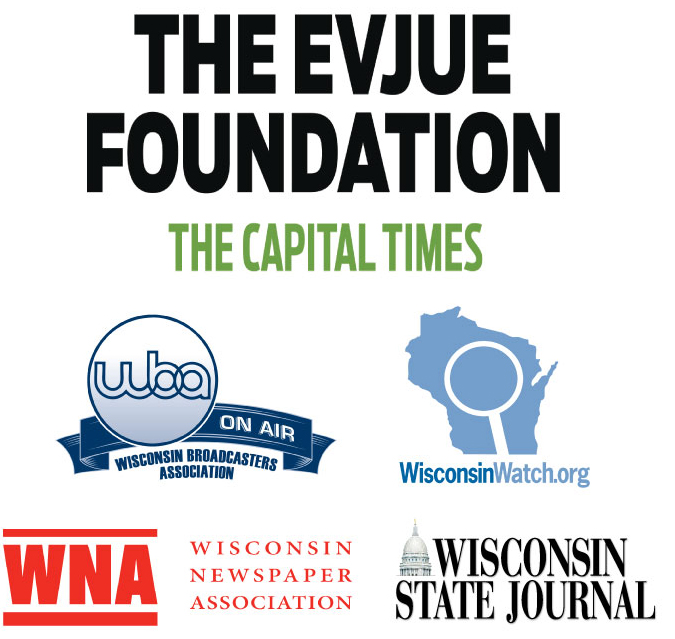
2018: Division, Denial & Journalism Ethics
Keynote – Justin Gillis
The keynote conversation with Justin Gillis asked how science writers can accurately convey both uncertainty about research and certainty about scientific consensus.
SESSION 1 – DEEP DIVIDES: bridging the gaps with ethical journalism
Nick Penzenstadler (USA Today), Juana Summers (CNN Politics) and Andrea Wenzel (Temple University) explore several current news stories with an eye to the ethical issues involved and consider options for how to address them in ways that could help bridge divides among news consumers.
SESSION 2 – Your truth and mine
Stephanie Edgerly (Northwestern University), Lucas Graves (UW–Madison) and Michelle Holmes (Alabama Media Group) consider the routines and incentives of journalists and the psychology of the audience that grows conspiracies, values the wisdom of the mob and limits public debate on policies.
SESSION 3 – is there a future for deliberation?
Jane Elizabeth (American Press Institute), Michelle Holmes (Alabama Media Group), Marty Kaiser (Democracy Fund) and Carline Watson (NPR) discuss what journalists can do to represent diverse views in public debate, restore a common set of facts as the basis for discourse, build trust and aid citizens in a self-governing democracy.
CONFERENCE PROGRAM:
Download 2018 program here.
CONFERENCE SPONSORS:
2017: truth, trust and the future of journalism
Keynote – Margaret Sullivan
Margaret Sullivan (Washington Post) talked with Center director Kathleen Culver for this keynote conversation.
SESSION 1 – The Responsibility & Challenge of Truth: Fact, Fiction and News
Moderated by Jason Shepard (California State University -Fullerton). Panelists: Lucas Graves (University of Wisconsin-Madison), Ken Vogel (Politico), Raney Aronson-Rath (PBS FRONTLINE) and Jason Stein (Milwaukee Journal Sentinel).
SESSION 2 – Blind Beliefs? Conspiracies, Hoaxes and Disinformation
Moderated by Michael Wager (University of Wisconsin-Madison). Panelists: Deborah Blum (MIT), Charlie Sykes (RightWisconsin), Joanne Miller (University of Minnesota).
SESSION 3 – Where Do We Go From Here? Solutions in an Allegedly Post-Truth Era
Moderated by Jill Geisler (Loyola University Chicago). Panelists: Michelle Ye Hee Lee (Washington Post), Stephen Ward (University of British Columbia), Dawn Garcia (Stanford) and Marty Kaiser (Democracy Fund).
CONFERENCE PROGRAM:
Download 2017 program here.
CONFERENCE SPONSORS:
2016: RACE, ETHNICITY AND JOURNALISM ETHICS
Panel 1 – Representing Race: Language, Imagery, Sources and Issues for Journalists
Sue Robinson (UW–Madison), Alan Gomez (USA Today) and Patty Loew (UW–Madison) and Henry Sanders (Madison365) discuss the complexities of “representing race.”
Panel 2 – Education Matters: Covering Racial Dynamics and Examining Journalism’s Role
Rachel Winkle-Wagner (UW–Madison) moderates a panel with Lisa Gartner (Tampa Bay Times), Nikole Hannah-Jones (New York Times Magazine) and Sue Robinson (UW-Madison).
Panel 3 – Questions of Justice: Crime, Inequality and News Media
Hemant Shah (UW–Madison) moderates a panel with Mathew Braunginn (Young, Gifted and Black), Kathleen Bartzen Culver (UW–Madison), Jaweed Kaleem (Los Angeles Times) and Michael Koval (Madison Police Department).
Panel 4 – Tomorrow’s Work: Moving Forward on Race and Journalism
Keith Woods (NPR) moderates a panel with Maria Len-Rios (University of Georgia), Brent Jones (USA Today) and Eric Von (Precious Lives Project).
CONFERENCE PROGRAM:
Download 2016 program here.
CONFERENCE SPONSORS:

2015: Ethics and Sports Journalism
Keynote – Robert Lipsyte
Longtime sports reporter and columnist for the New York Times Robert Lipsyte delivers the keynote speech.
Session 1 – The Ethics of Investigating Sports
Walt Bogdanich (New York Times), Mark Fainaru-Wada (ESPN), Ira Basen (CBC Radio) and Armen Keteyian (60 Minutes) talk about investigative reporting and sports journalism.
Session 2 – Race, Gender and Sexuality in Sports Media
Christina Kahrl (ESPN), Jessie Garcia (WTM Milwaukee) and Scott Bukstein (University of Central Florida) discuss race, gender and sexuality in sports media.
Session 3 – Criticism and Vitriol in Sports Journalism
Jason Wilde (ESPN), Chris Kluwe and Melissa Isaacson (ESPN) discuss criticism and vitriol in sports journalism.
Plenary Session – Ethics and the Power of Money
Mary Bryne (USA Today Sports), Greg Hughes (NBC Sports Group) and Jim Miller talk about ethics and the power of money in sports media.
2015 Shadid Award for Journalism Ethics: The Chicago Tribune
The 2015 Shadid Award for Journalism Ethics is award to Chicago Tribune reporters David Jackson, Gary Marx and Duaa Eldeib for the reporting on serious abuses in Illinois’ juvenile justice system.
CONFERENCE PROGRAM:
Download 2015 program here.
CONFERENCE SPONSORS:
Peppy O’Neill

2014: Surveillance, Security and Journalism Ethics
Keynote – Eric Lichtblau
Keynote speaker Eric Lichtblau talks about journalism, national security and the “right to know.”
Session 1 – Protecting Sources and Data in a Surveillance Environment
Brant Houston (University of Illinois), Jonathan Stray (Associated Press) and Marisa Taylor (McClatchey DC) discuss protecting data and resources in a surveillance environment.
Session 2 – Ethical Bounds of Tools for Watching, Scraping and Sensing
John Keefe (WNYC), Fergus Pitt (Tow Center at Columbia University) and Sisi Wei (ProPublica) discuss the ethics of surveillance by media.
Radical Rethink – Do New Security Challenges Require New Norms?
Jay Rosen (New York University), Gabriel Schoenfeld (Hudson Institute) and Stephen Ward (University of Oregon) discuss whether the surveillance environment requires new norms.
CONFERENCE PROGRAM:
Download 2014 program here.
CONFERENCE SPONSORS:
Peppy O’Neill
Carol Toussaint

2012: Ethics & Elections - Media, Money and Power
Keynote – Tom Rosentiel
Tom Rosentiel, Director of The Pew Research Center’s Project for Excellence in Journalism, talks about the responsibilities of the press in elections.
Session 1 – Fact-Checking Elections
Bill Adair (PolitiFact), Lucas Graves (Columbia University) and Lisa Graves (Executive Director, Center for Media & Democracy) discuss the rise of factchecking and what its emergence says about the larger field of news media.
Session 2 – Political Advertising: The Perils and Promises of the Modern Campaign
Erika Franklin Fowler (Director, Wesleyan Media Project), Lee Wilkins (Missouri School of Journalism) and Charles Franklin (Director, Marquette Law Poll) discuss political advertising in the wake of campaign finance reform, focusing specifically on the scope and impact of political ads and the role of journalists.
Breakout – Tweets and Votes: Elections in a social media age
Kathleen Bartzen Culver (UW-Madison), Ryan Gallentine (Midwest Regional Director, Obama for Action), Thomas Keeley (Keeley Company) and Marc Smith (Connected Action Consulting) focus on the impact of social media on the 2012 election.
Download 2012 program here.
CONFERENCE SPONSORS:
Peppy O’Neill

2011: Partisan Media in a Democracy
Session 1 – The Rise and Fall of Partisan Journalism
Media historian James L. Baughman discusses the 19th century history of partisan journalism and discusses whether or not it has returned.
Session 2 – National Partisan Radio? The Impact of Partisan Journalism on Public Broadcasting
Panelists Byron Knight, Raul Ramirez, and Alicia C. Shepard discuss practices at NPR and public TV in regard to neutrality, fairness and balance.
Session 3 – Who Funds Your News? Transparency & Nonprofit Journalism
Panelists Arthur Brisbane, Andy Hall and Brant Houston discuss the importance of transparency in nonprofit news funding models.
Session 4 – Partisan Media Across Borders
Panelists Ira Basen, Shakuntala Rao, Hernando Rojas and JoEllen Fair talk about how modern technology is erasing communication boundaries and the “public sphere” is increasingly a global arena.
Session 5 – Polling, Partisanship & Polarization
Panelists Colin Benedict, Dhavan Shah, Charles Franklin and Ken Goldstein explore integrity and bias in polling on social and political issues.
CONFERENCE PROGRAM:
Download 2011 program here.
CONFERENCE SPONSORS:

2010: New Journalism, New Ethics?
Session 1 – New Journalism Ecosystem
Charles Lewis, Executive Editor of the Investigative Reporting Workshop at American University, discusses current standards of transparency and disclosure, and the percentage of journalists with prior professional experience.
Session 2 – Ethics for the New Investigative Newsroom
Panelists Andy Hall, Brant Houston, Stephen JA Ward, Carol Toussaint and Marty Kaiser present their findings on emerging ethical issues in nonprofit investigative journalism.
Session 3 – Bridging the Gaps: Old-Media Values in a New-Media World
Jon Sawyer, executive director of the Pulitzer Center on Crisis Reporting, delivers the conference’s keynote address.
Session 4 – Whatever Happened to Verification in Journalism?
Panelists Scott Cohn, Kristin Czubowski, Phil Rosenthal, Sue Robinson and John Smalley discuss whether journalism verification and online speed are compatible values.
Session 5 – When Journalists Join the Media Revolution
Kathleen Bartzen Culver speaks with Alfred Hermida about the ethical issues arising when mainstream journalists use new media, including social media, blogs and Twitter.
CONFERENCE PROGRAM:
Download 2010 program here.
CONFERENCE SPONSORS:

2009: The Future of Ethical Journalism
Introduction
Center Director Stephen J.A. Ward gives the welcoming introduction to the Center for Journalism Ethics’ first conference.
Session 1 – Surviving the Media Carnage: Pathways to Good Journalism
Panelists Kathy Bissen, Ellen Foley, Phil Rosenthal and Jon Sawyer discuss the decline of traditional economic models for journalism, future pathways and new models.
Session 2 – Ethical Situationals, Tough Calls in the Newsroom
Panelists Scott Anderson, Martin Kaiser, Glen Mabie and Owen Ullmann talk about their toughest ethical challenges and how they’ve responded to specific cases and situations.
Session 3 – Media Accountability, Dialogue with Public Editor of the New York Times
Clark Hoyt, public editor of the New York Times, discusses his role and his assessment of journalism ethics today.
Session 4 – Future of Investigative Journalism
Panelists Robert Cribb, Andy Hall, Brant Houston and Kate Parry discuss the future of their craft and consider new models for funding investigative journalism.
Session 5 – New Media, Ethics and Democratic Journalism
Conference program:
Download 2009 program here.

